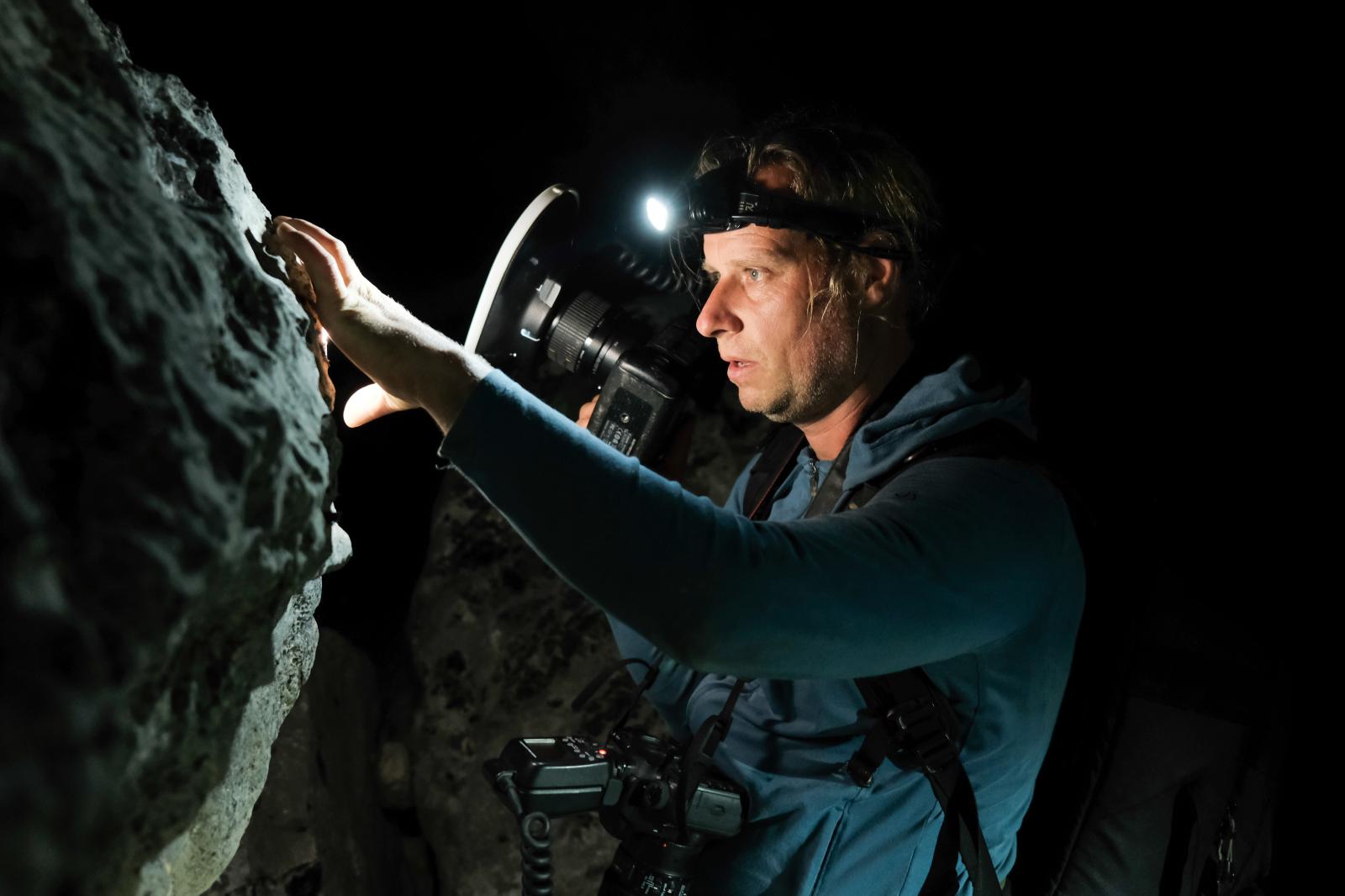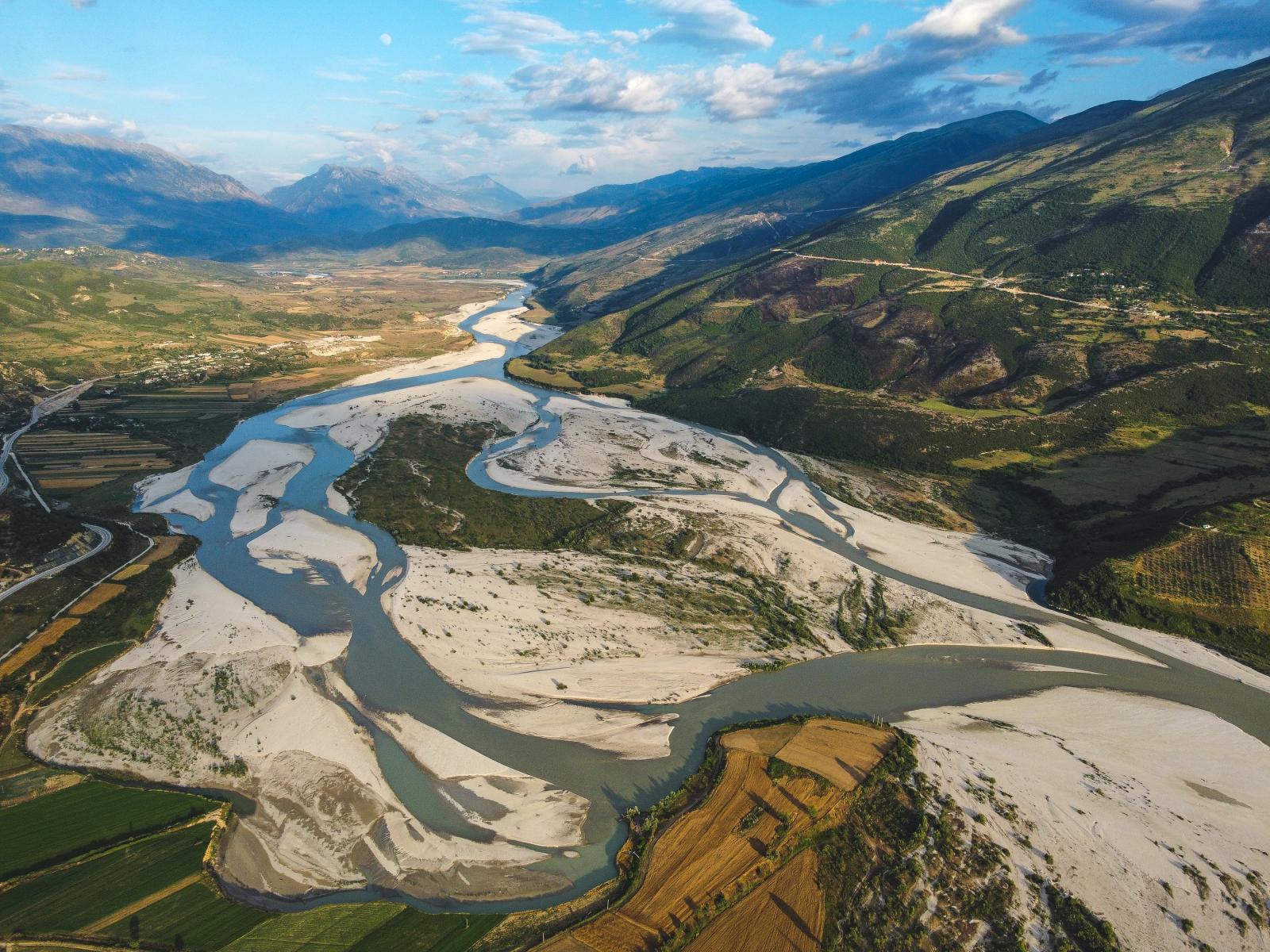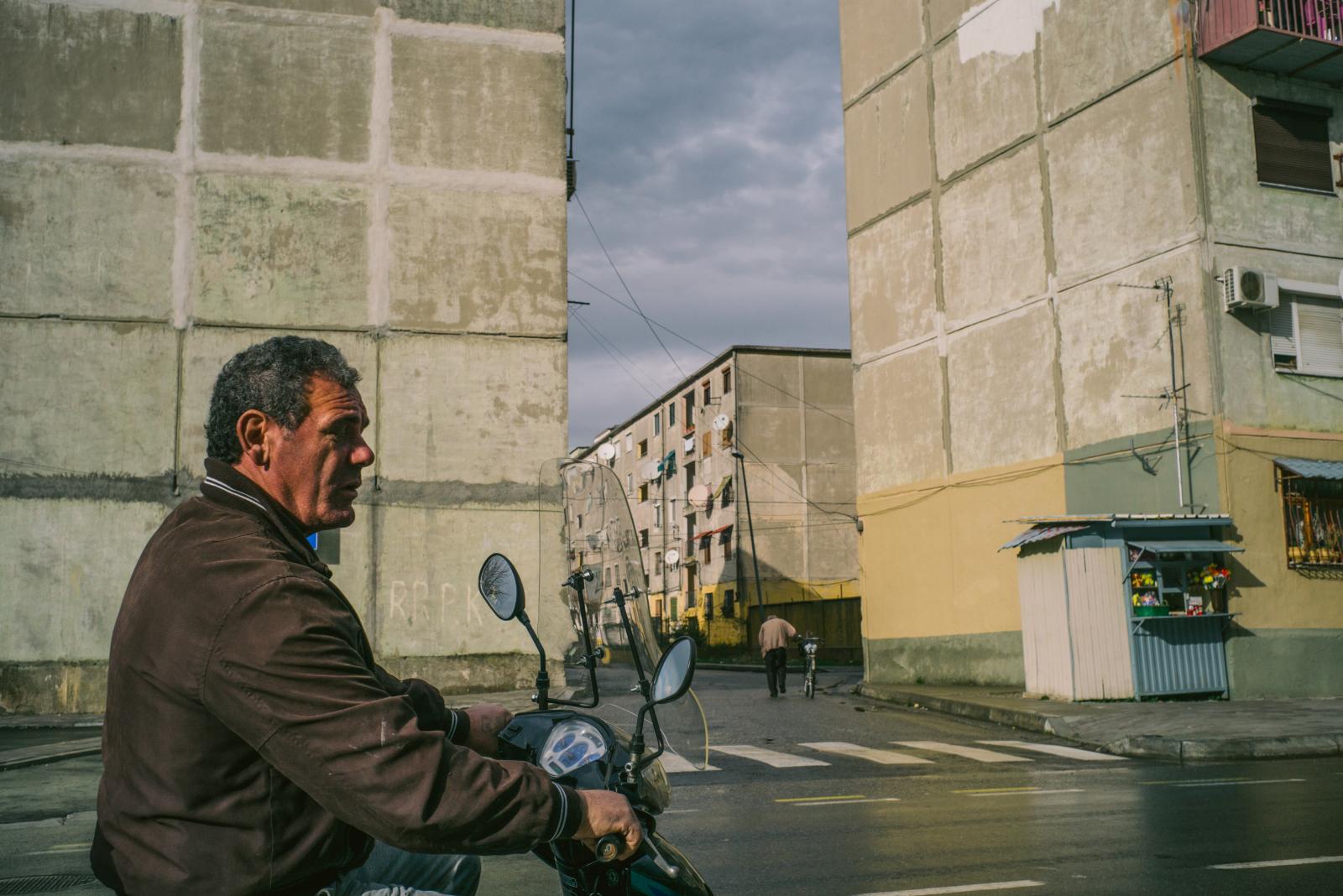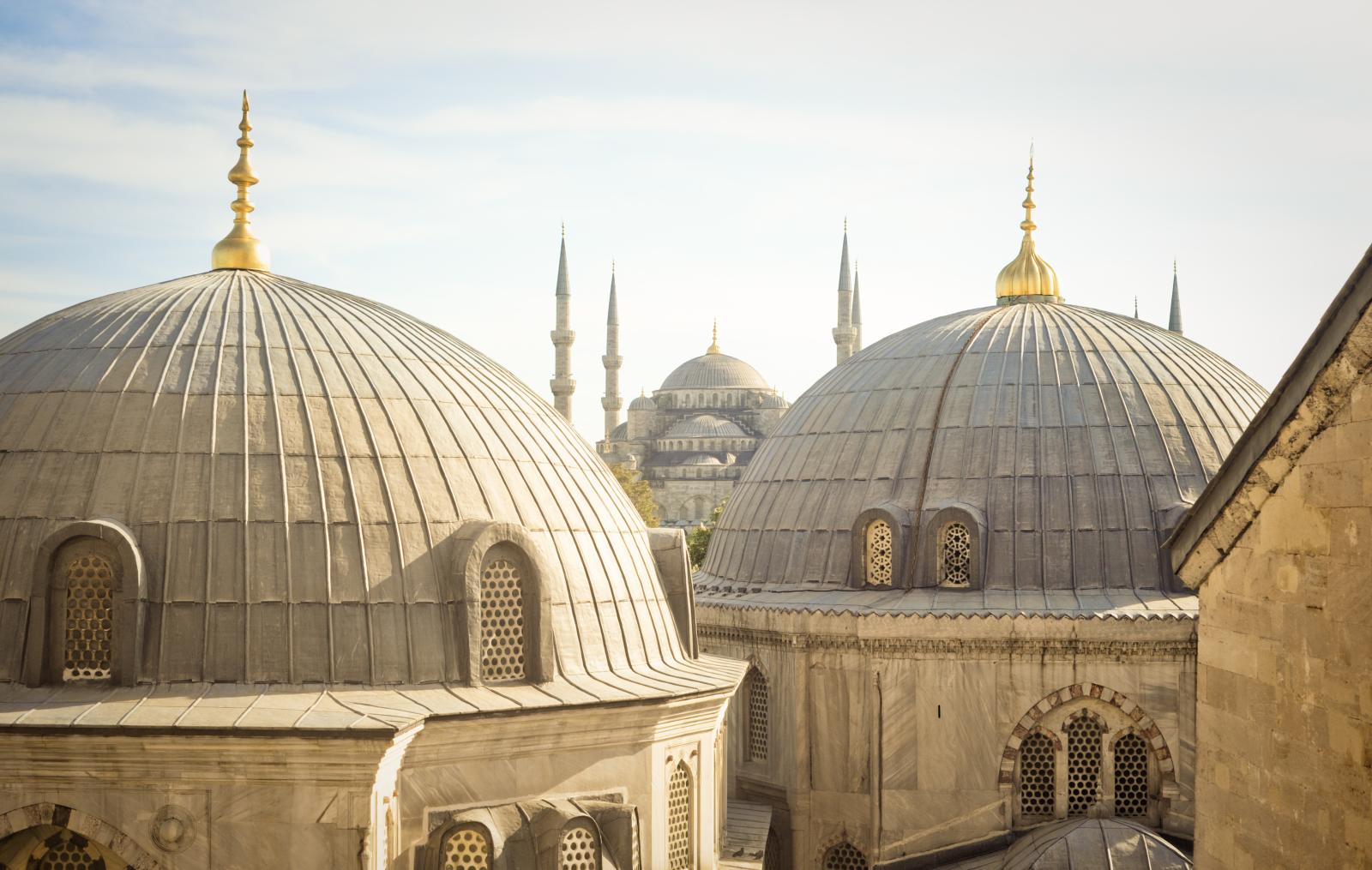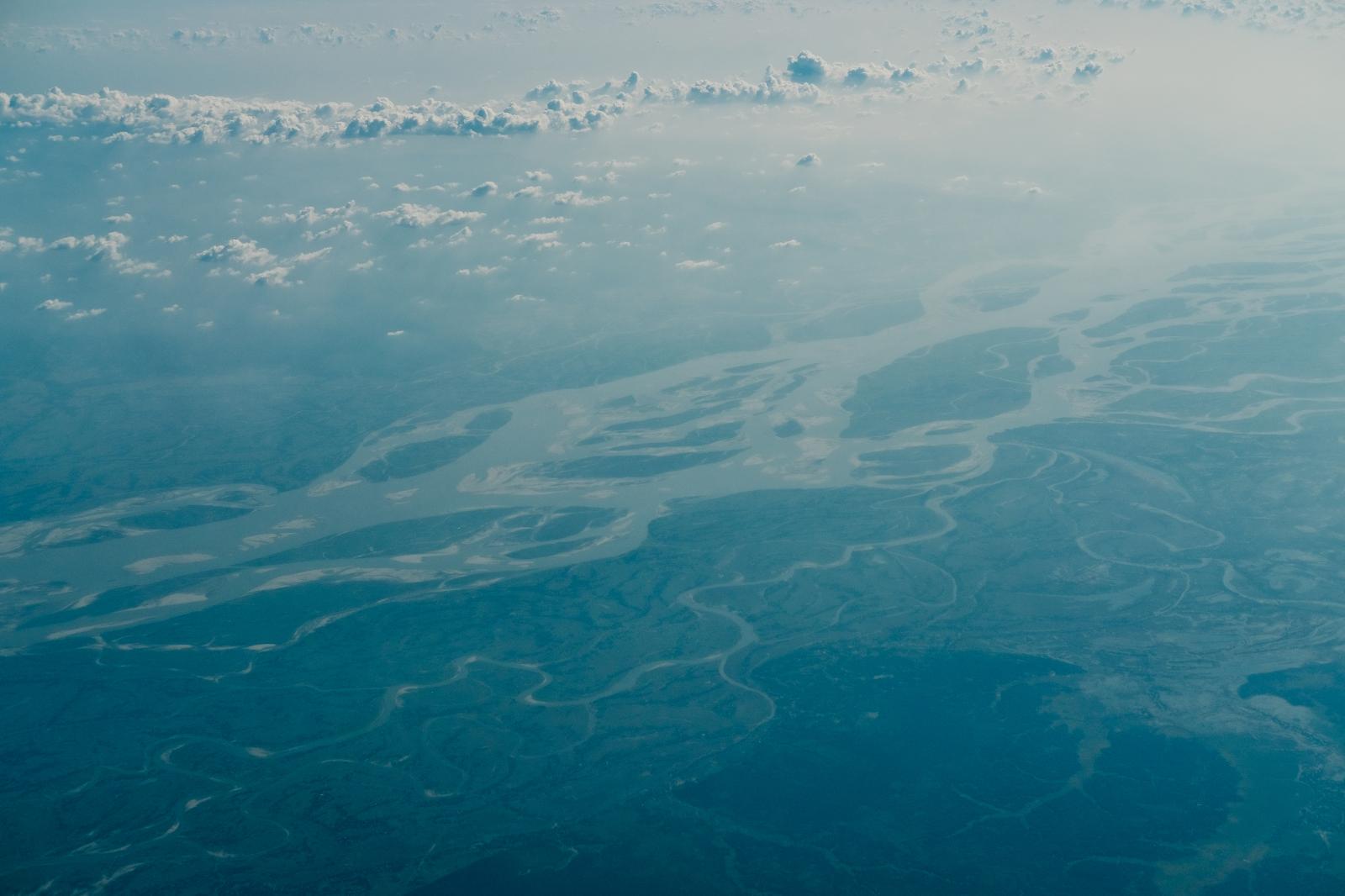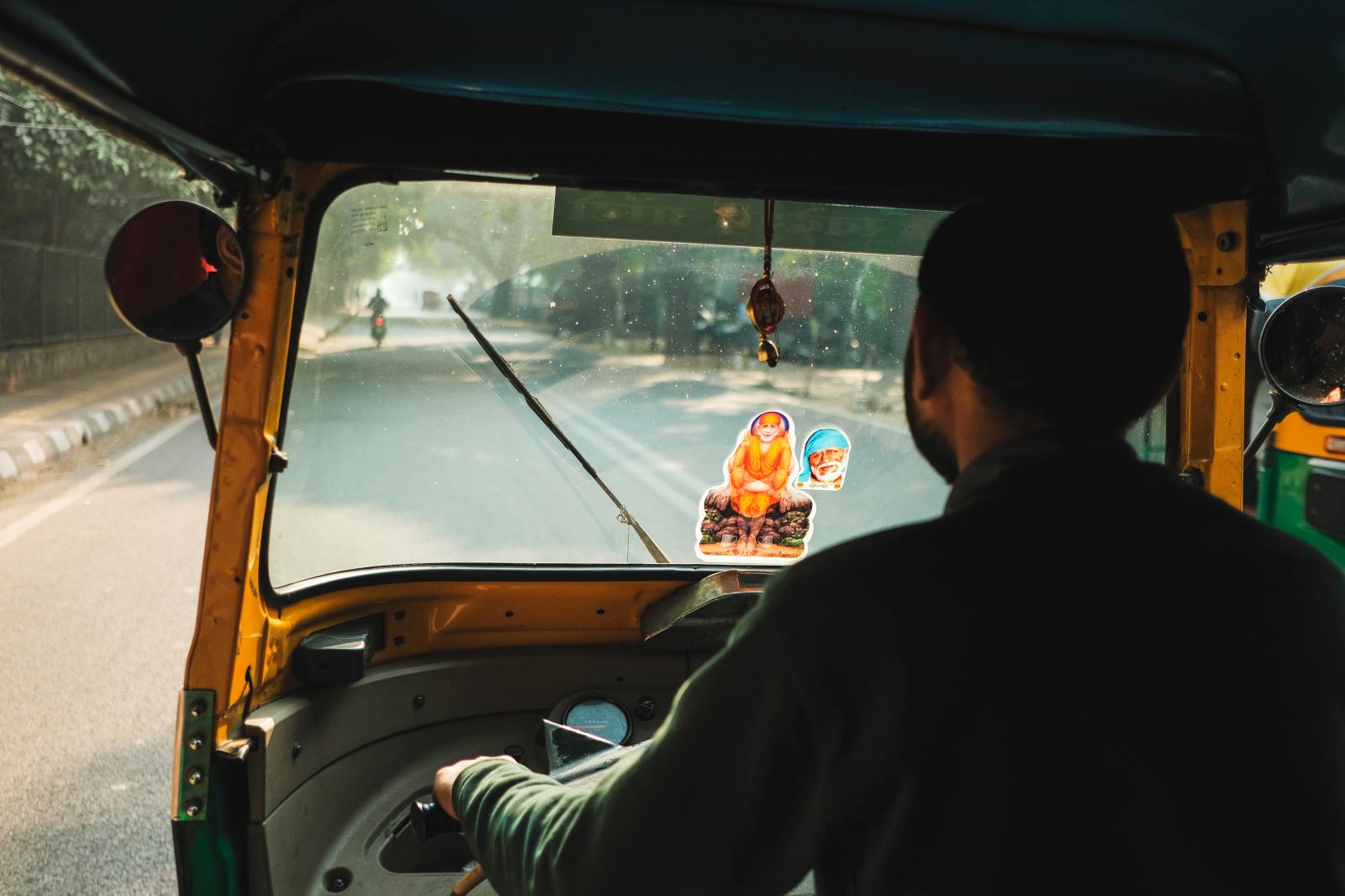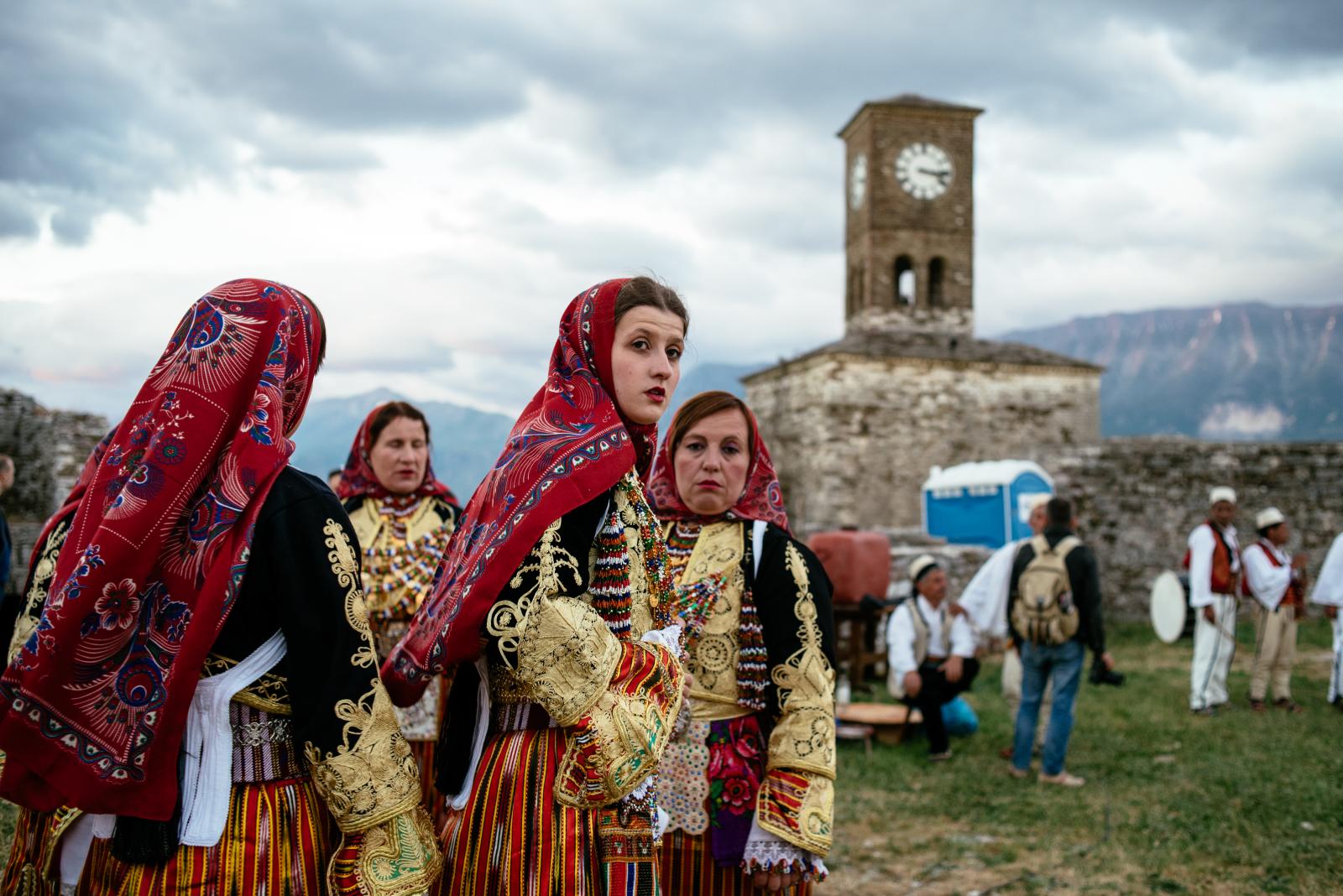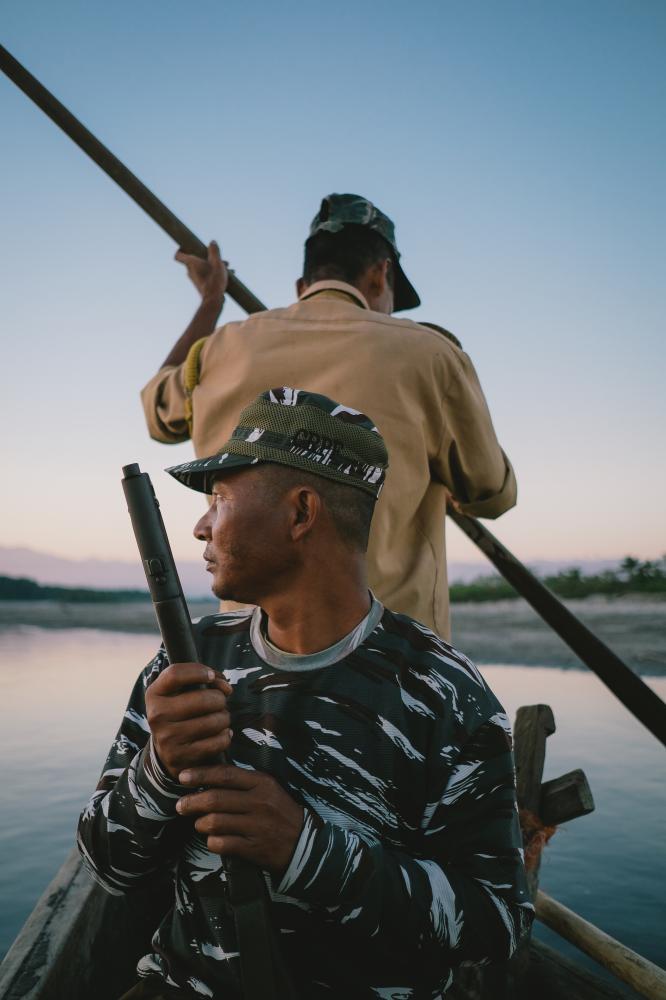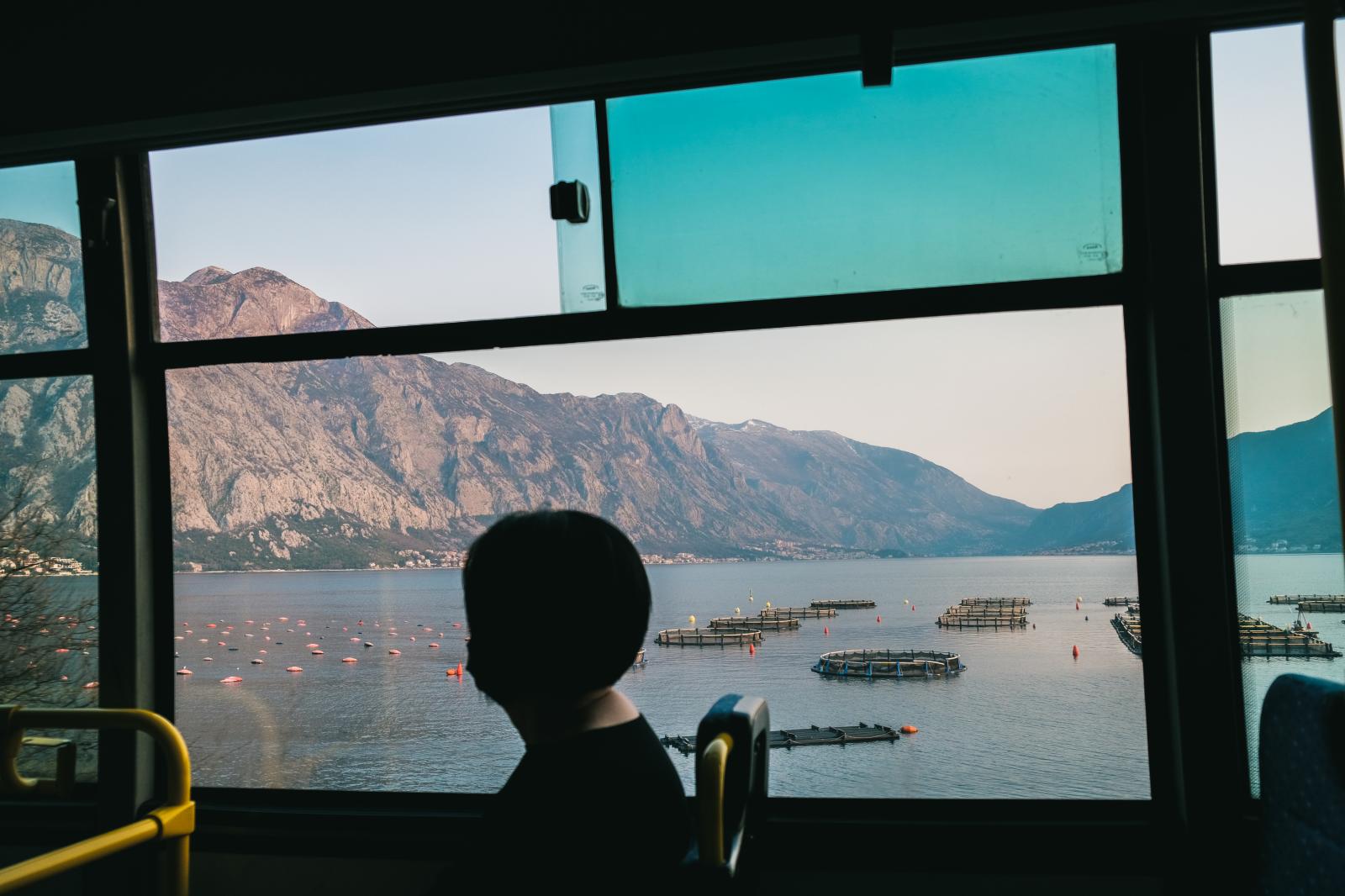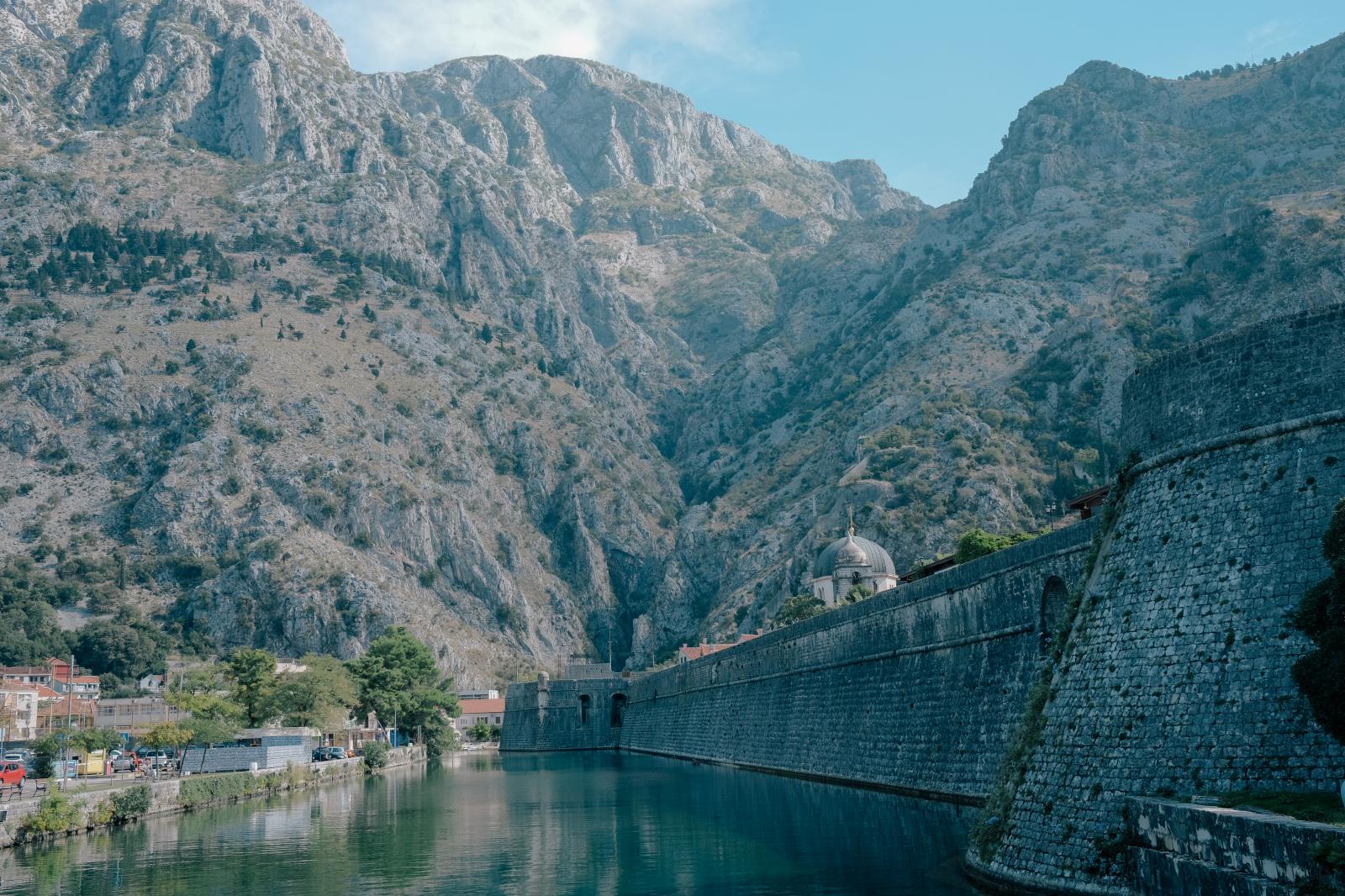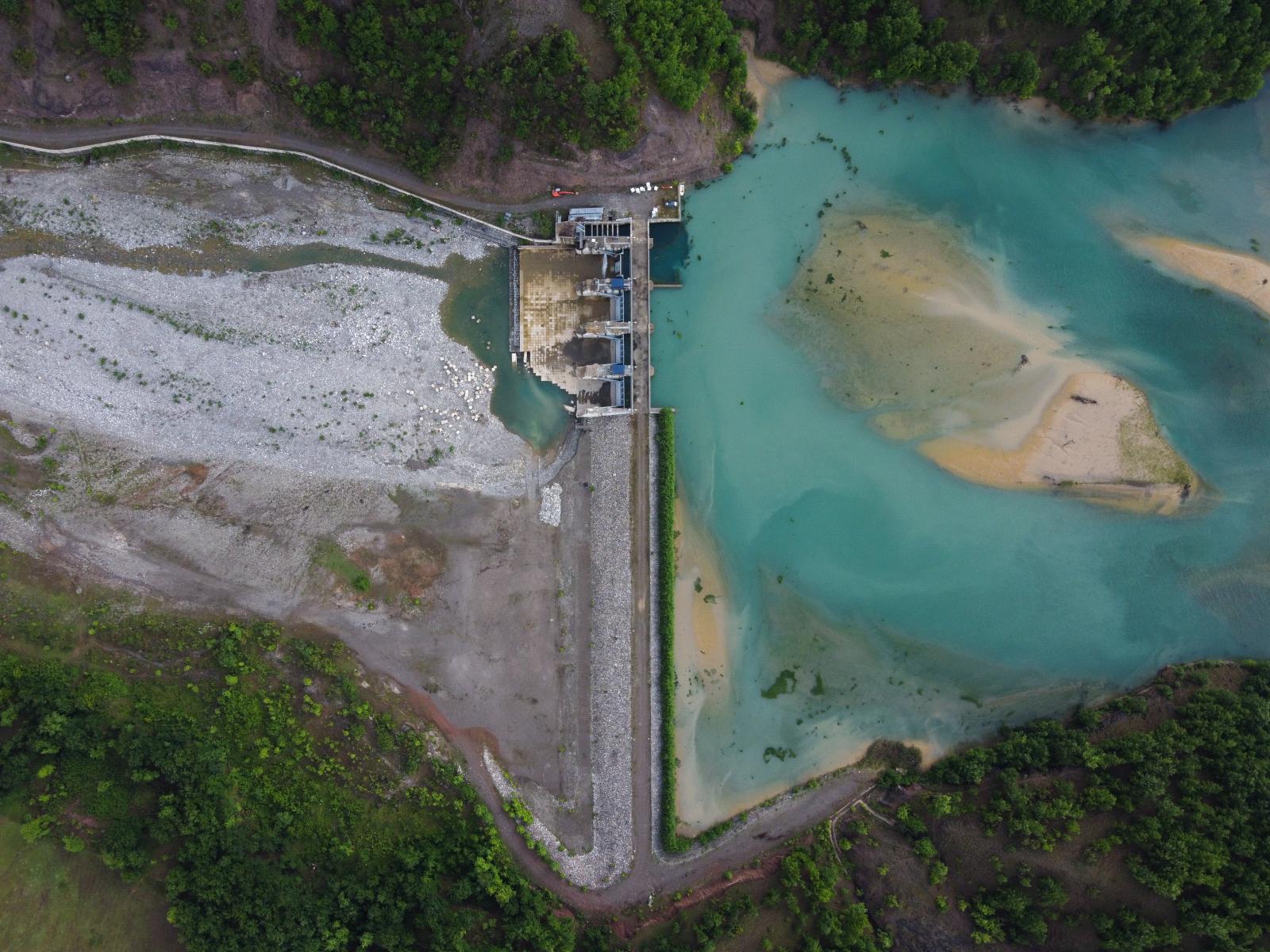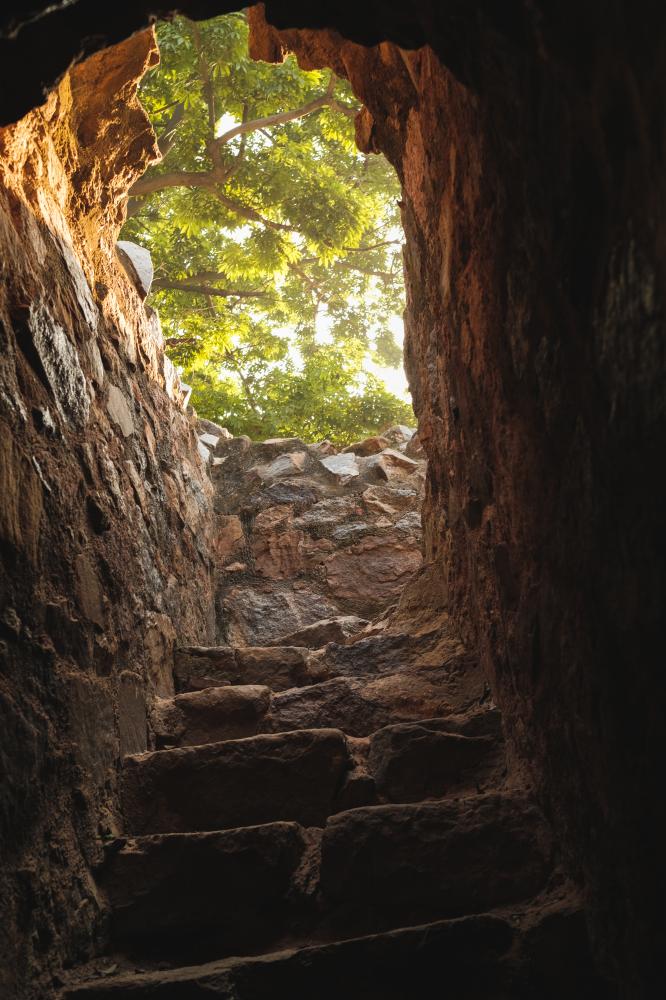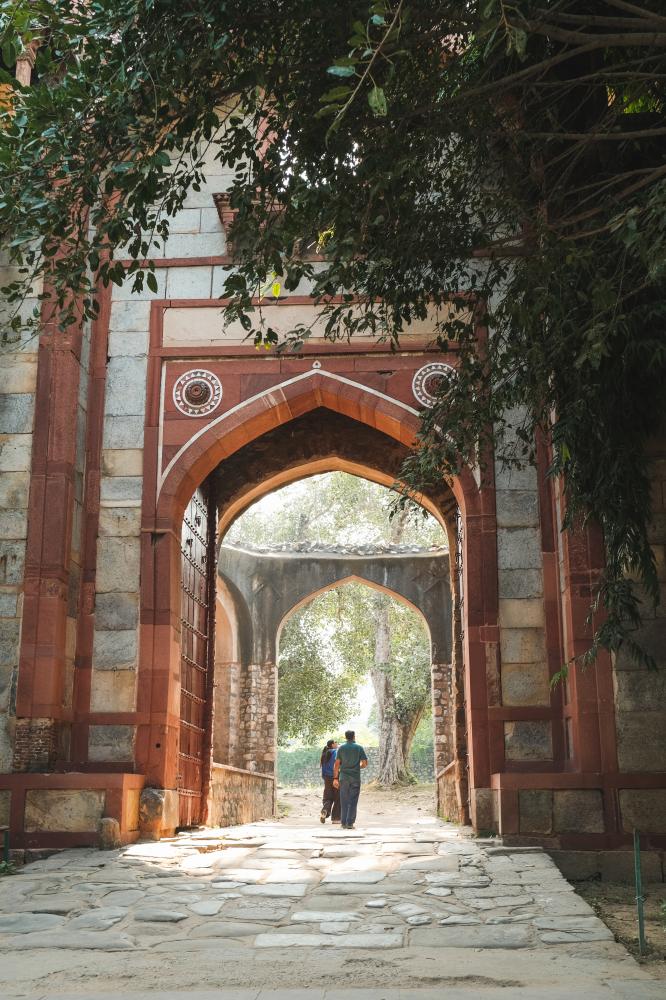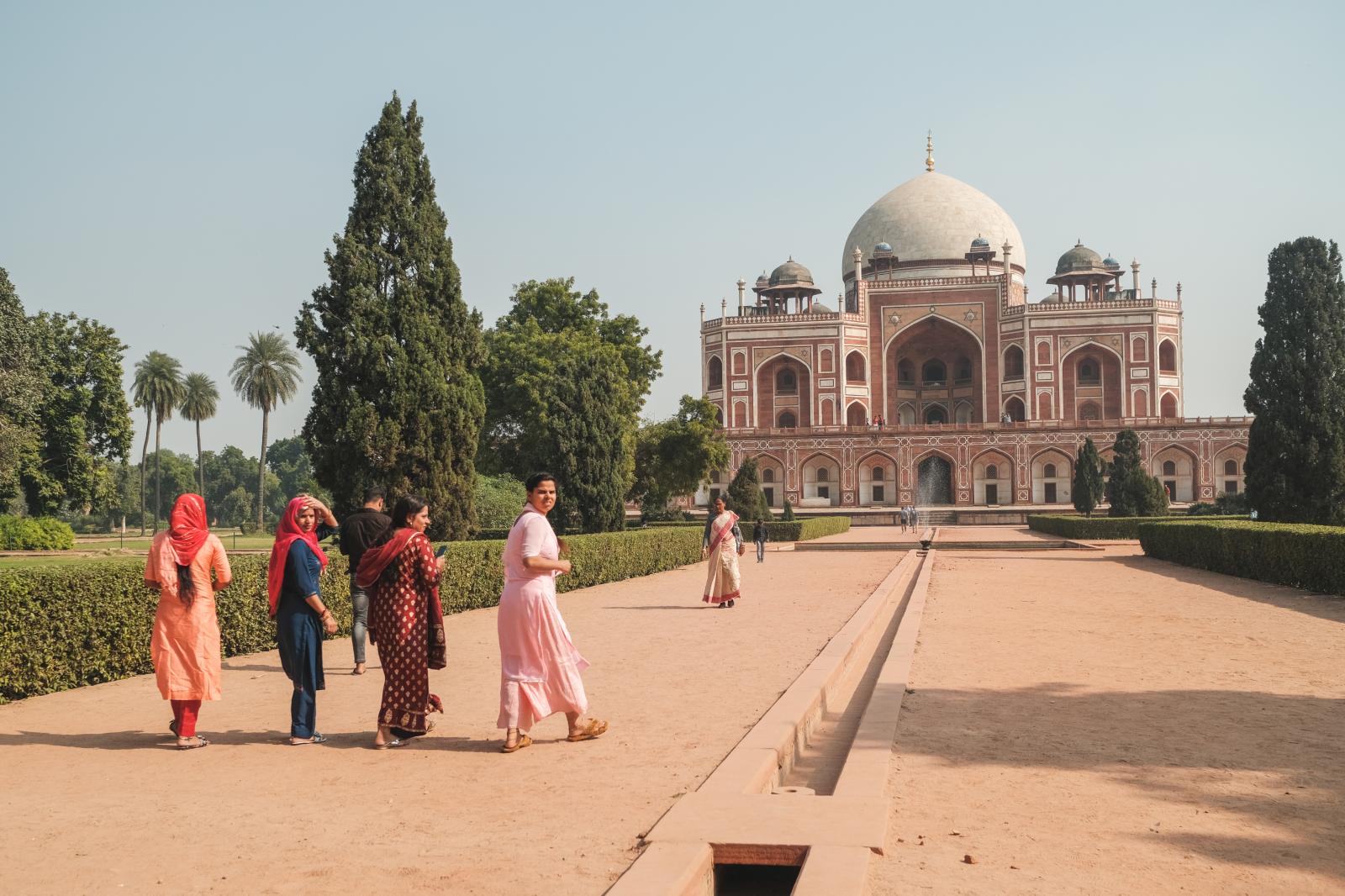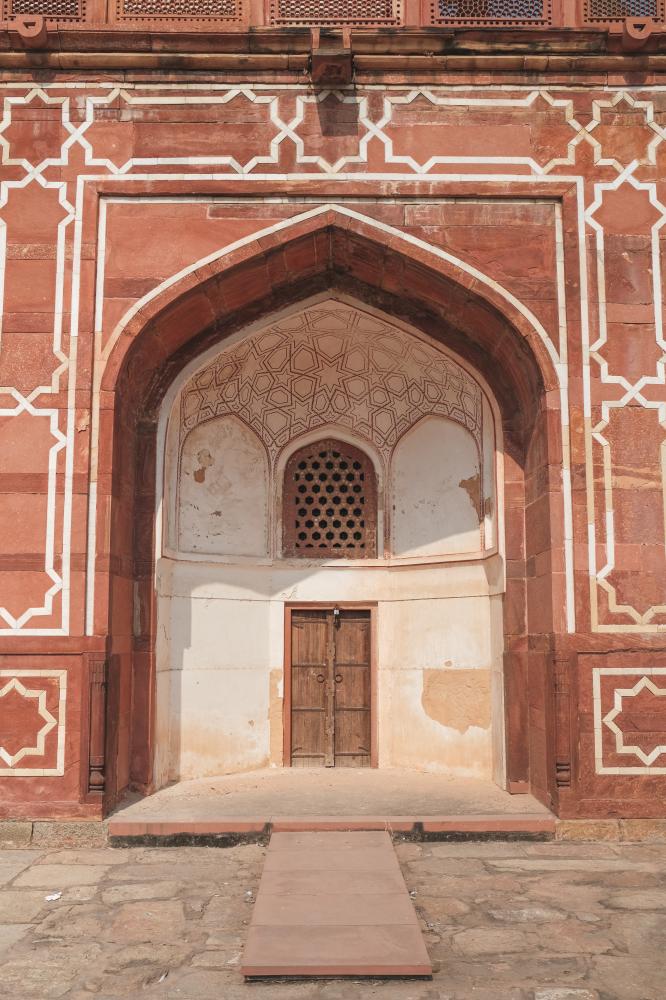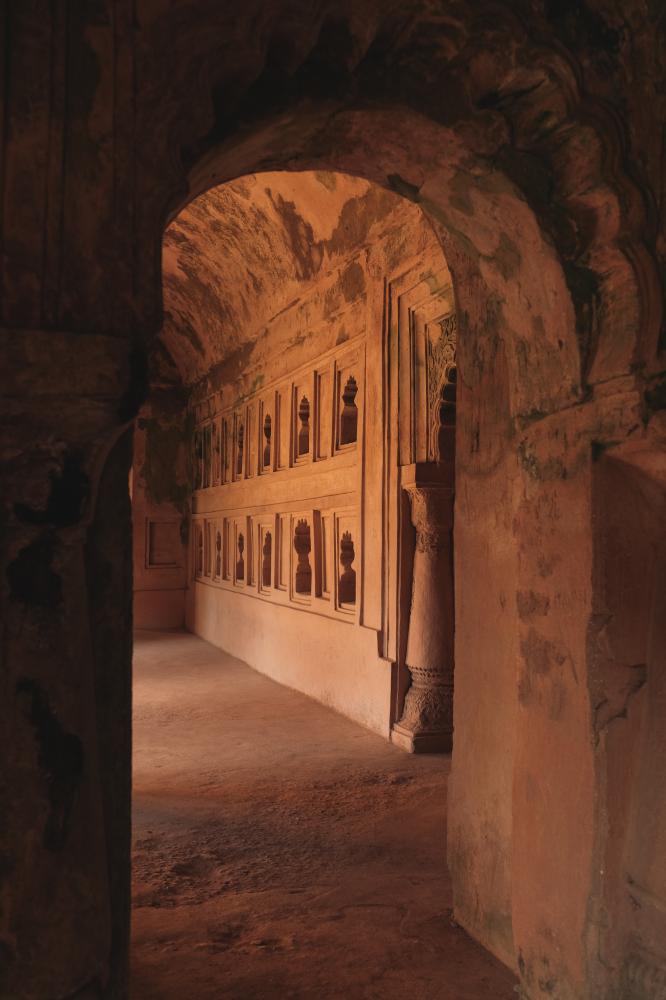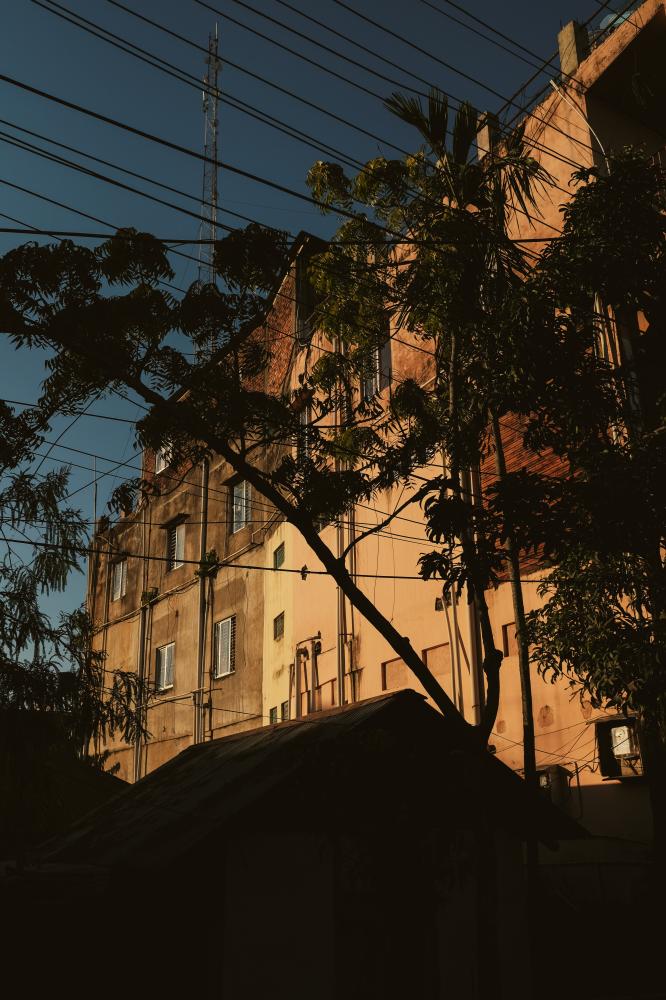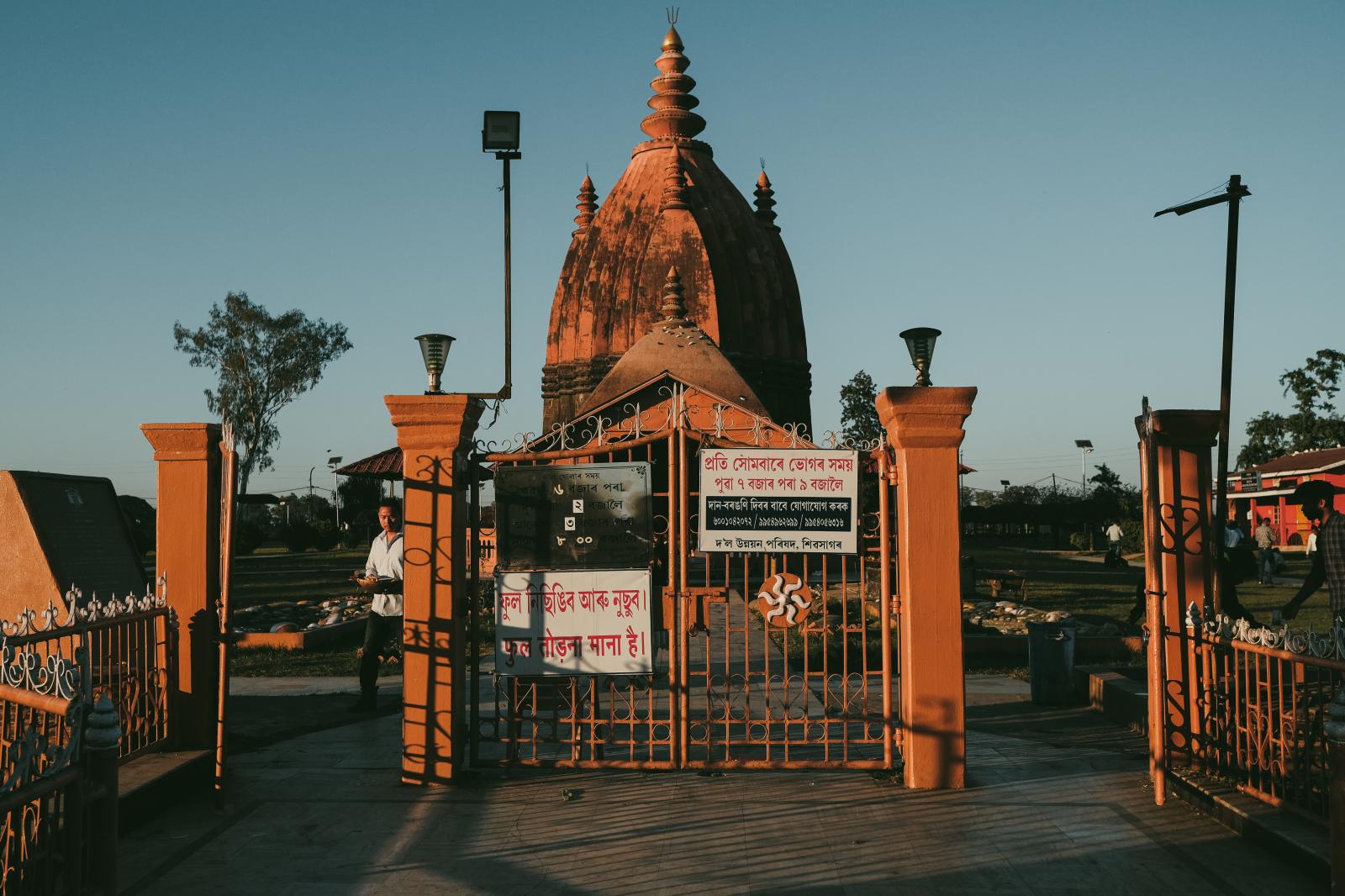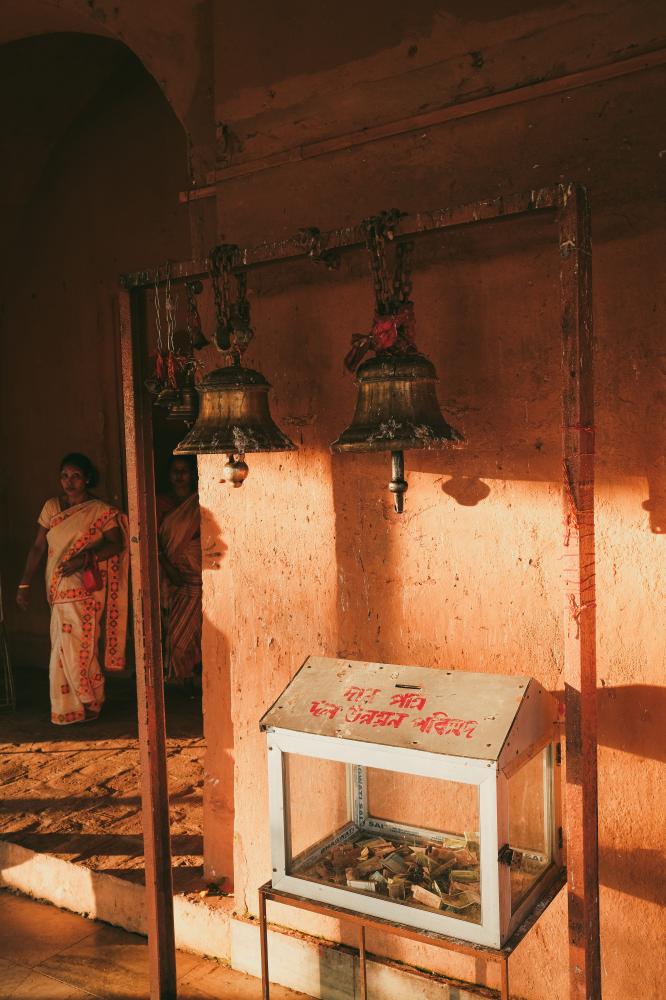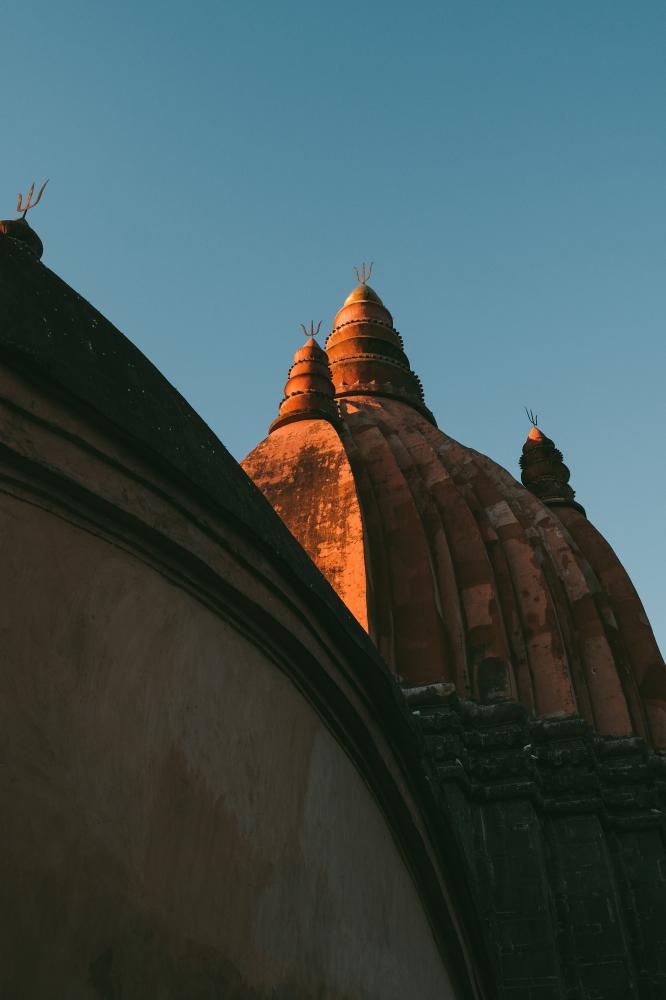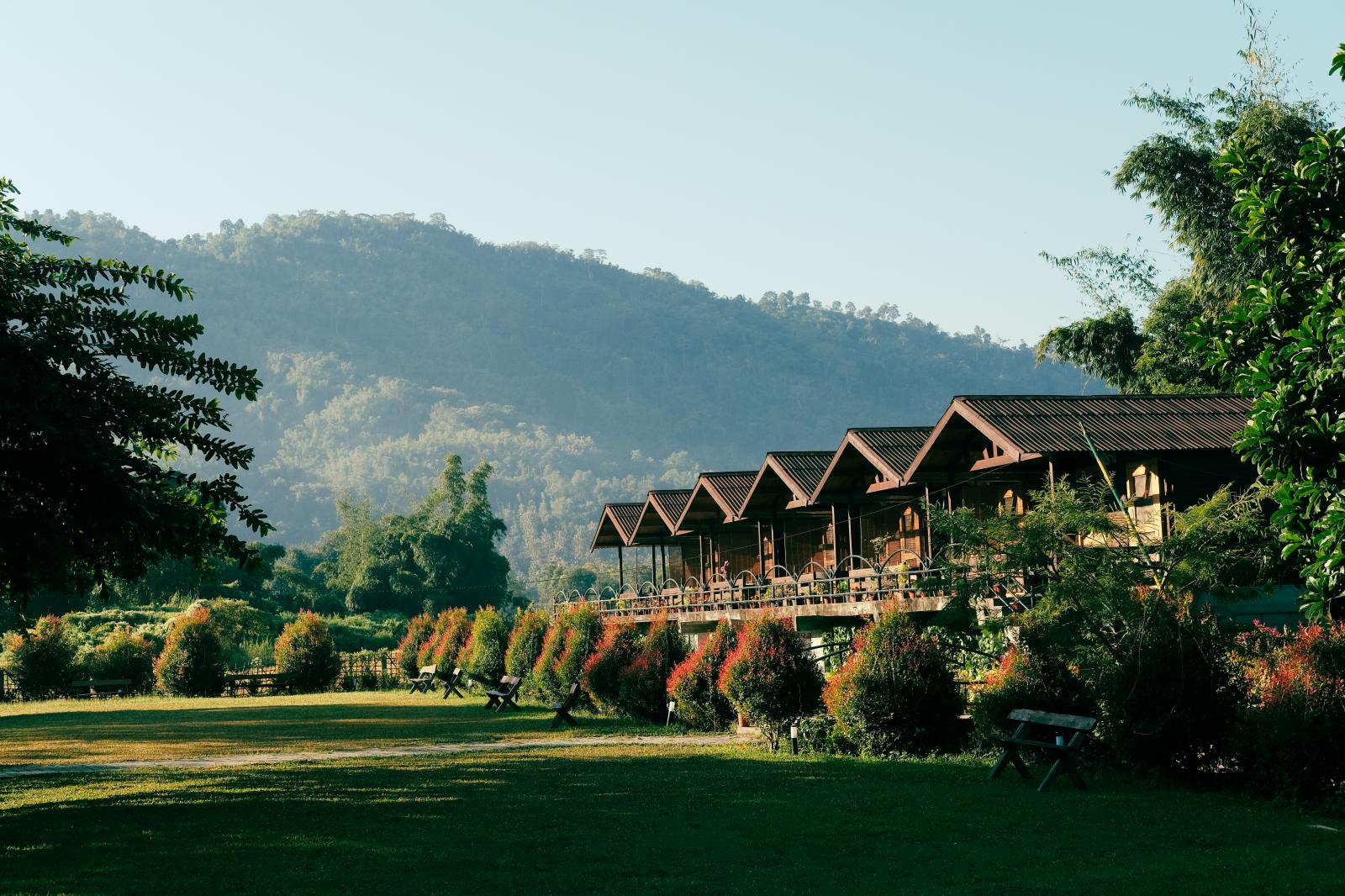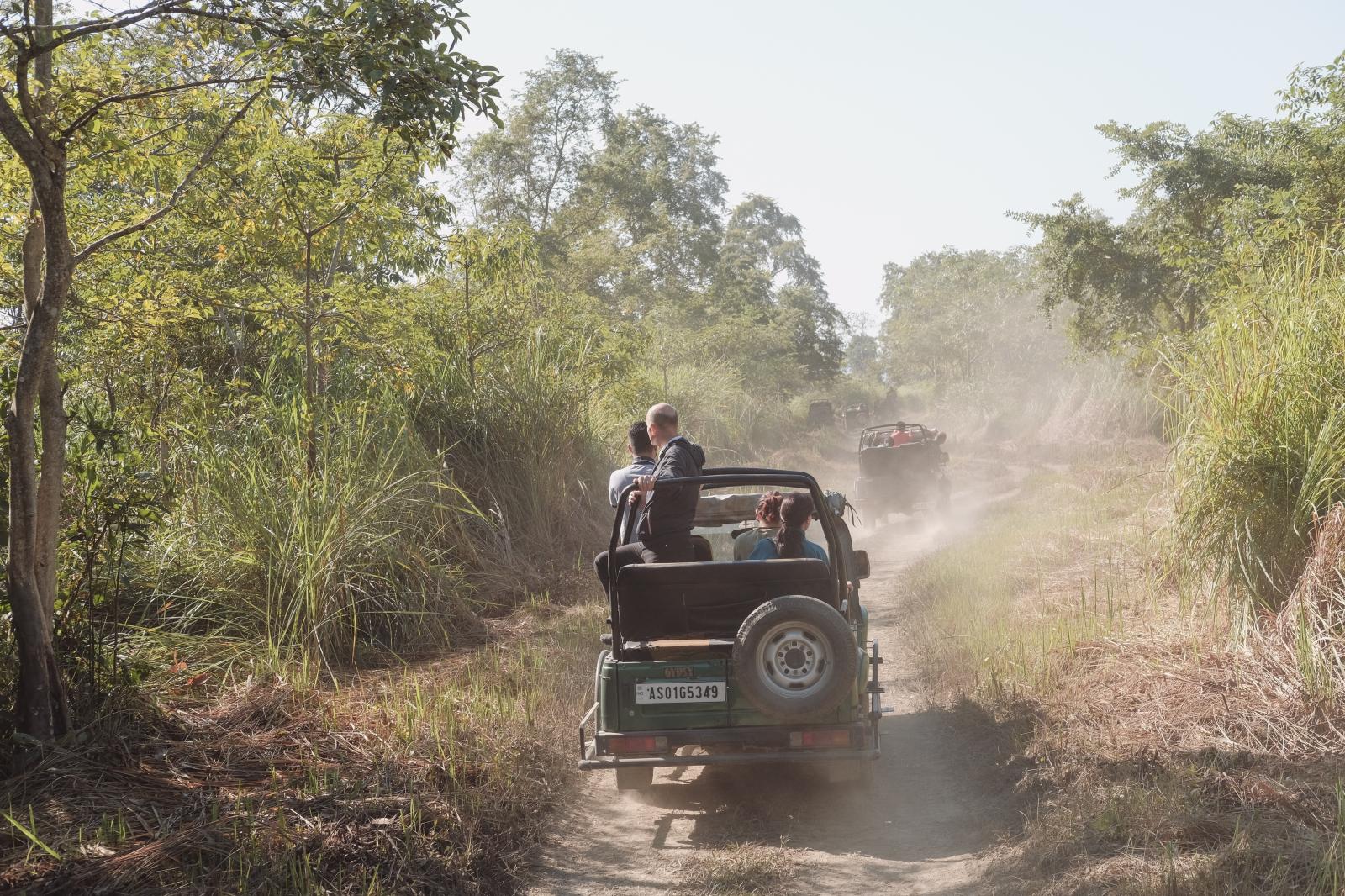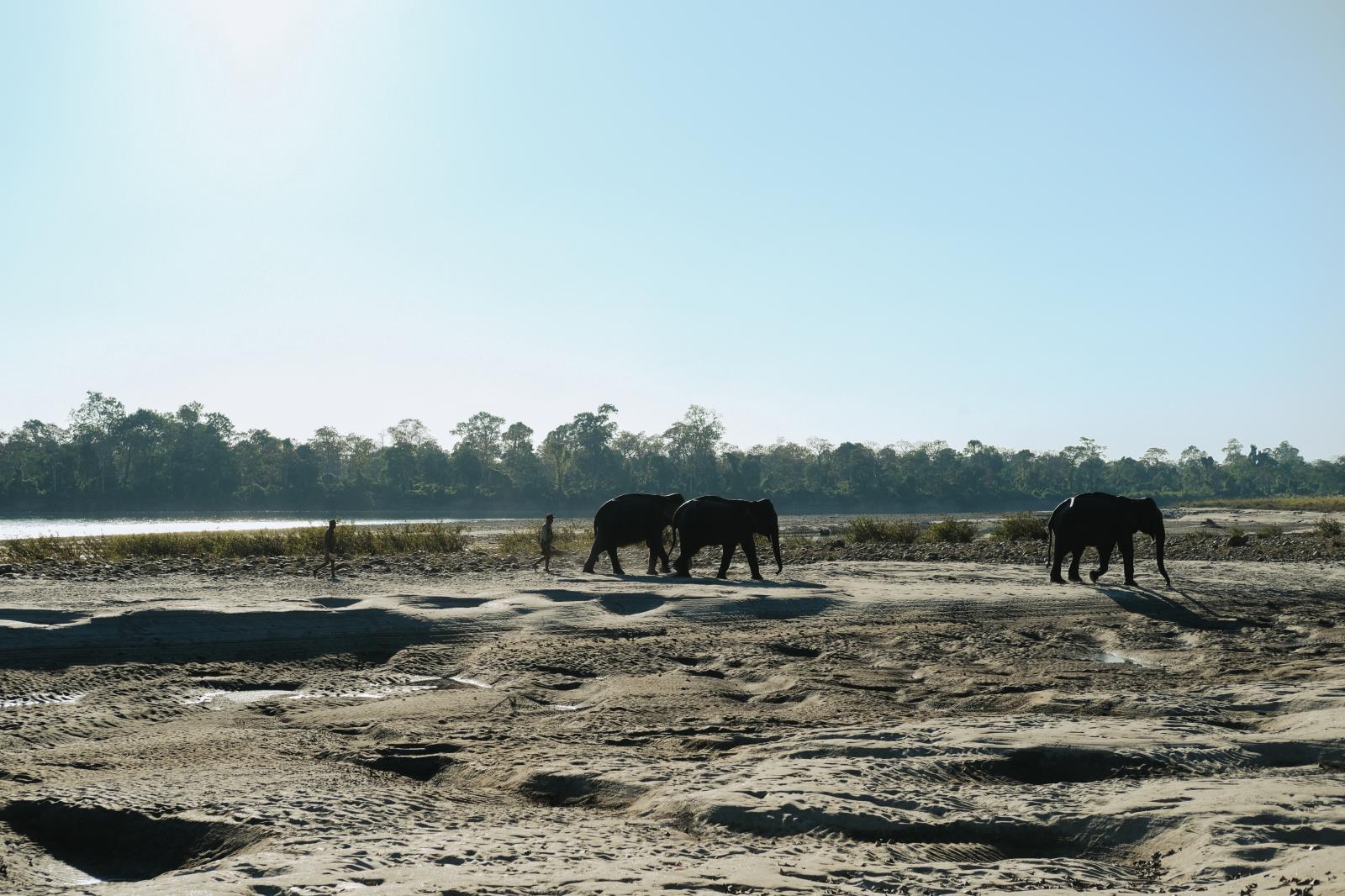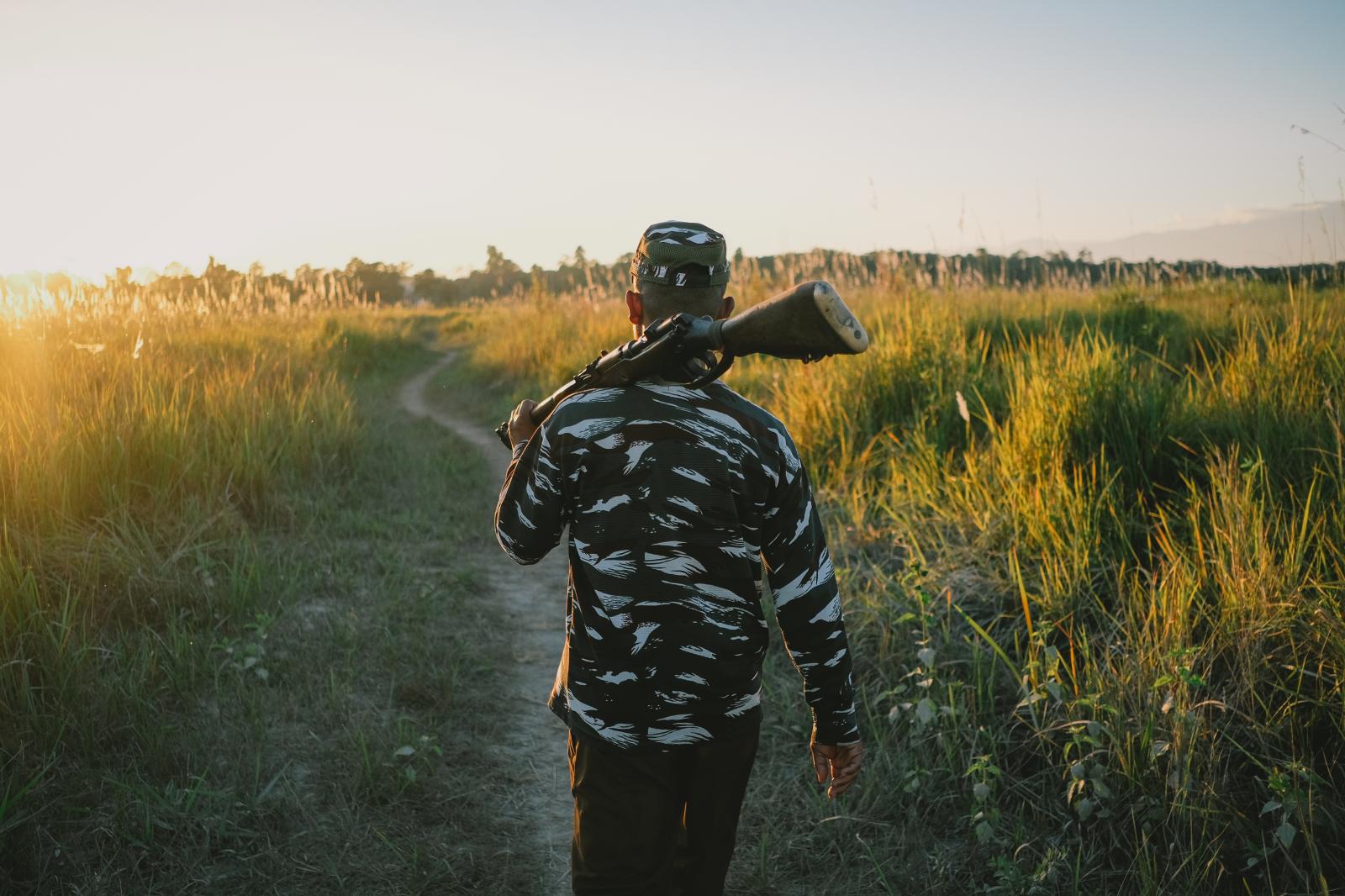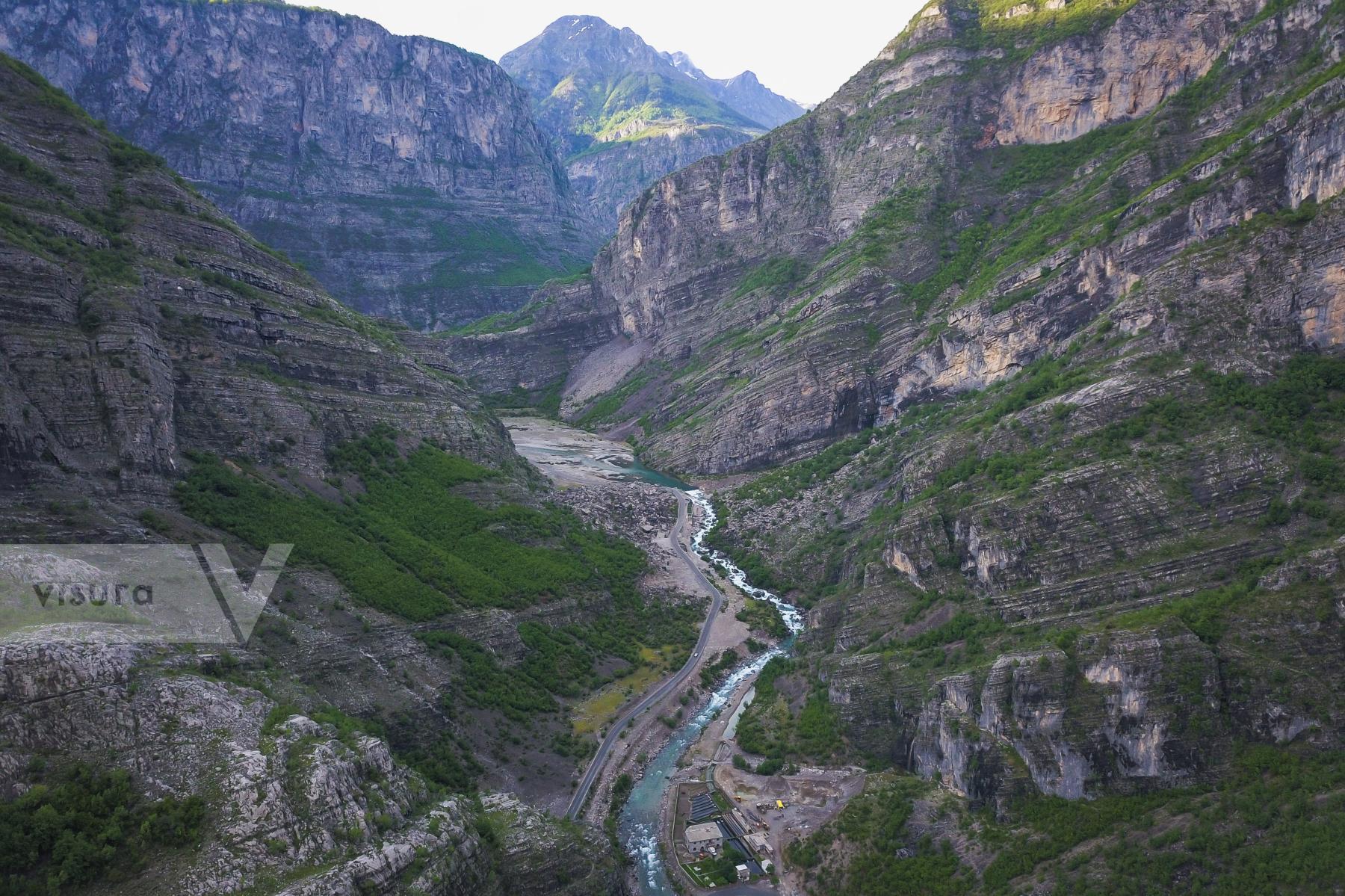
The Cemi River flows through the Kelmend valley in northern Albania. Historically one of the most isolated areas of Albania, most of the northern mountains were never fully conquered during the Ottoman Empire's 500 year control of the region. The highland Malësorë people have fiercely defended the region for centuries, operating under a strong system of tribal alliances, while practicing transhumance and other forms of sustainable agriculture.
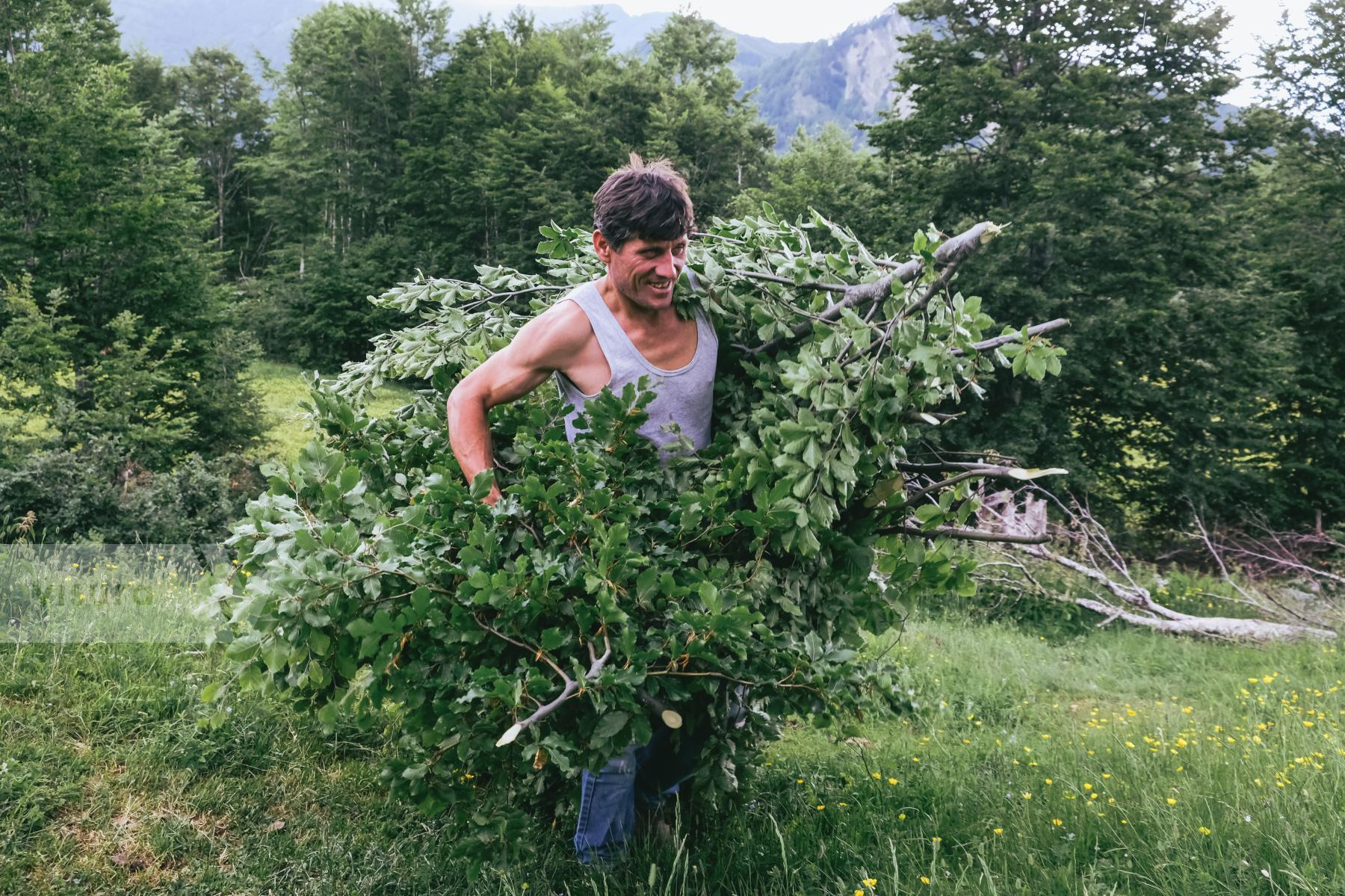
Gazmend Bikaj collects brush from the surrounding forest to construct a roof over a livestock enclosure in Koprisht, Kelmend region, Albania. Gazmend is a shepherd from Kalsa, a hamlet some 30km away, where he lives with his family most of the year. During the summer months they migrate to an encampment in the high pastures of Koprisht, taking a flock of sheep that belong to a farmer from the lowlands.
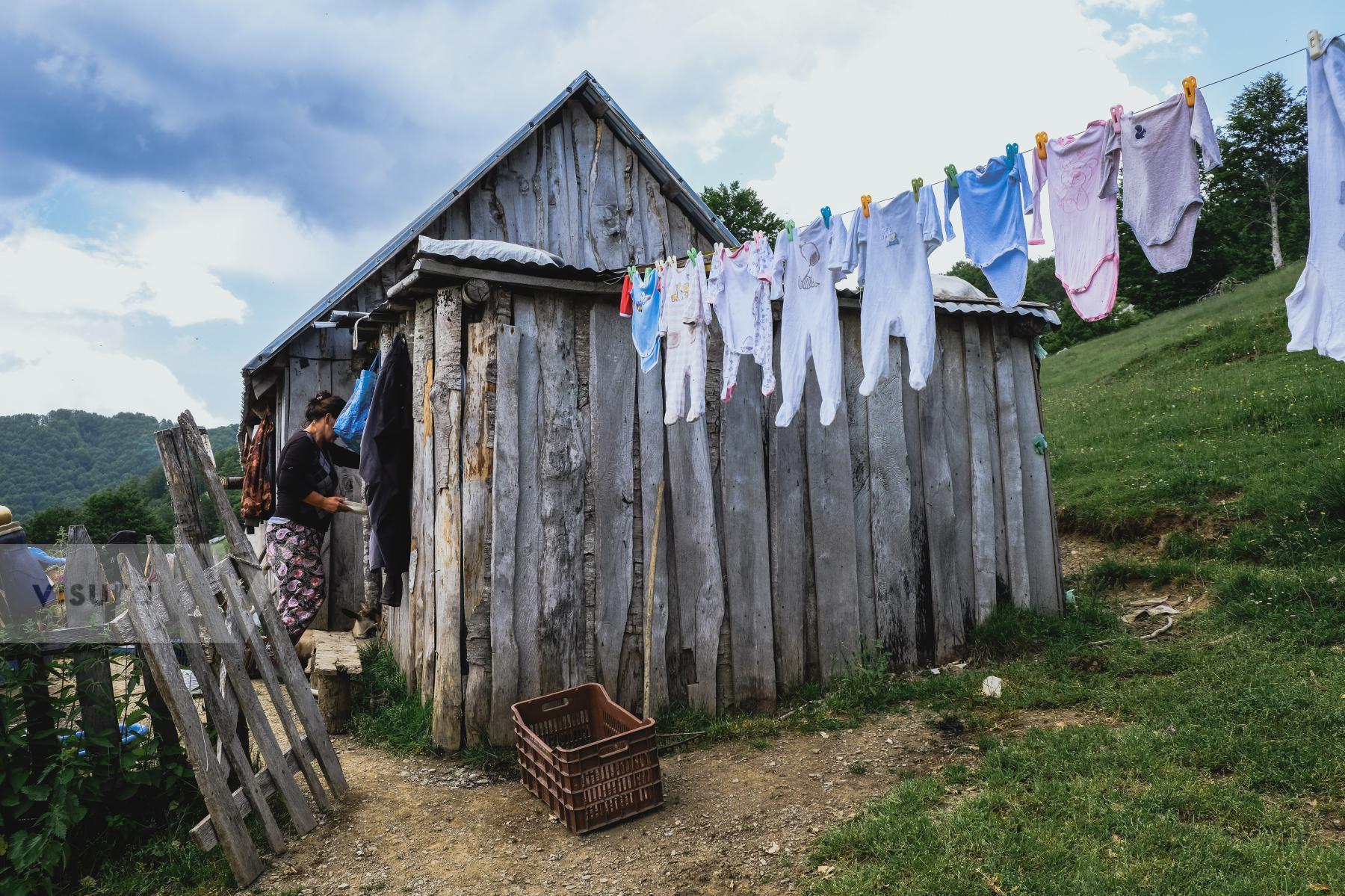
During the summer, shepherds live in the high mountains in a temporary shelter called a Stan. The structures are basic with an exposed dirt floor, stove and loft area for sleeping.
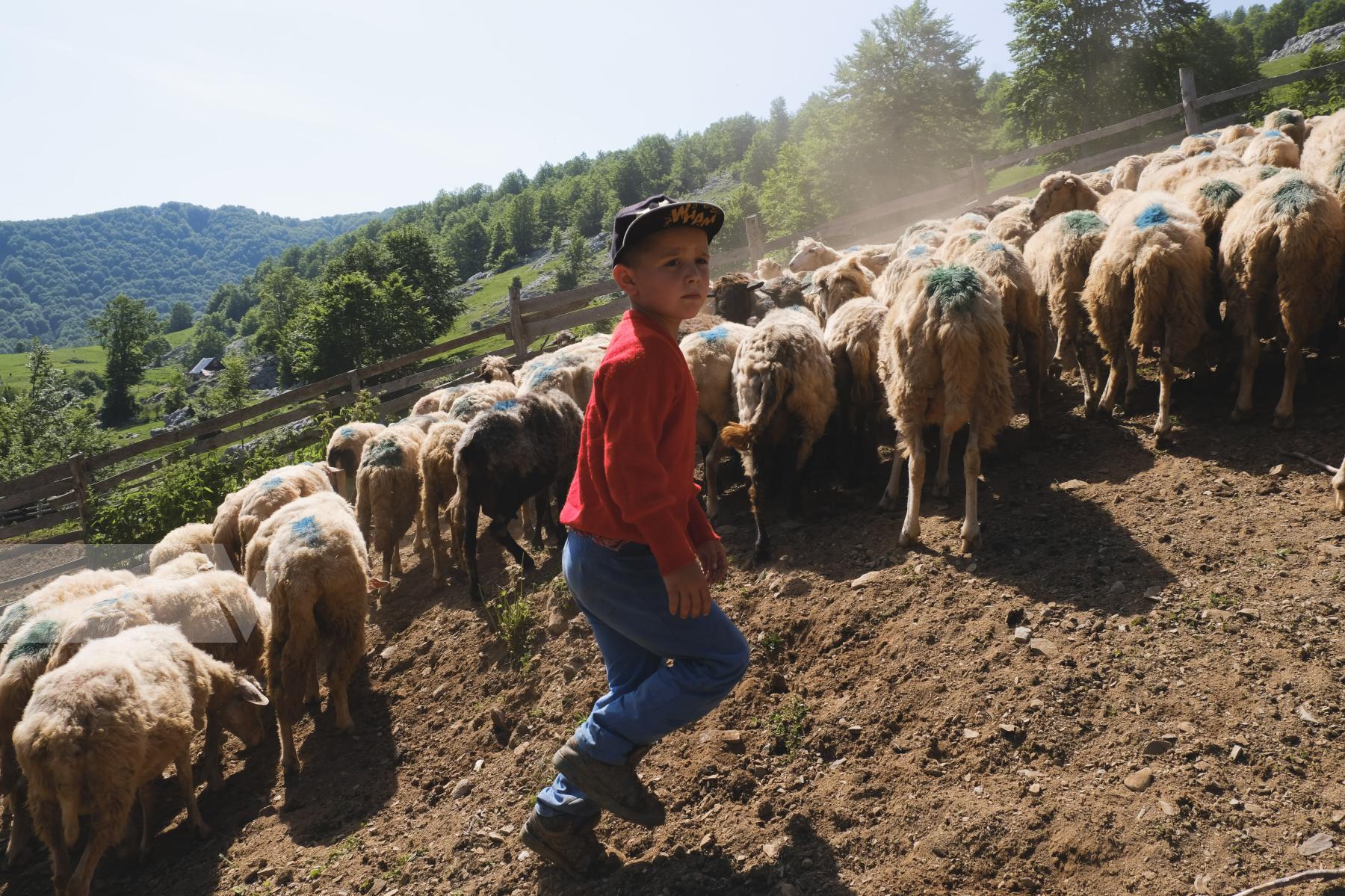
Wilson Bikaj, one of Gazmend's sons, helps round up sheep in an enclosure in Koprisht, Kelmend region, Albania. The entire Bikaj family takes part in the process of caring for and grazing the sheep during the summer months.
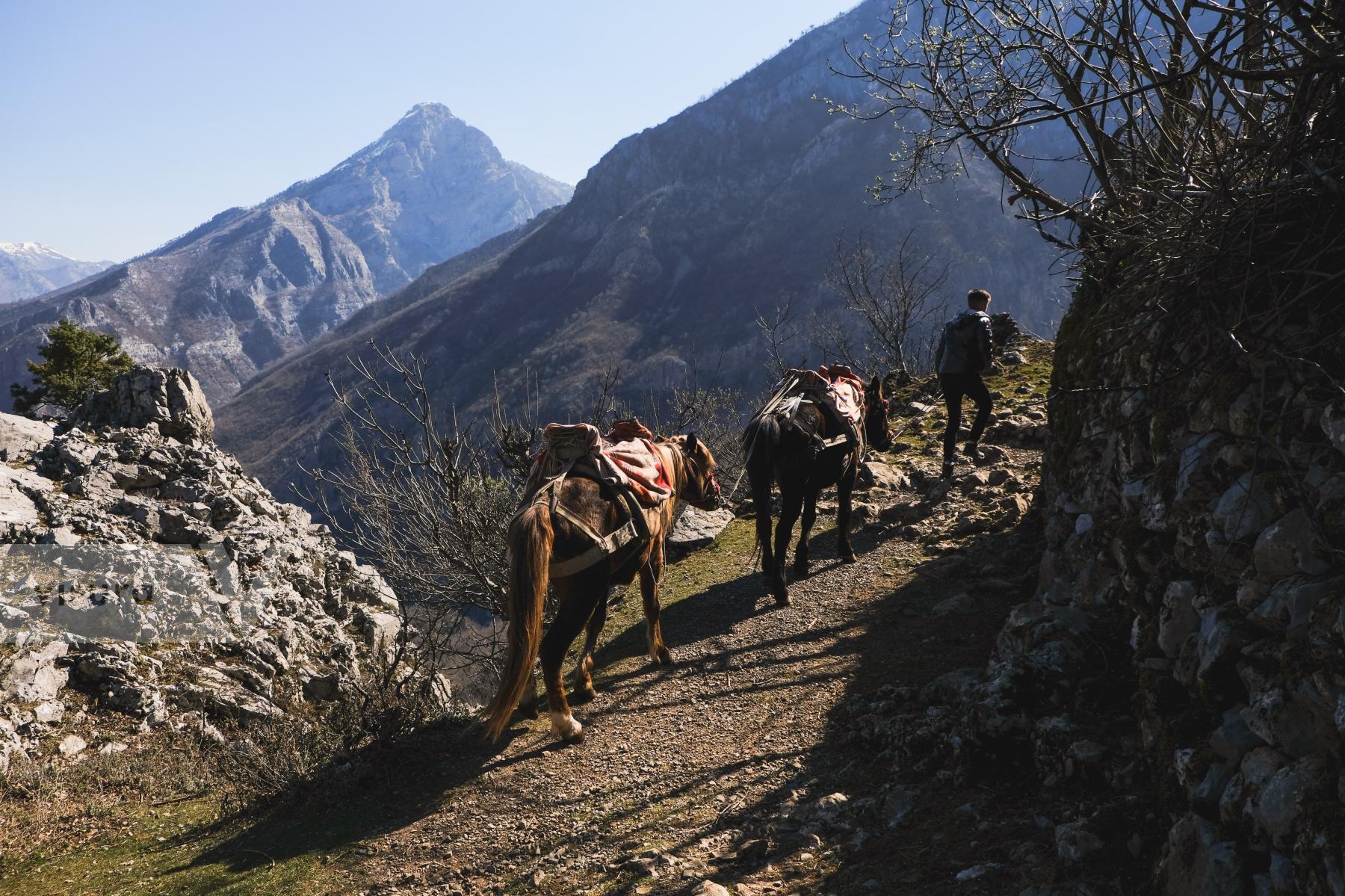
Fonsi Bikaj walks with two horses near his family's house in Kalsa, the hamlet where they spend the winter months, Kelmend region, Albania.
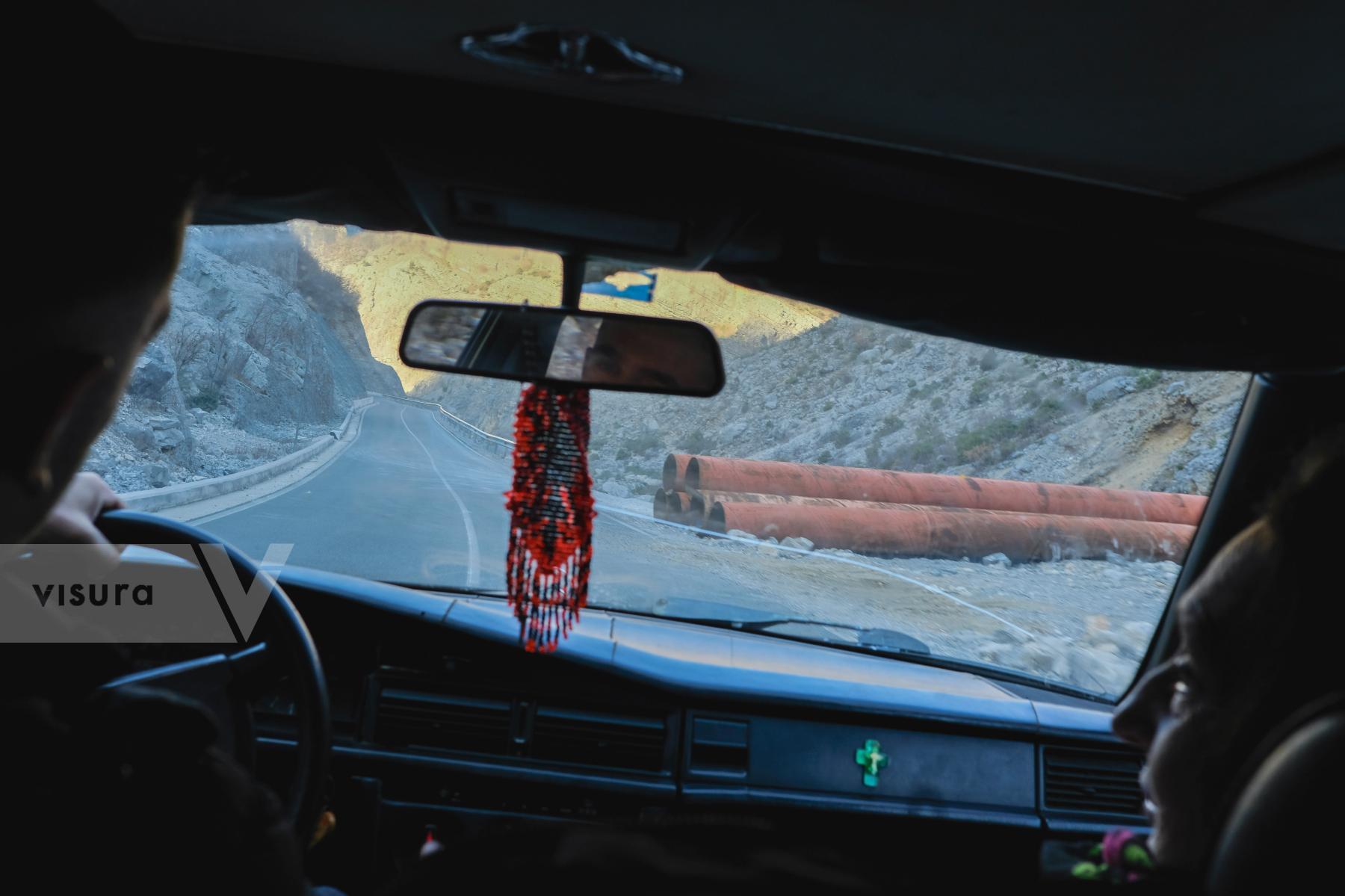
Construction materials for a small scale hydropower dam near the village of Tamarë, Kelmend region, Albania. Multiple small scale hydropower dams are planned or under construction on the Cemi river. Combined with the effects of climate change, the dams further threaten water supplies for the region's population.
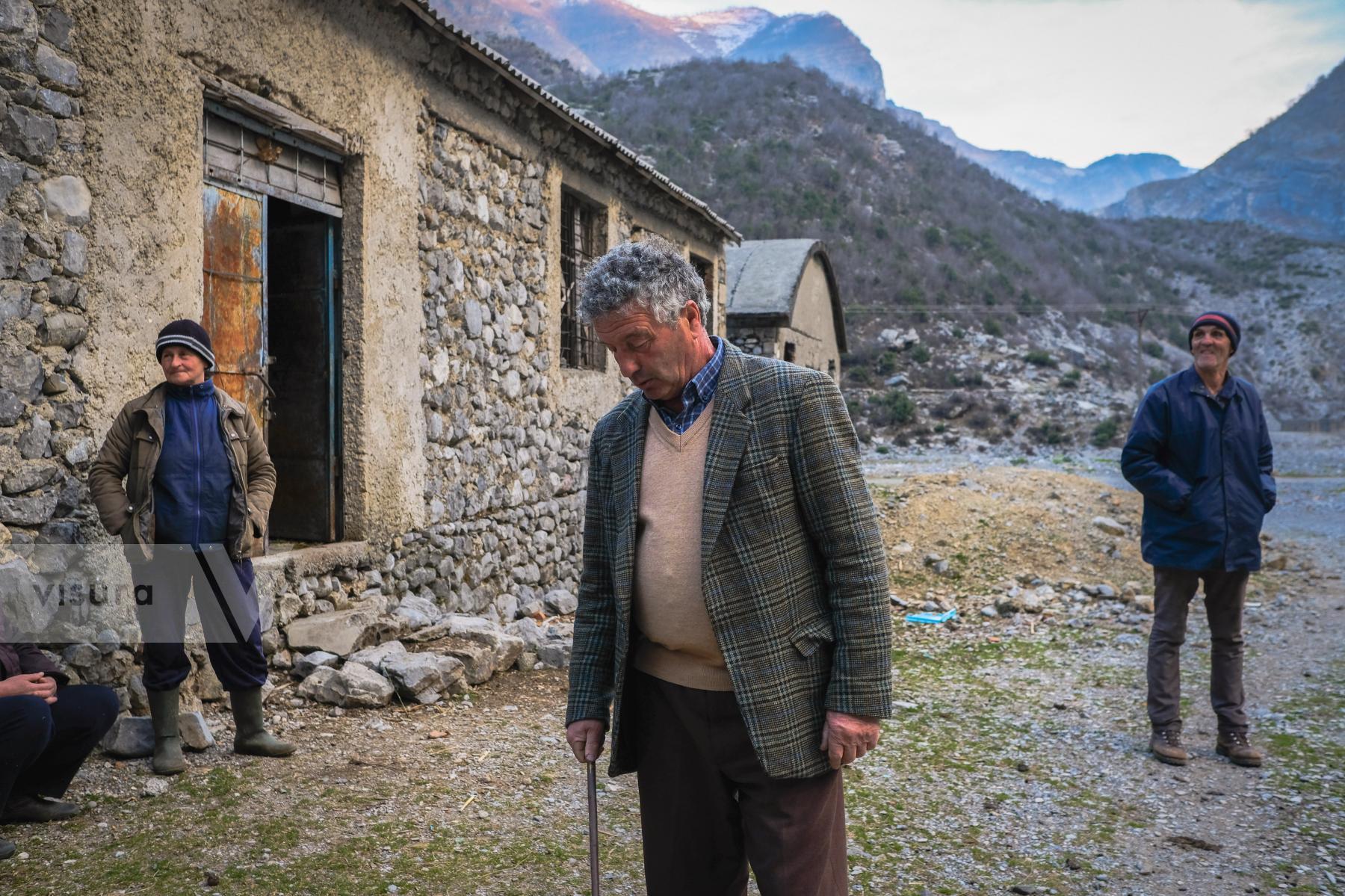
From left to right, Prenë Naçaj, Maresh Bujaj and Simon Naçaj stand outside a livestock enclosure in the village of Selcë. The village is located near the construction sites of two small scale hydropower projects, and locals fear the effects these could have on their access to water that is critical for their herds.
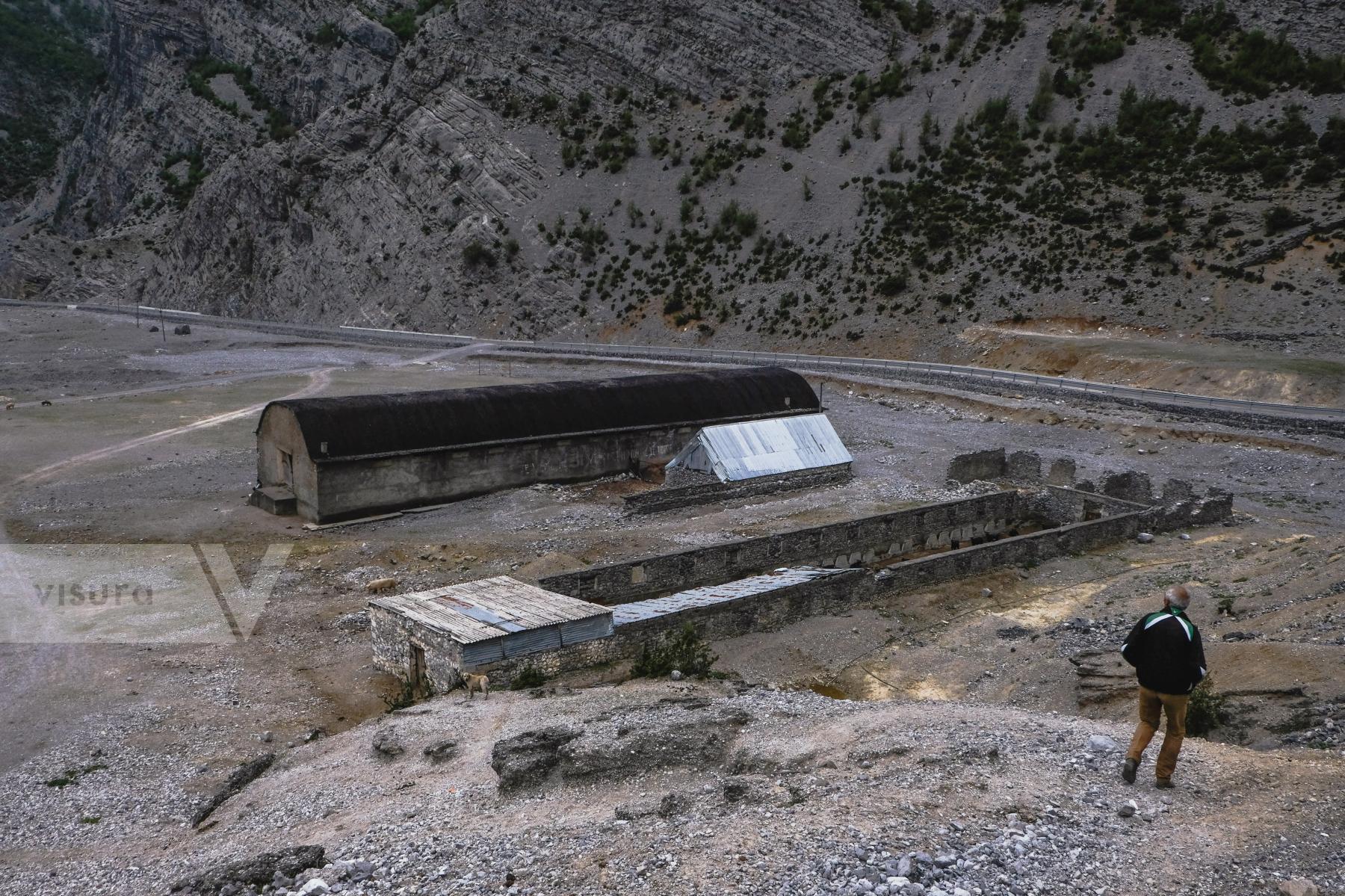
Simon Naçaj walks to the structure where he keeps his herd of goats in the village of Selcë, Kelmend region, Albania.
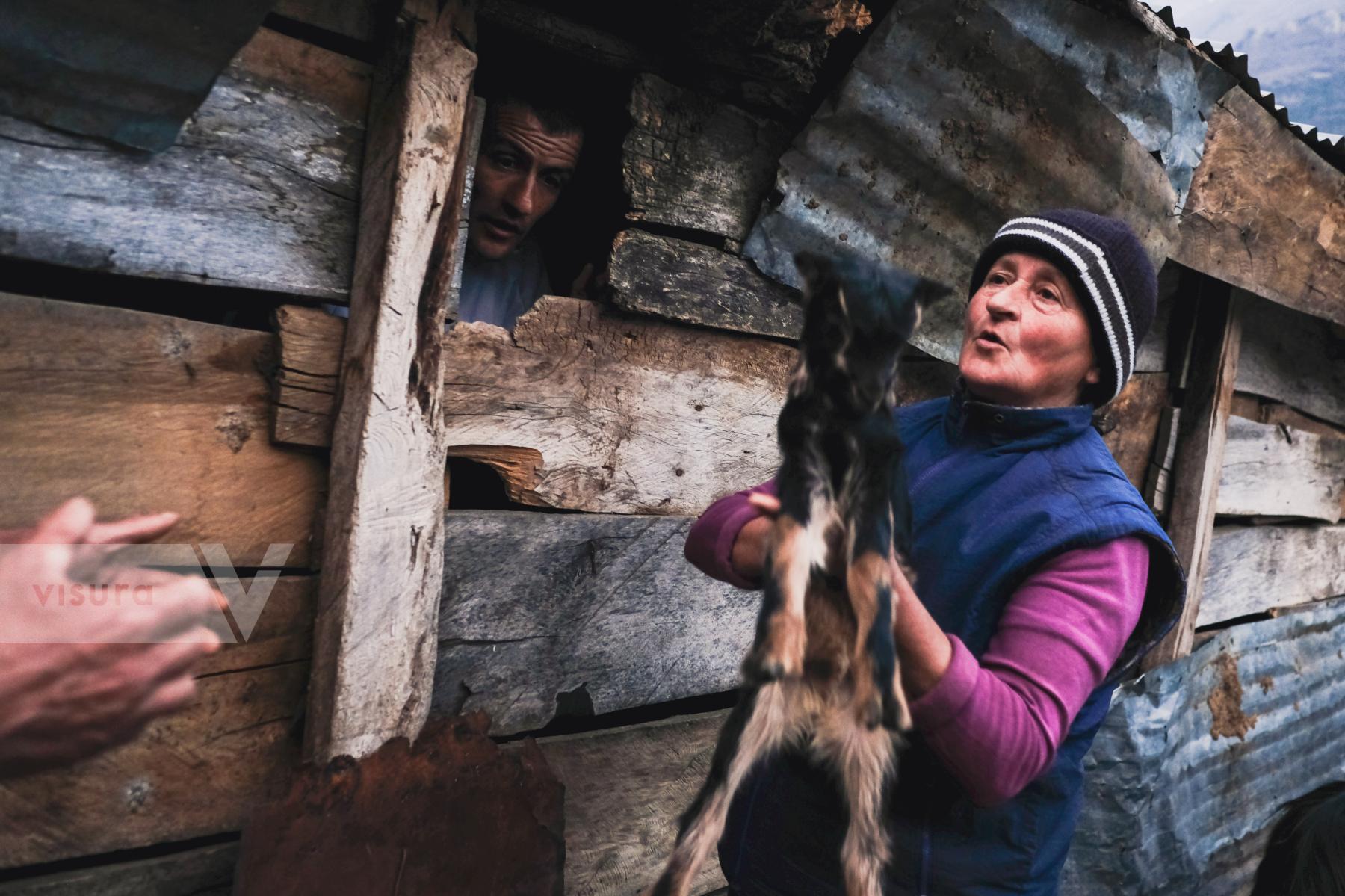
Prenë Naçaj and her son Gjergi take young goats out of a separate enclosure for them to feed with their mothers, in the village of Selcë, Kelmend region, Albania.
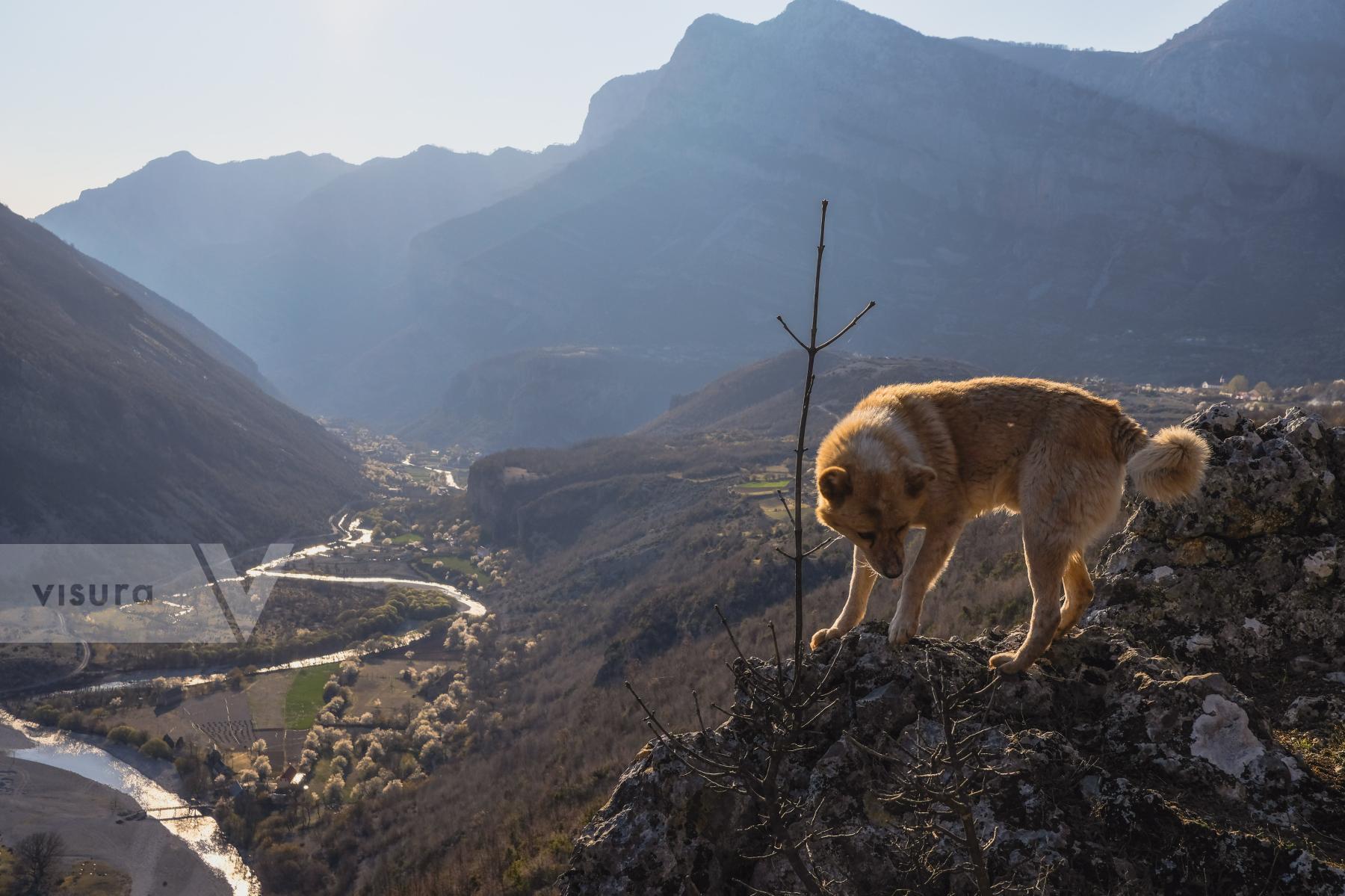
A shepherd's dog waits near an outcropping overlooking the Cemi river near Vukel, Kelmend region, Albania.
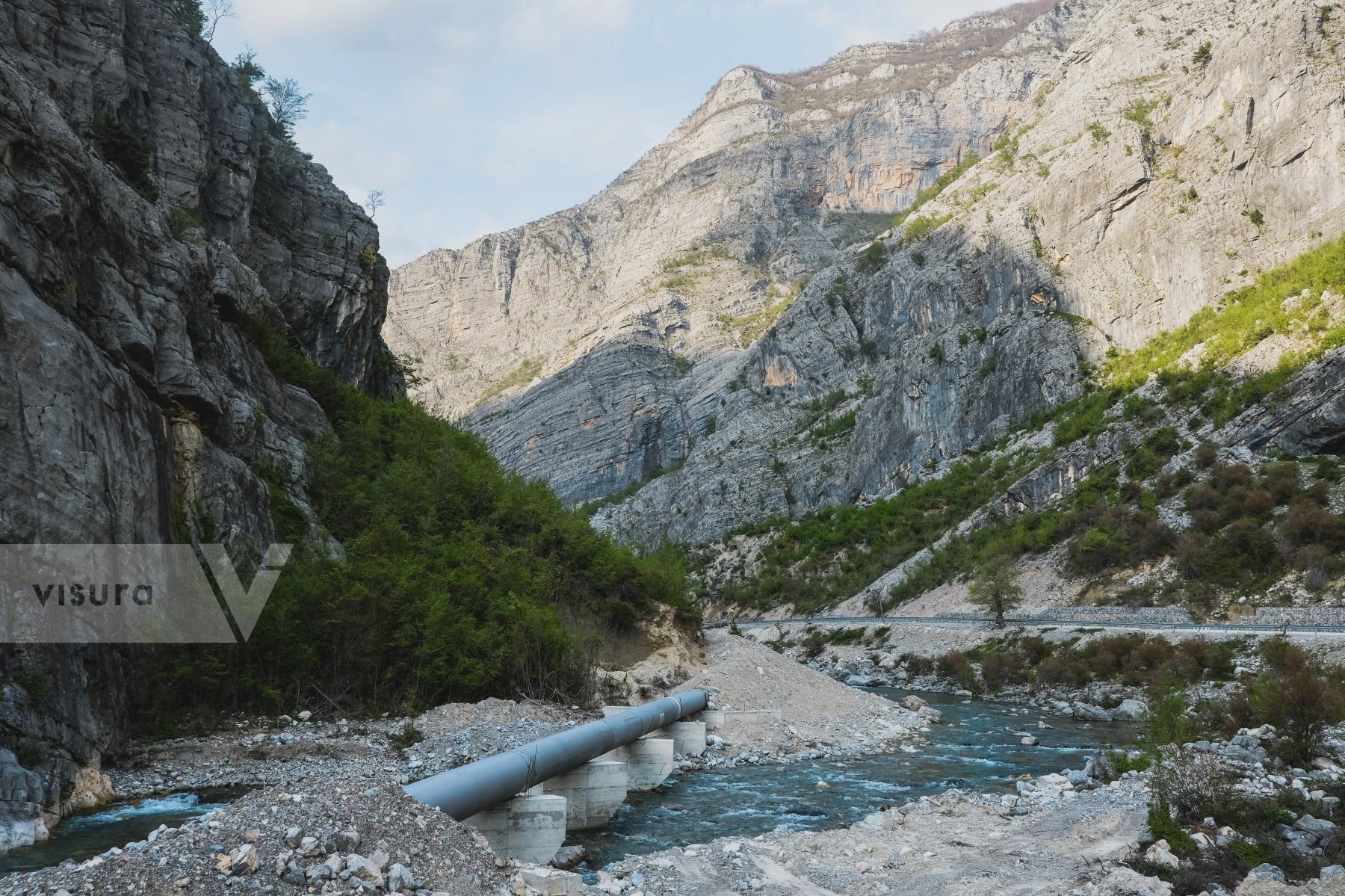
A completed section of pipeline for a small scale hydropower plant near the village of Selcë, Kelmend Region, northern Albania. River water will be diverted into these pipelines to generate electricity at a power station downstream. Locals worry about the effects this will have on their access to water, which is critical for agriculture and raising livestock.
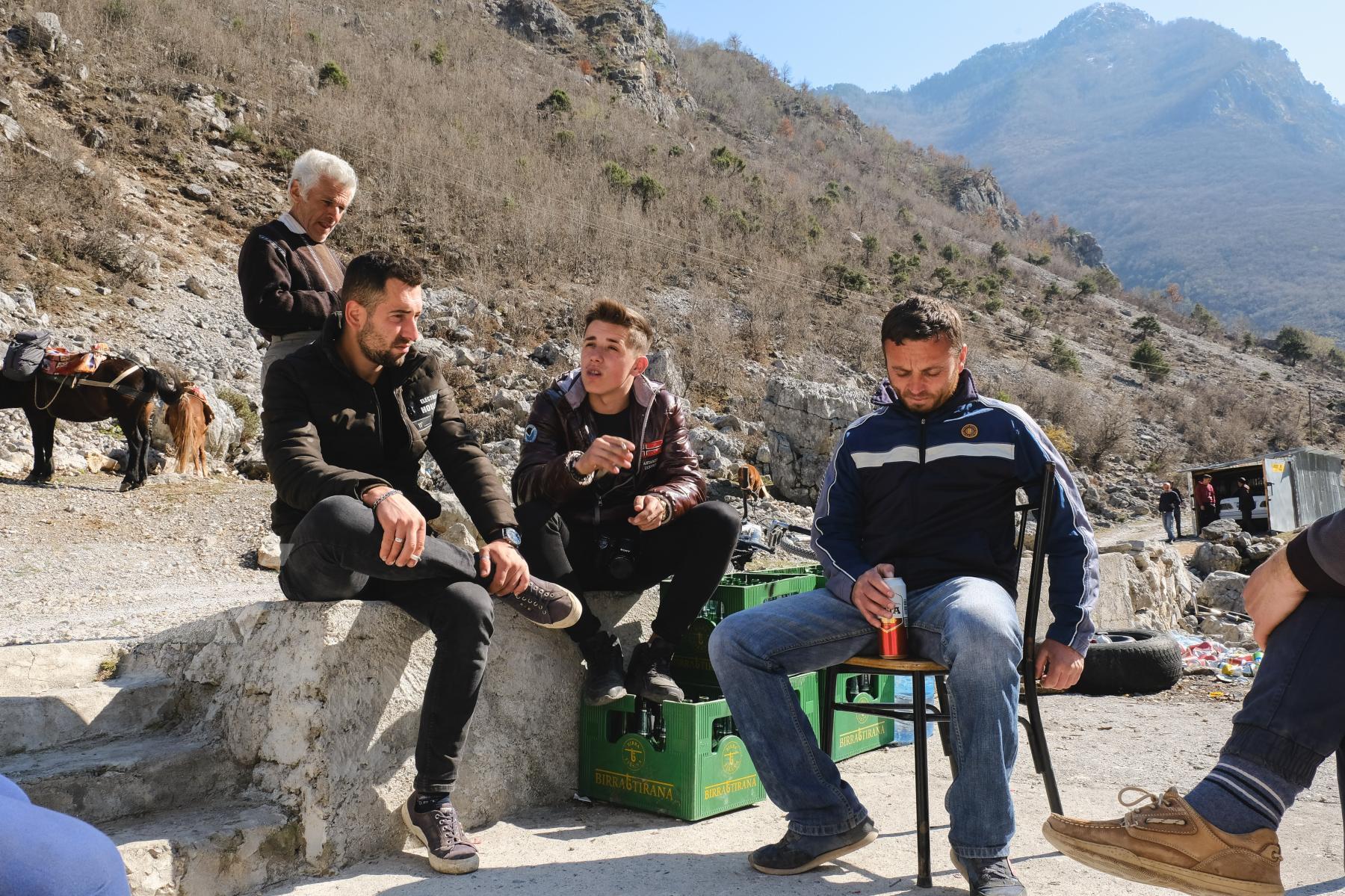
From left to right, Vot Gjyste, Marketin Naçaj, Fonsi Bikaj and Prek Tanazej rest near a cafe on the banks of the Cemi river, near Kozhnje. The region has seen an exodus of young people in recent years, with some 60% of the population of Kelmend emigrating, many to the United States. Job opportunities are limited and poverty levels remain high in the region, which has seen little development since the fall of the communist regime.
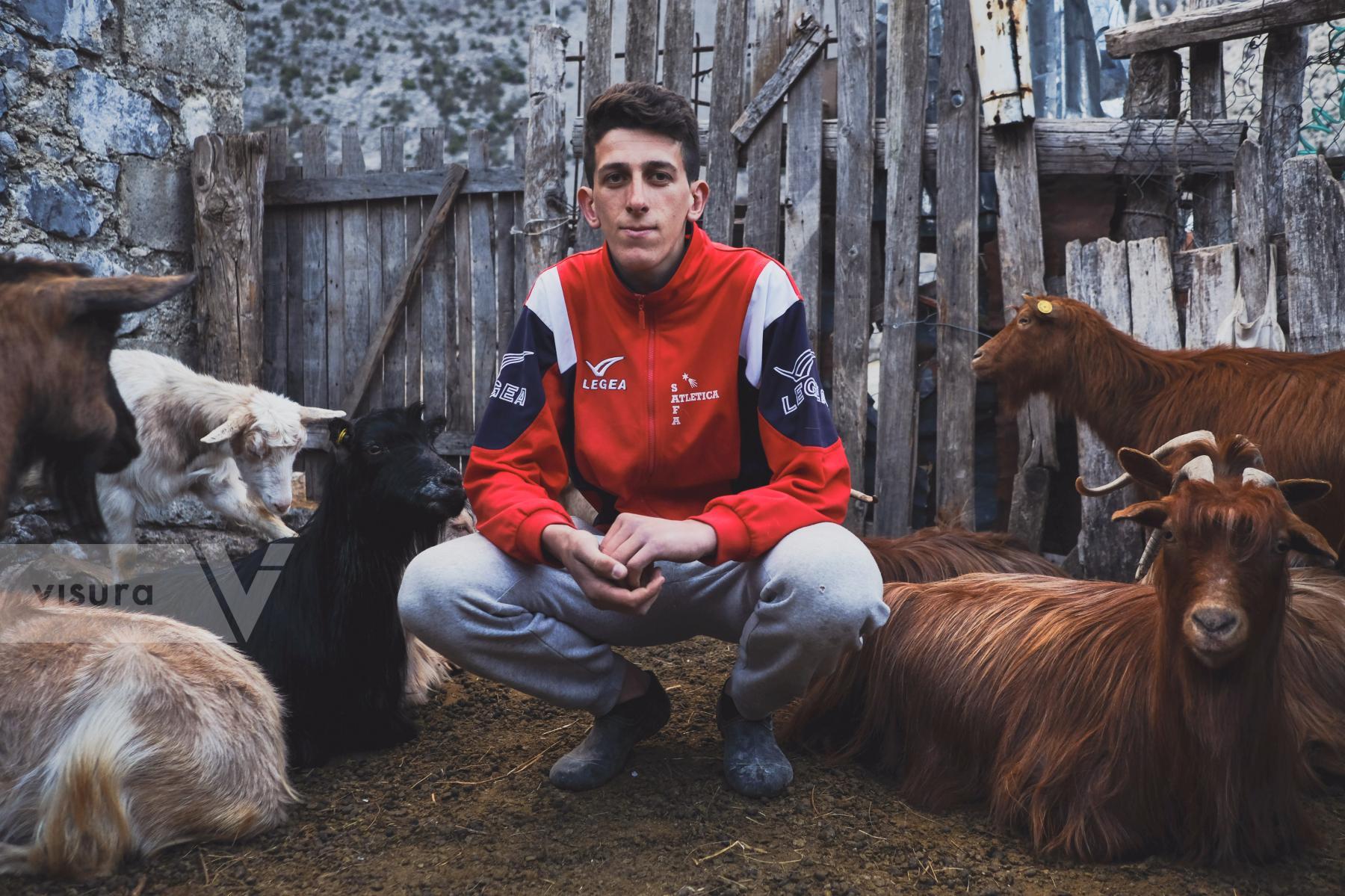
Nikola Naçaj, a young shepherd near the village of Selcë, Kelmend region, Albania. While many young people continue to leave the mountains to live in cities, Nikola is determined to stay and work as a shepherd, carrying on the traditions he has learned from his family.
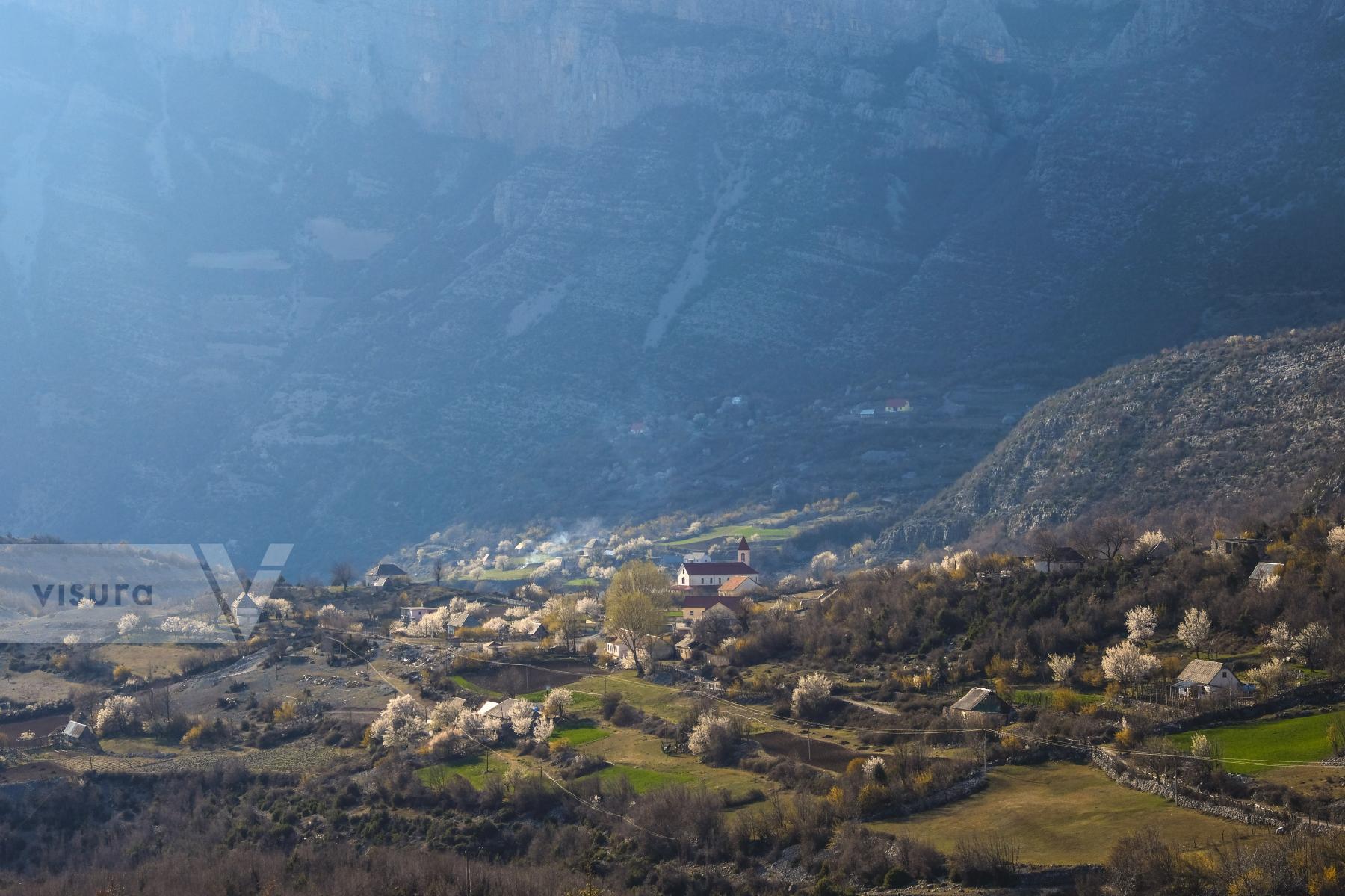
Vukel, a remote village in the Kelmend region only accessible on foot or down an unfinished dirt track that follows the course of Cemi river.
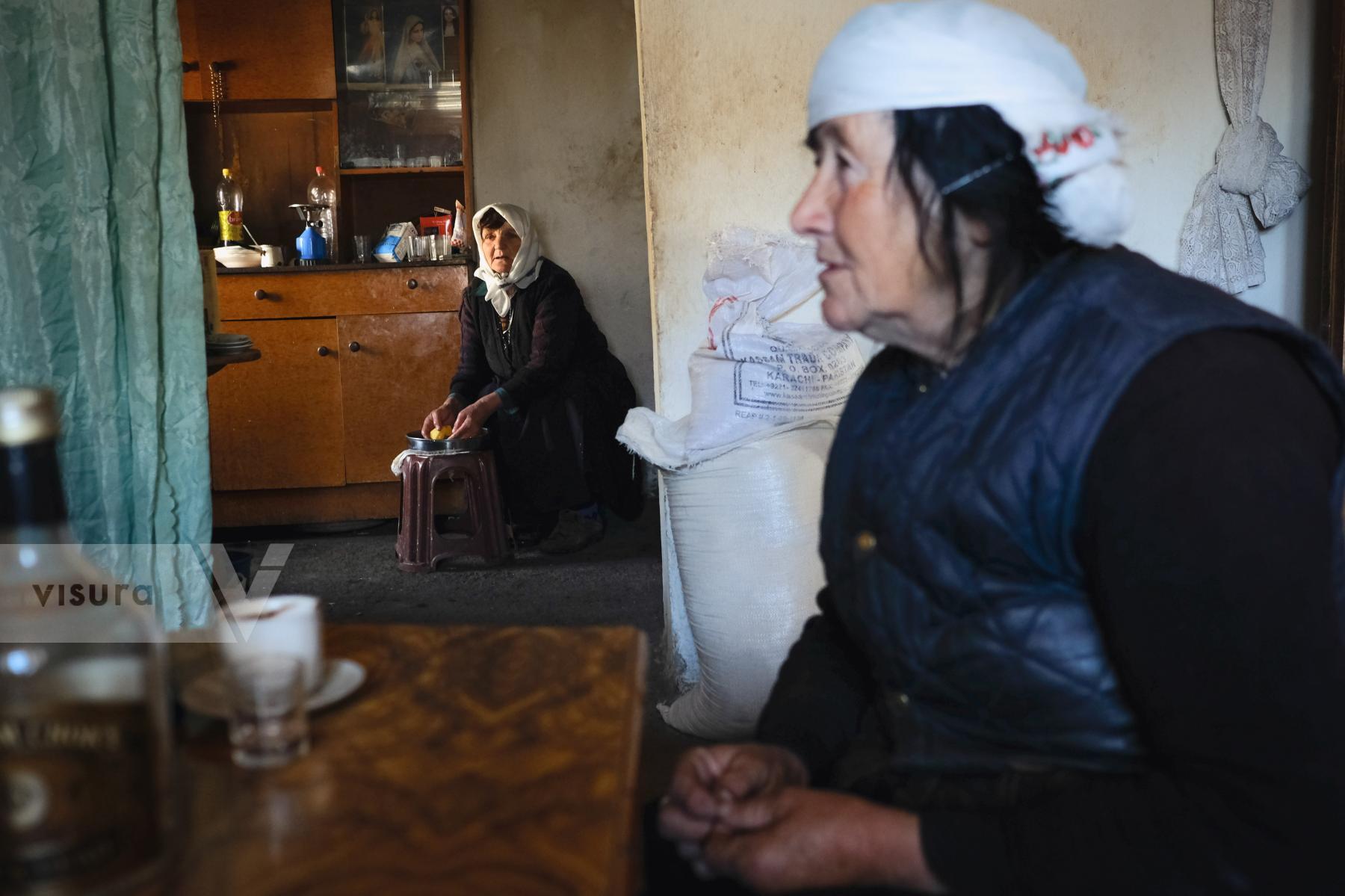
Cousins Gjyste and Age Murçaj, in the village of Vukël, Kelmend region, Albania. Emigration from the region has left a mainly ageing population, who often rely on family members living abroad for financial support. Many older people continue to farm and manage their livestock well into their 70s and 80s.
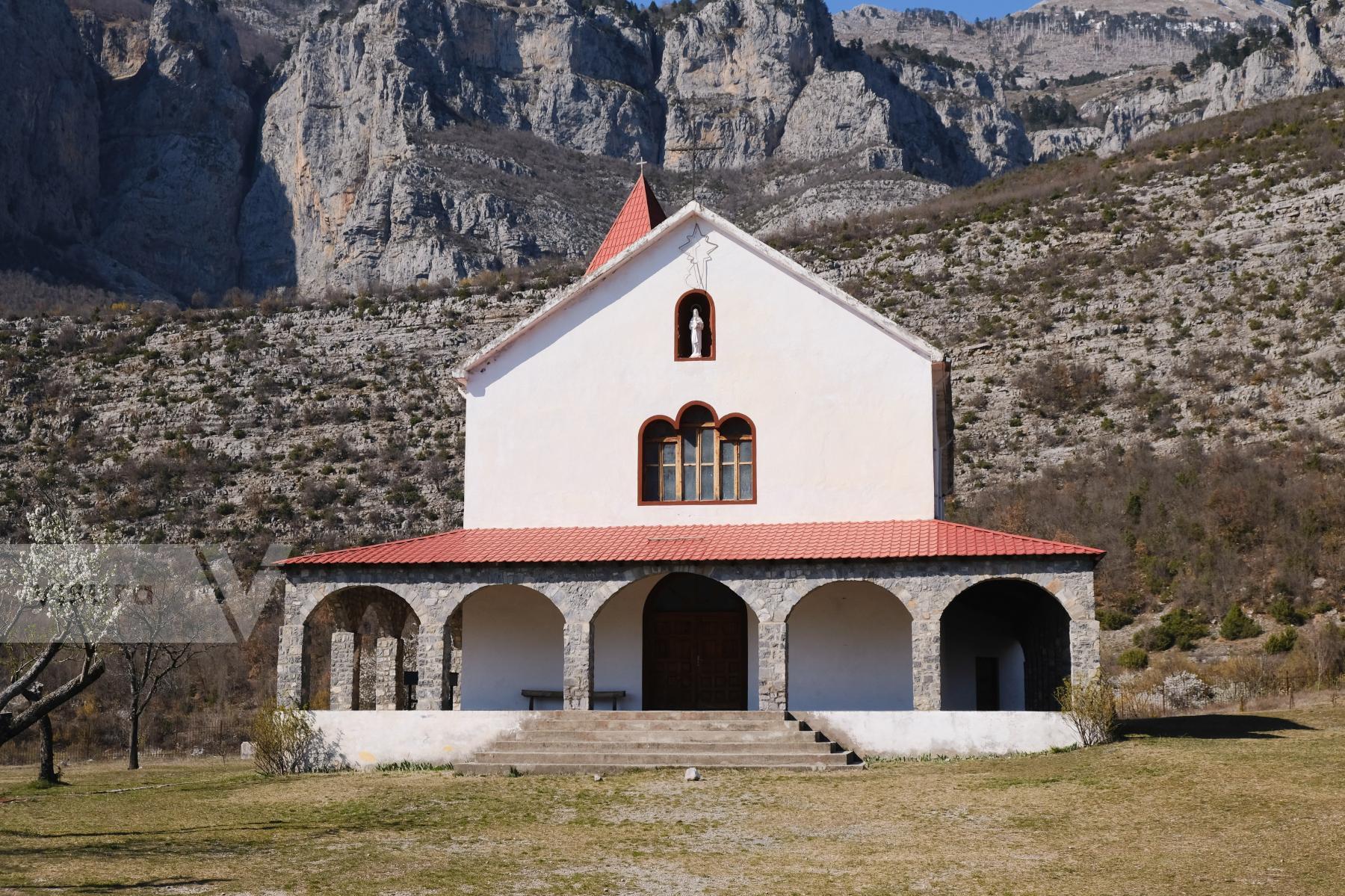
A Catholic church in the village of Vukël, Kelmend region, Albania. The Kelmend region, like much of northern Albania, has a majority Catholic population, which fiercely resisted the anti religious policies of the country's former communist regime.
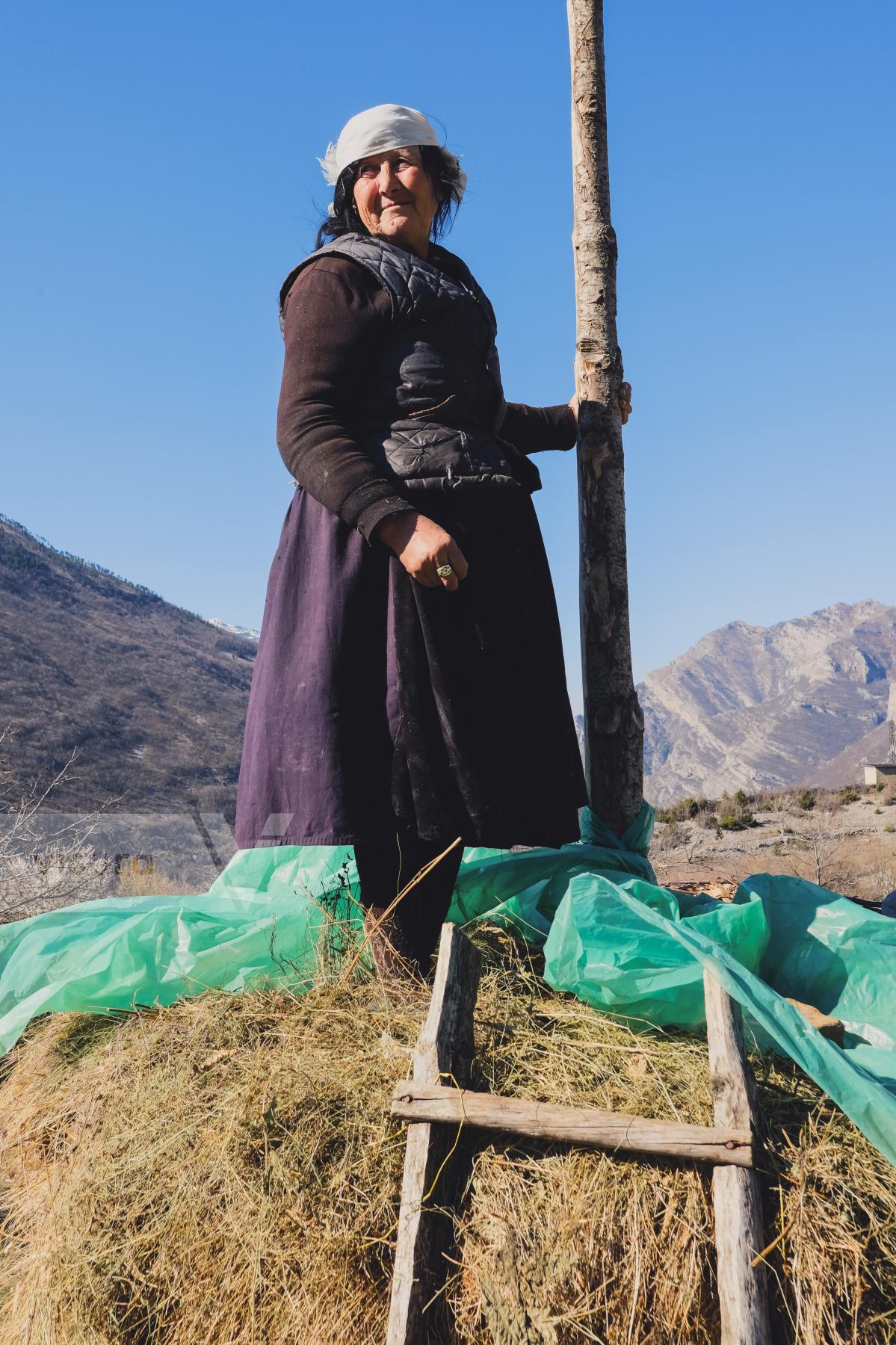
Age Murçaj a villager in Vukël, Kelmend region, Albania. The region's elderly population remain largely active and self sufficient despite their age, continuing tasks like farming, bailing hay and caring for their animals.
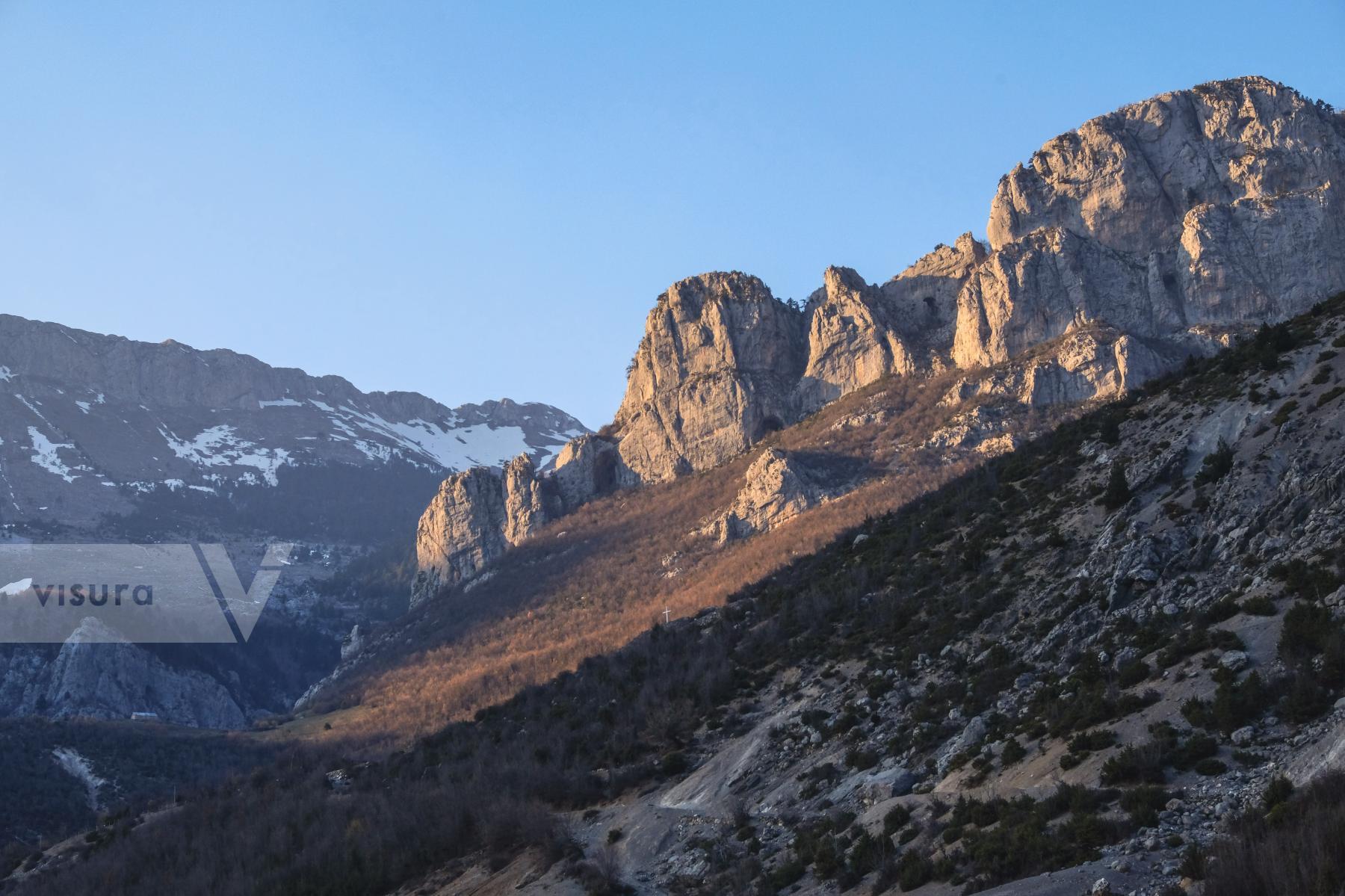
Near Vukël, Kelmend region, northern Albania.
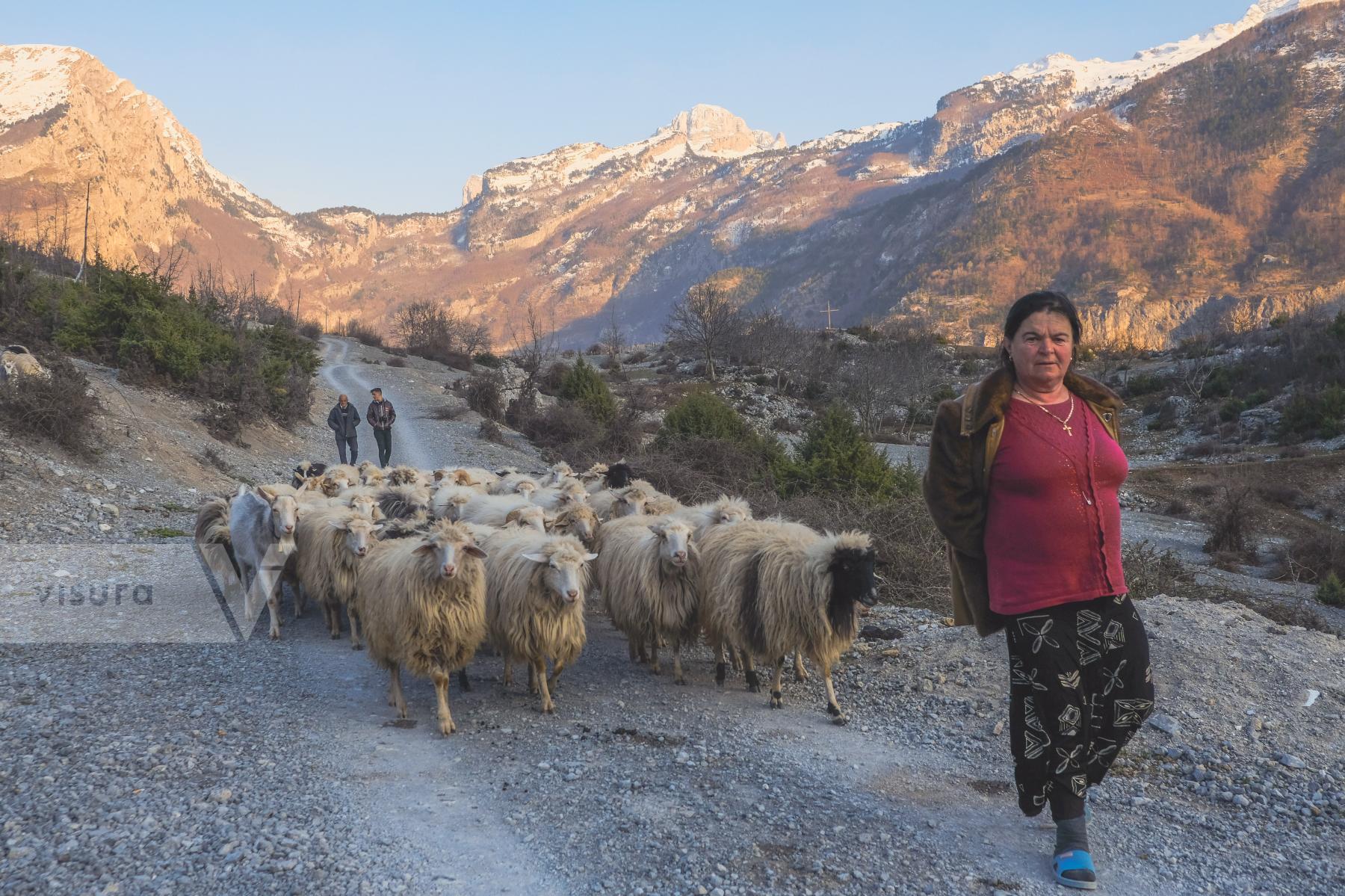
Diellë Cekal returns to her house after taking her sheep to graze in the village of Vukël, Kelmend region, Albania. Most of the population relies on farming or their livestock to make a living.
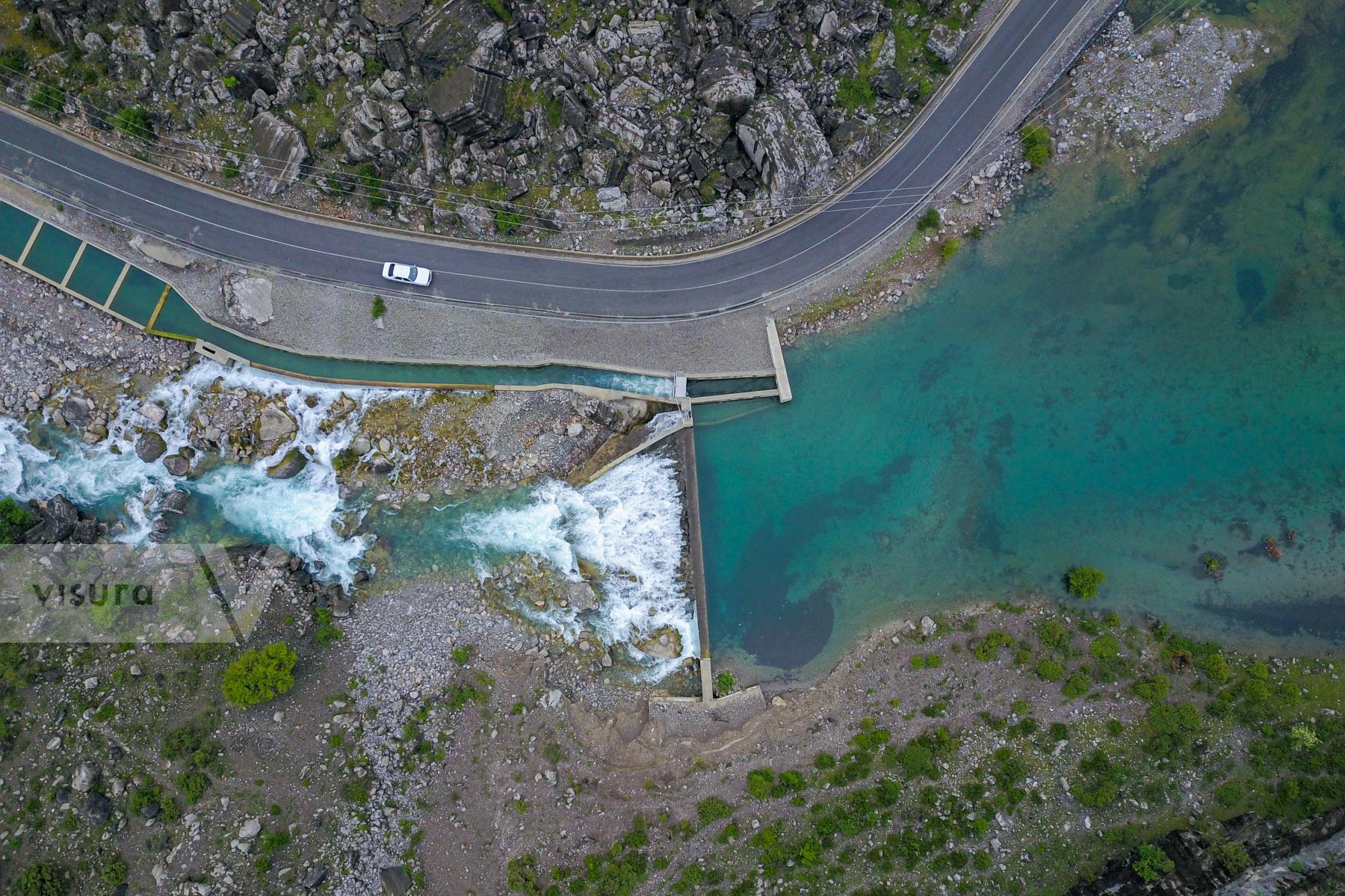
A small scale dam on the Cemi River, Kelmend valley, northern Albania. These alpine rivers contribute to the valley being one of the most biodiverse areas of Albania, however multiple dam projects are now threatening their natural state, and critical water supply for nearby rural communities.
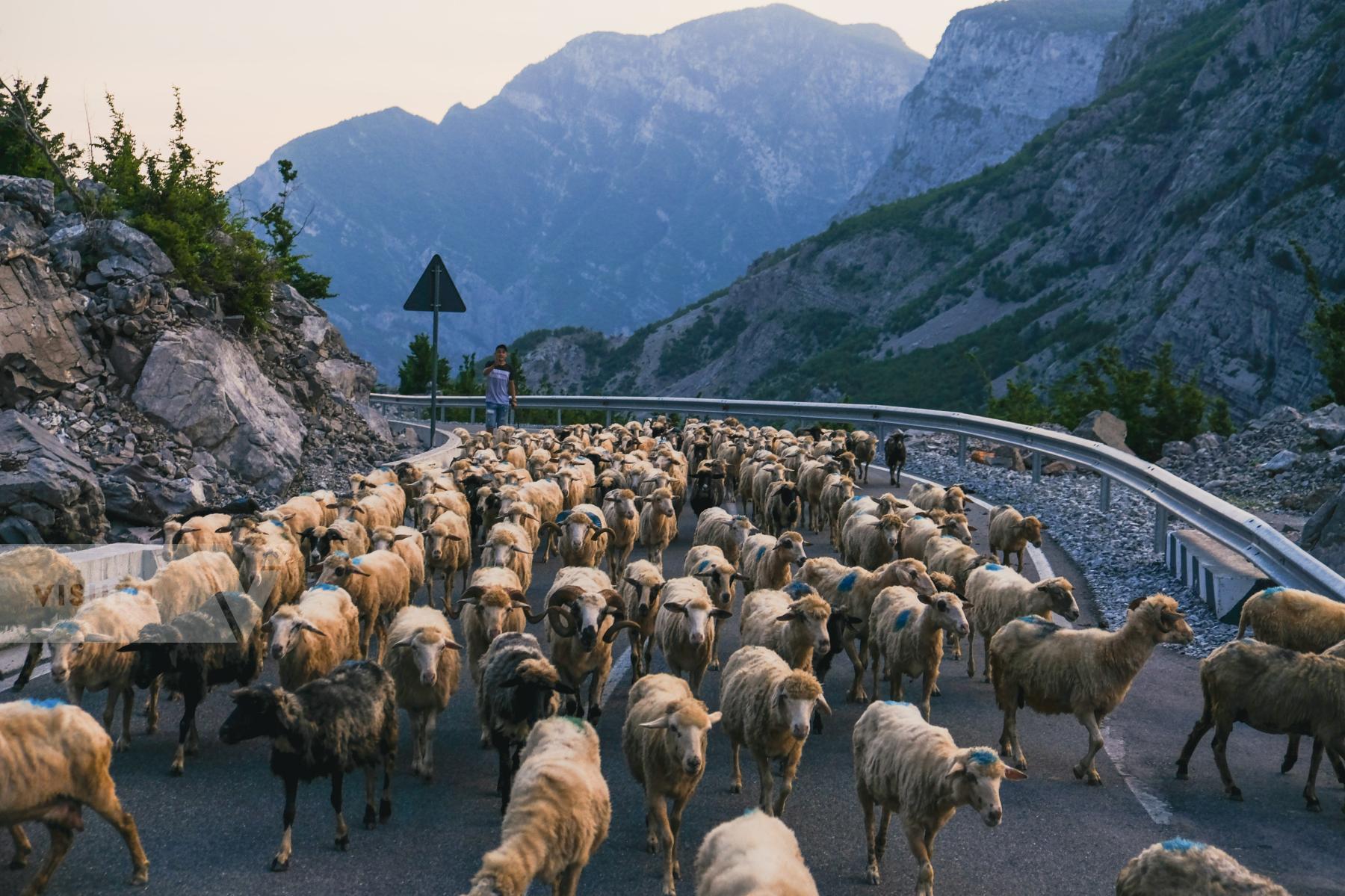
Fonsi Bikaj moves a herd of sheep along the road from Tamarë to Koprisht, northern Albania, the last stage of a biannual transhumance where shepherds take their animals between high alpine pastures in summer, and lower protected areas in winter. This process of transhumance has been practiced in the mountains for hundreds of years and risks dying out due to a decreasing population as well as the threats climate change and hydropower development pose to local water supply. As a practice, transhumance is highly sustainable, with grazing stimulating plant growth, reducing soil erosion and helping with water retention, while reducing wildfire risks due to consumption of biomass.
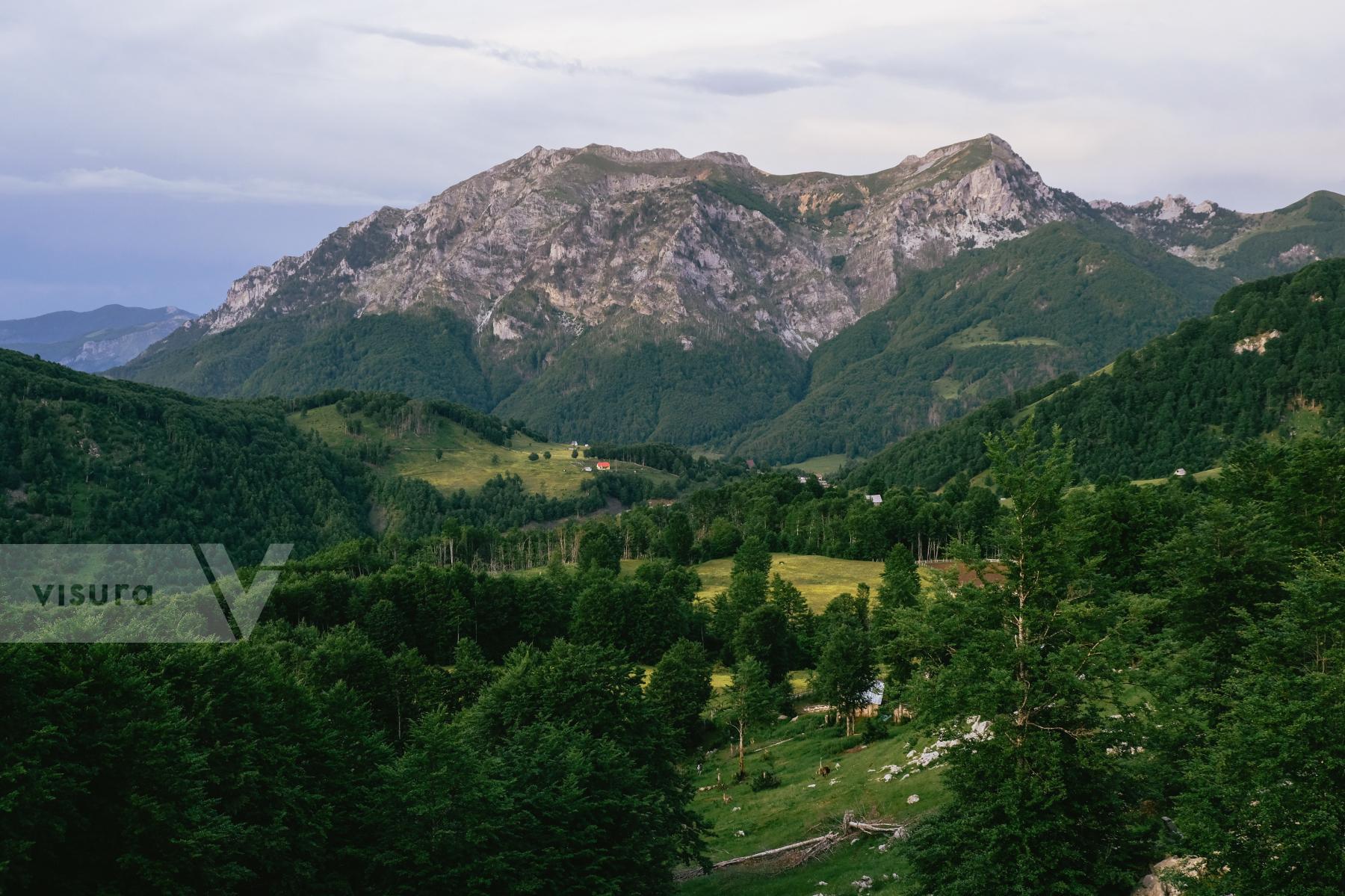
Koprisht, Kelmend Region, Albania. The high alpine pastures in this area are a favoured location for shepherds to bring their animals to graze in the summer months.
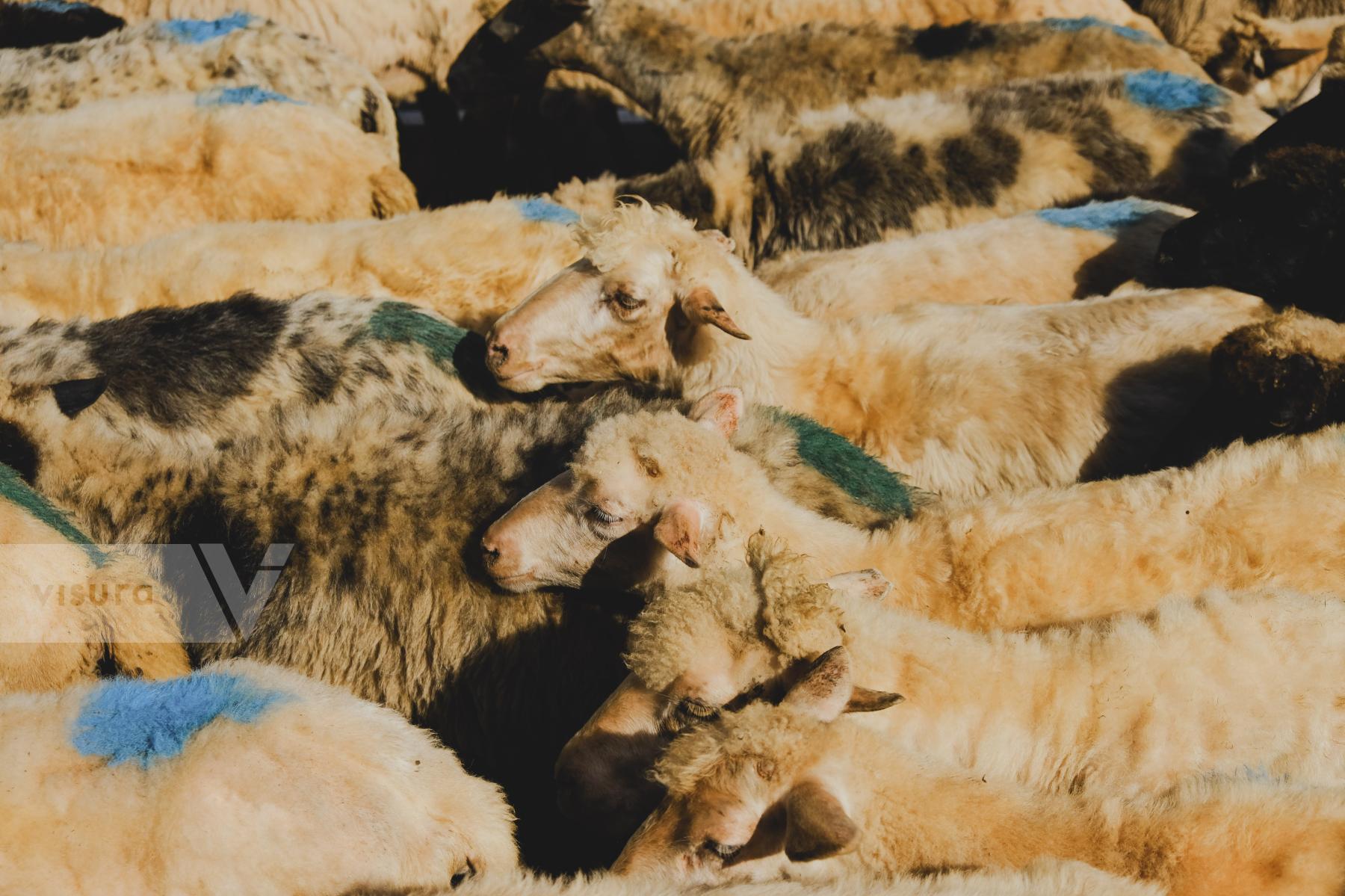
A flock of sheep halfway through a 100 km journey from the city of Shkodêr to the high alpine pastures near the village of Lepushë, Kelmend region, Albania. Transhumance has received UNESCO protected status in Austria, Greece and Italy, but not in Albania.
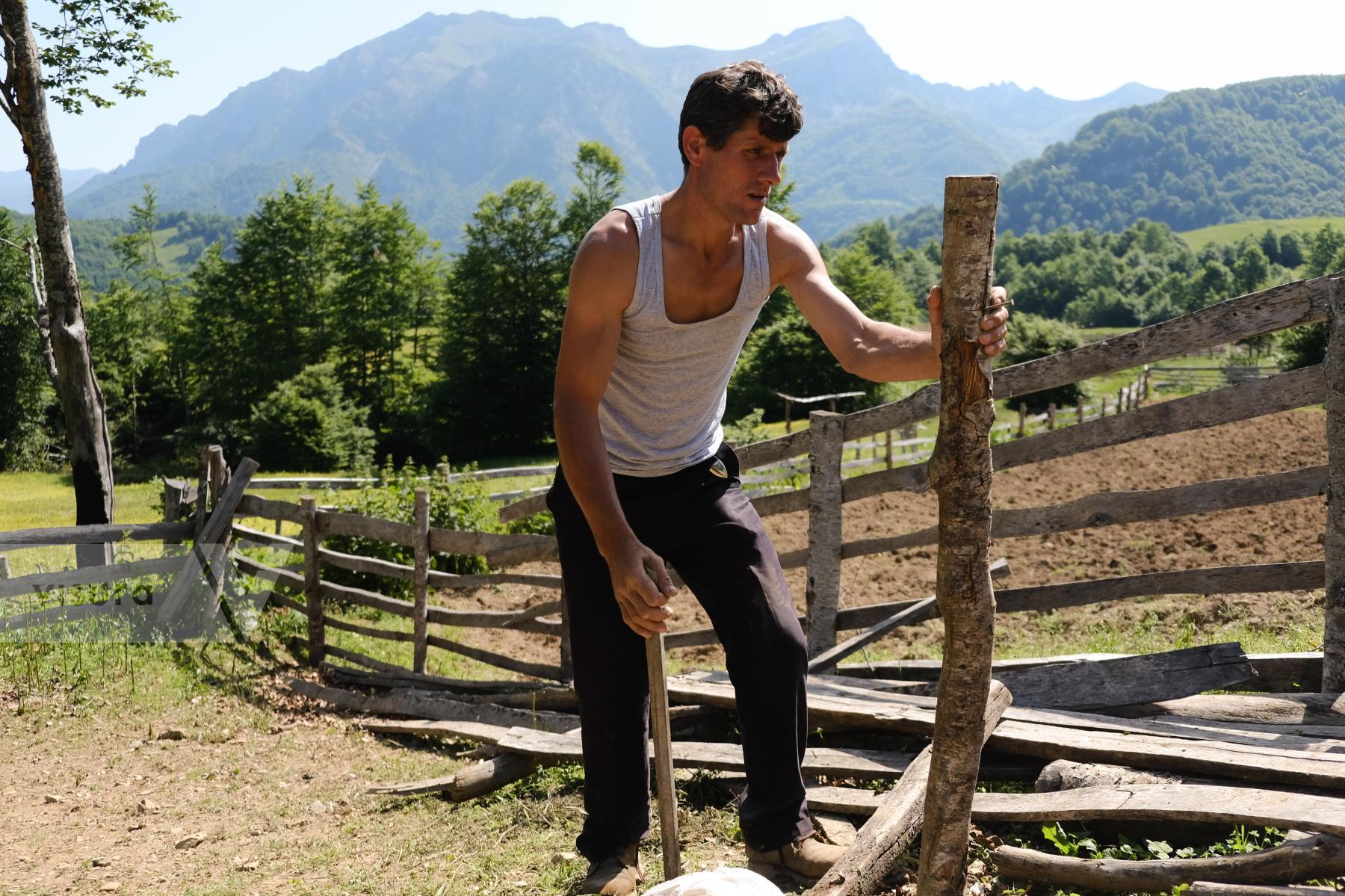
Gazmend Bikaj makes repairs to a section of the sheep enclosure at the family's summer encampment near Lepushë, Kelmend region, Albania.
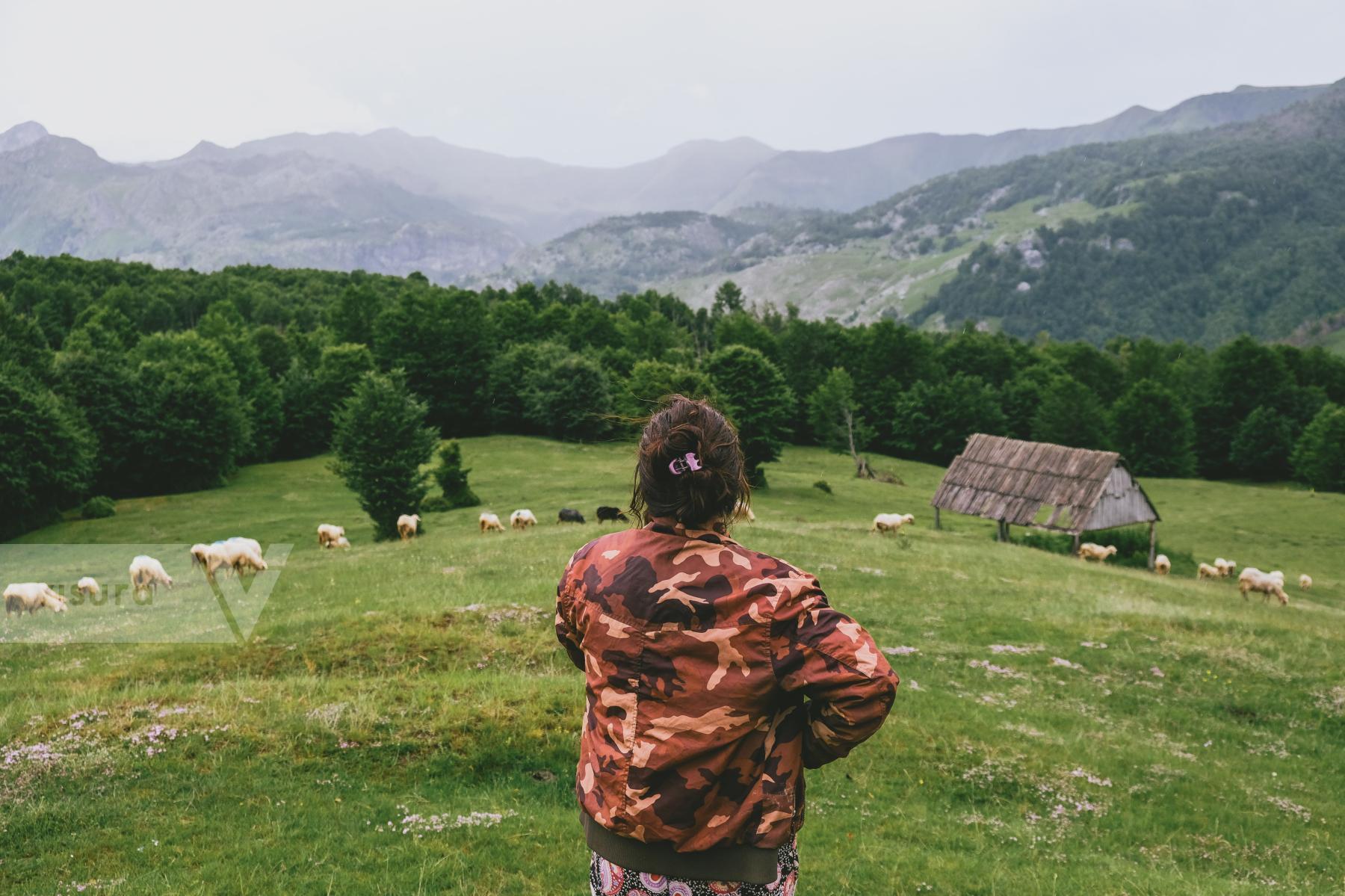
Lula Bikaj watches over a herd of sheep as they graze in a pasture near the village of Lepushë in the Kelmend region of northern Albania. Albania
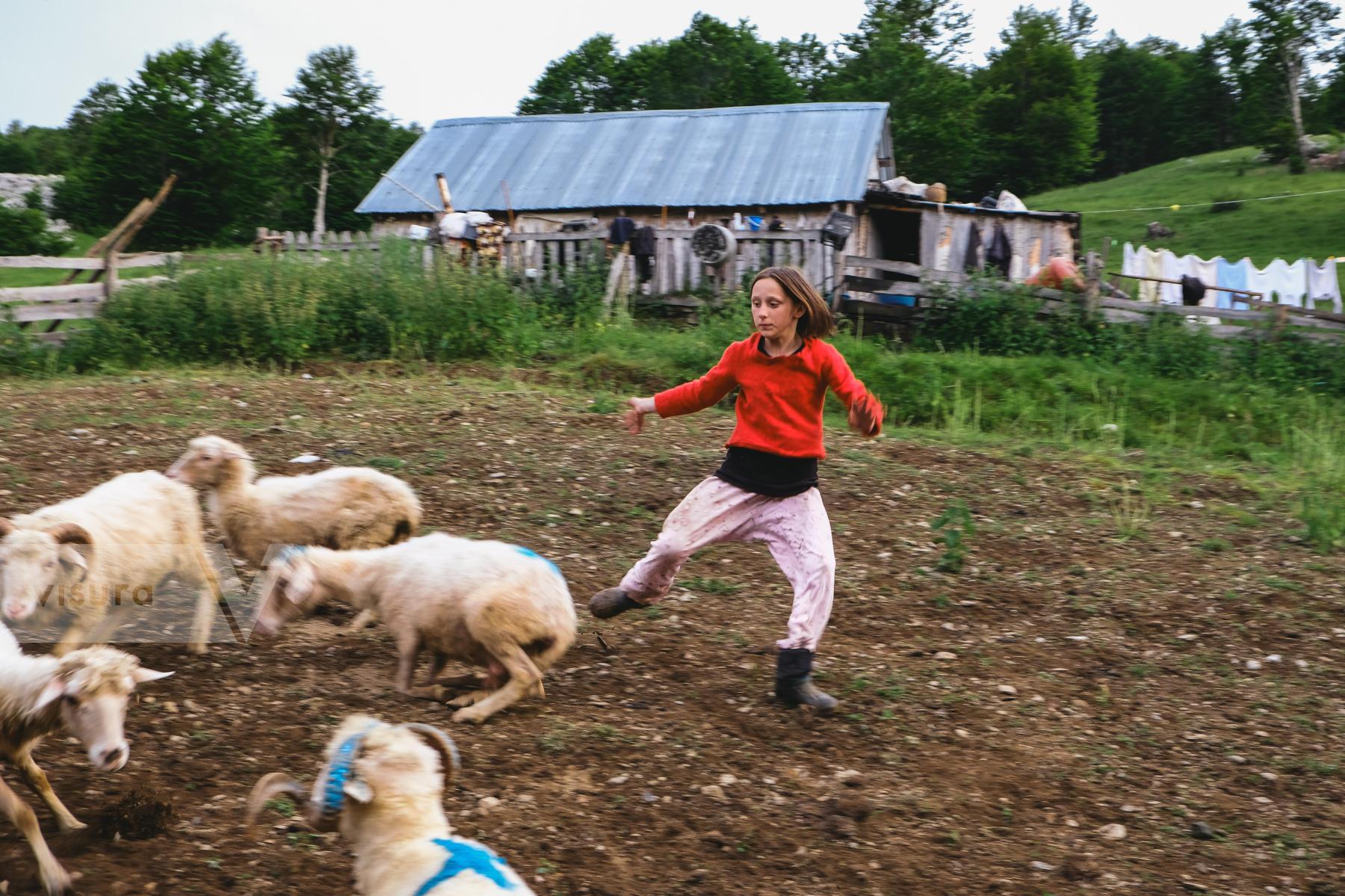
Anjeza Bikaj tries to corner a sheep that escaped from being milked, Koprisht, Kelmend region, Albania. Every morning the sheep are lead into a small pen, and are then milked one at a time before being let into a larger enclosure.
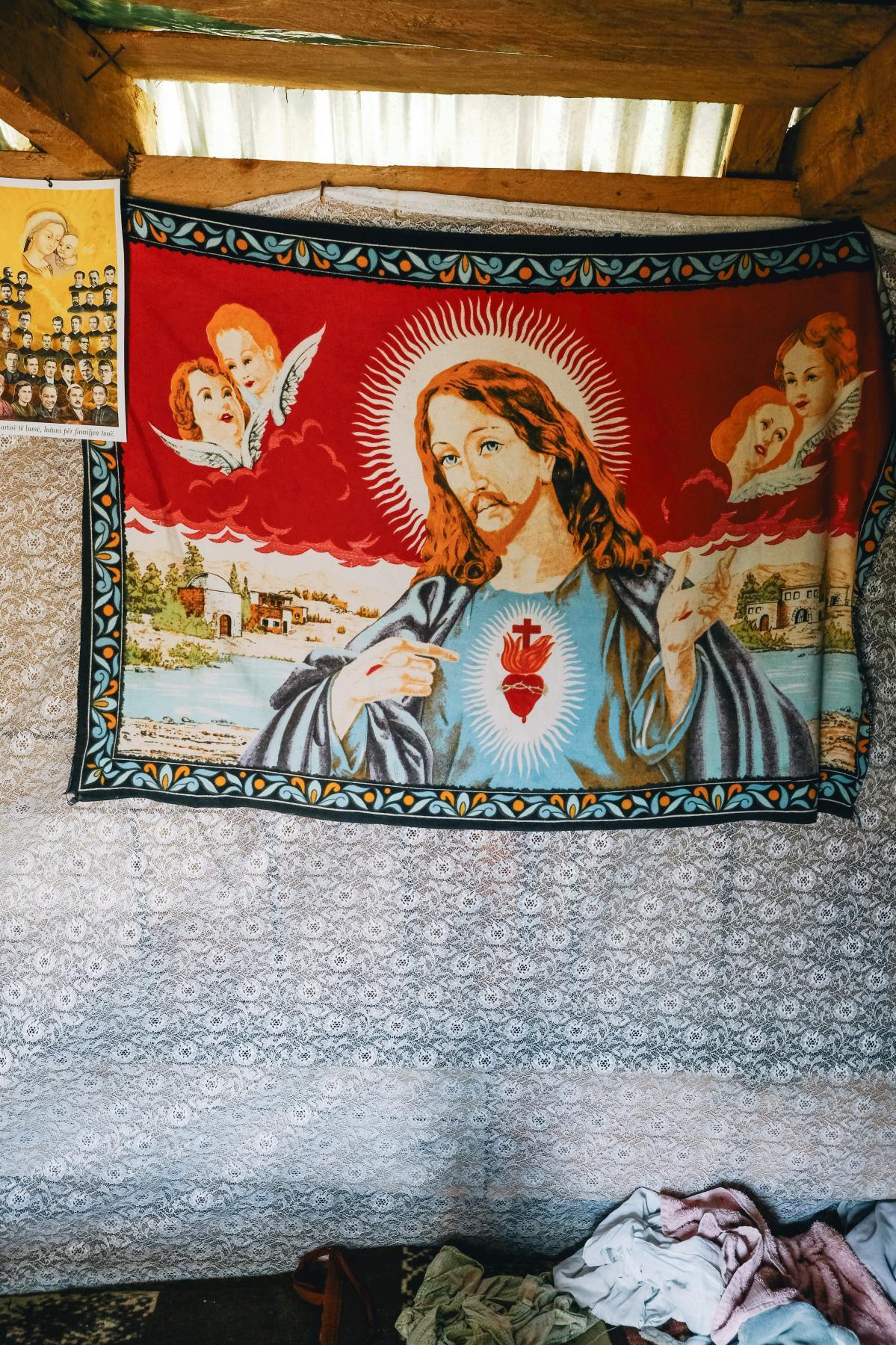
A tapestry and poster depicting martyred Albanian Catholic priests hangs on a wall in Koprisht, Kelmend region, Albania. The area saw heavy resistance by the Catholic population against communism in the early days of the regime, and subsequently was one of the most repressed and undeveloped parts of the country.
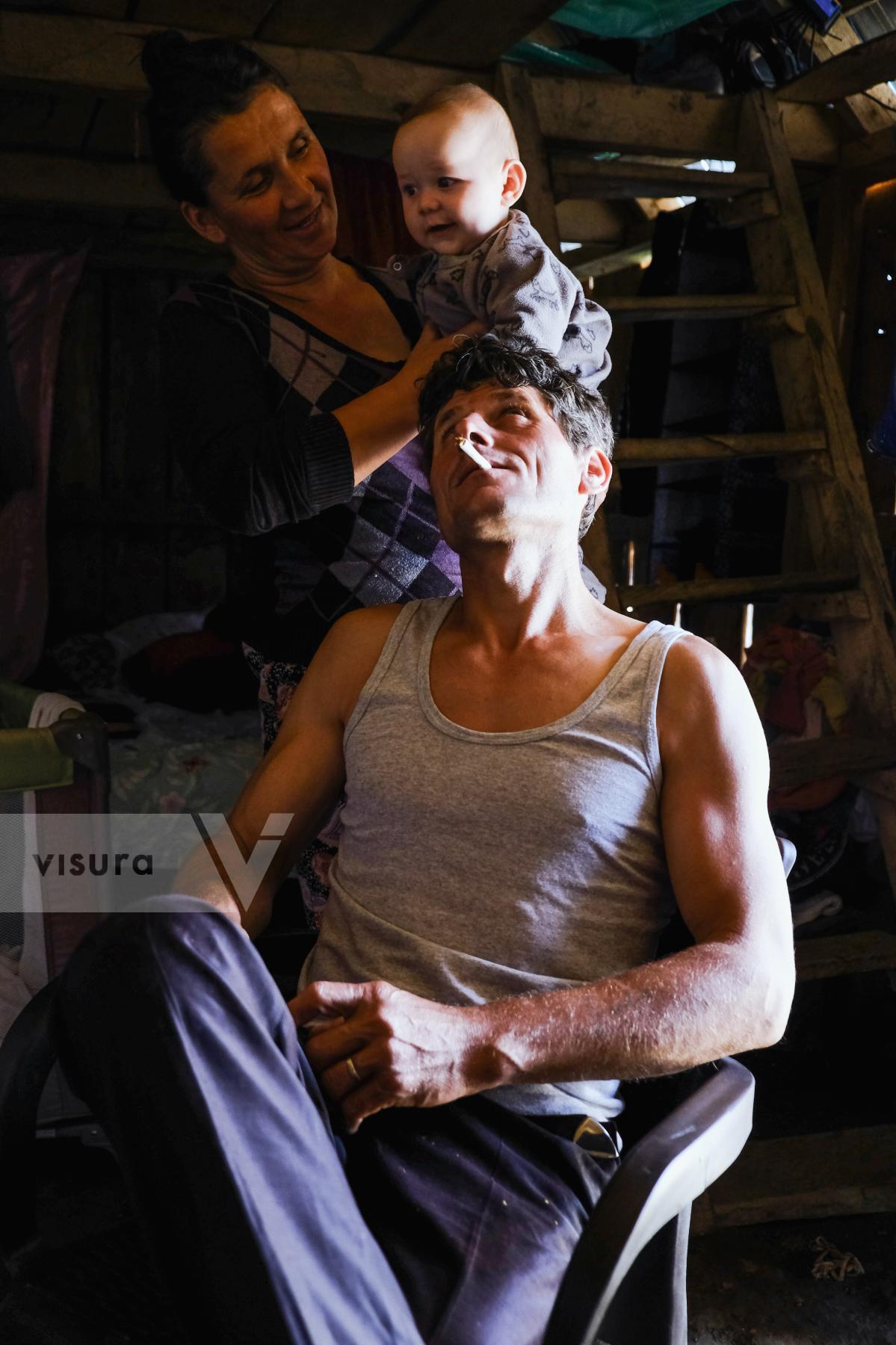
Lula and Gazmend Bikaj with their son Valdijan at their temporary summer shelter in Koprisht, Kelmend region, Albania. Their entire family intermittently stays to help out with the sheep in the summer, while making periodic trips to collect supplies from their house located some 40km away.
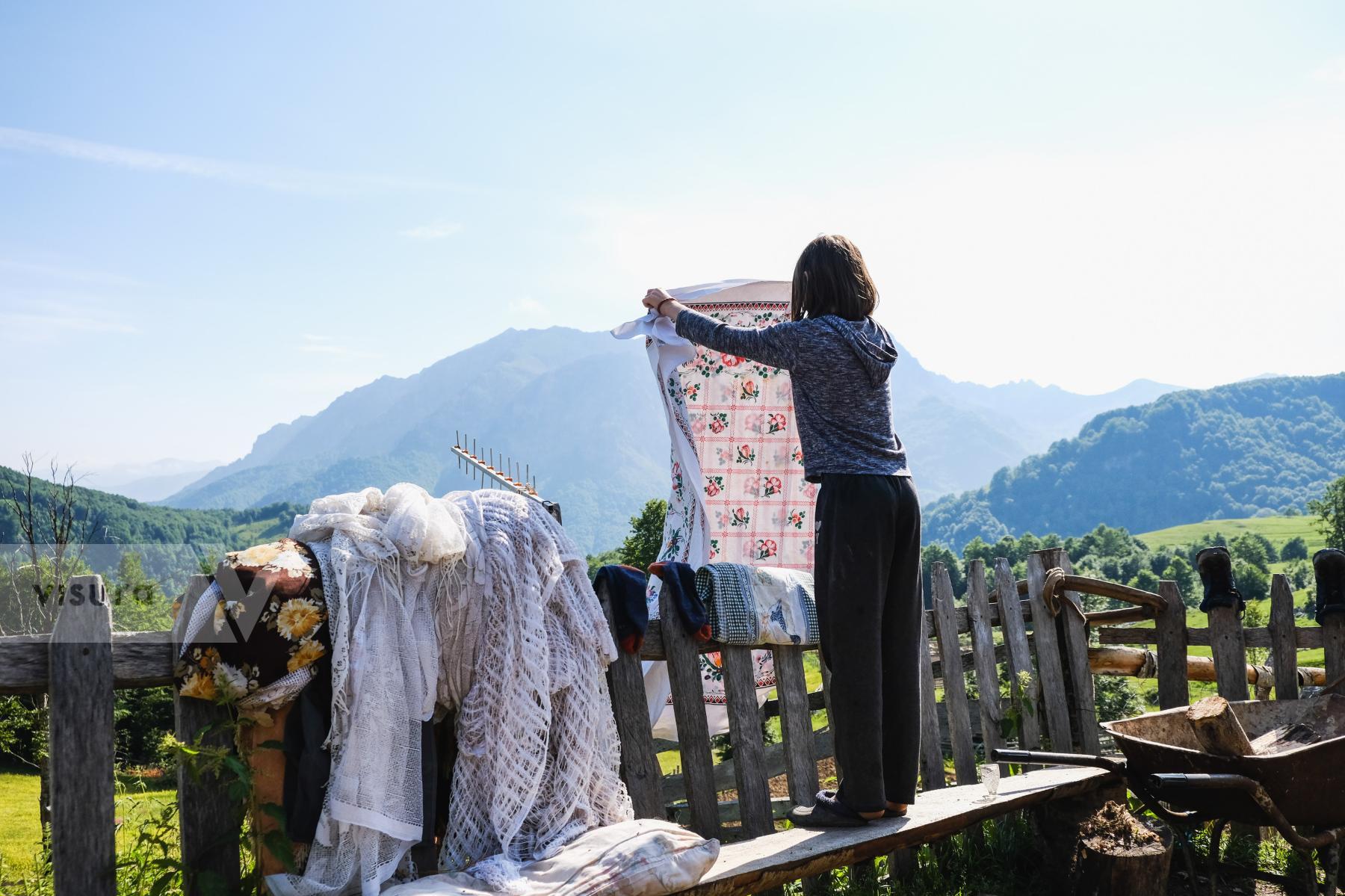
Anjeza Bikaj shakes out a tablecloth near the family's summer encampment, Kelmend region, Albania. Anjeza and her siblings take turns helping with household chores, milking the sheep and taking them into the surrounding mountains to graze.
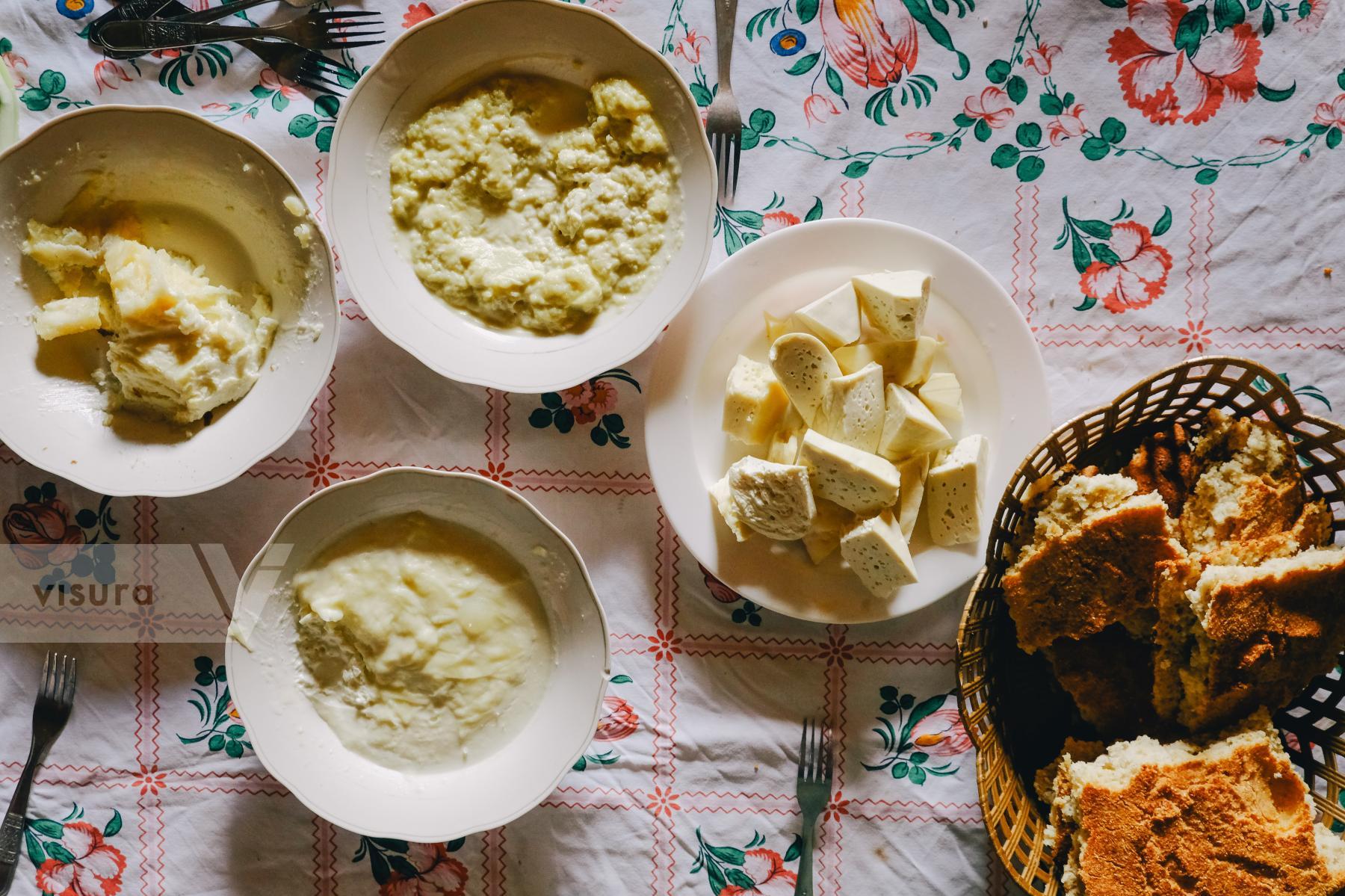
Homemade bread, cheese, butter and yogurt at the Bikaj family's Stan near Lepushë, Kelmend region, Albania.
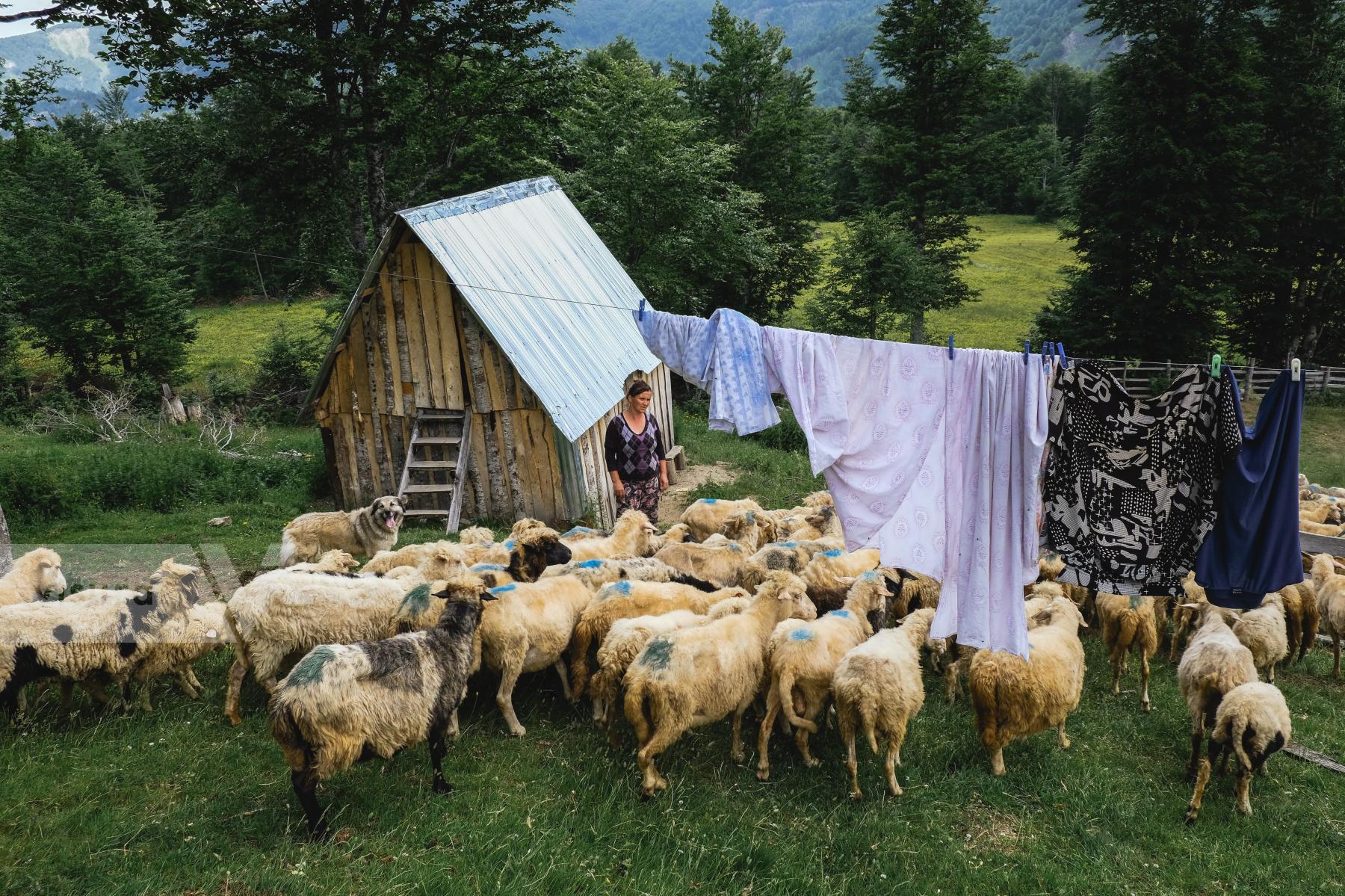
Lula Bikaj brings a flock of sheep home after an evening graze, Koprisht, Kelmend region, Albania.
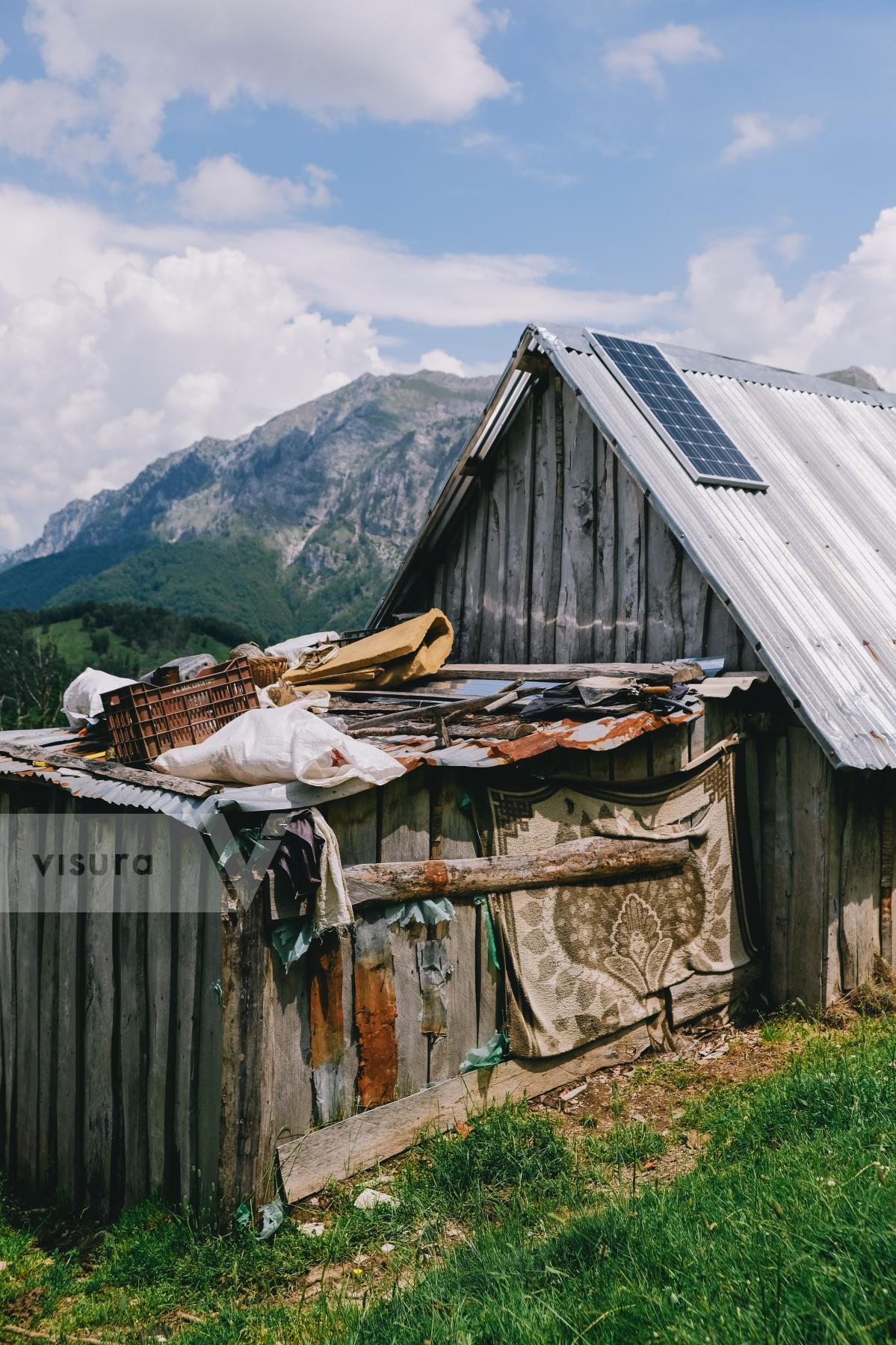
A stan, the mountain hut used by shepherds in the high alpine regions of northern Albania. The Bikaj family's stan includes a solar panel providing them with electricity, with water provided by a direct line to a spring in the ground.
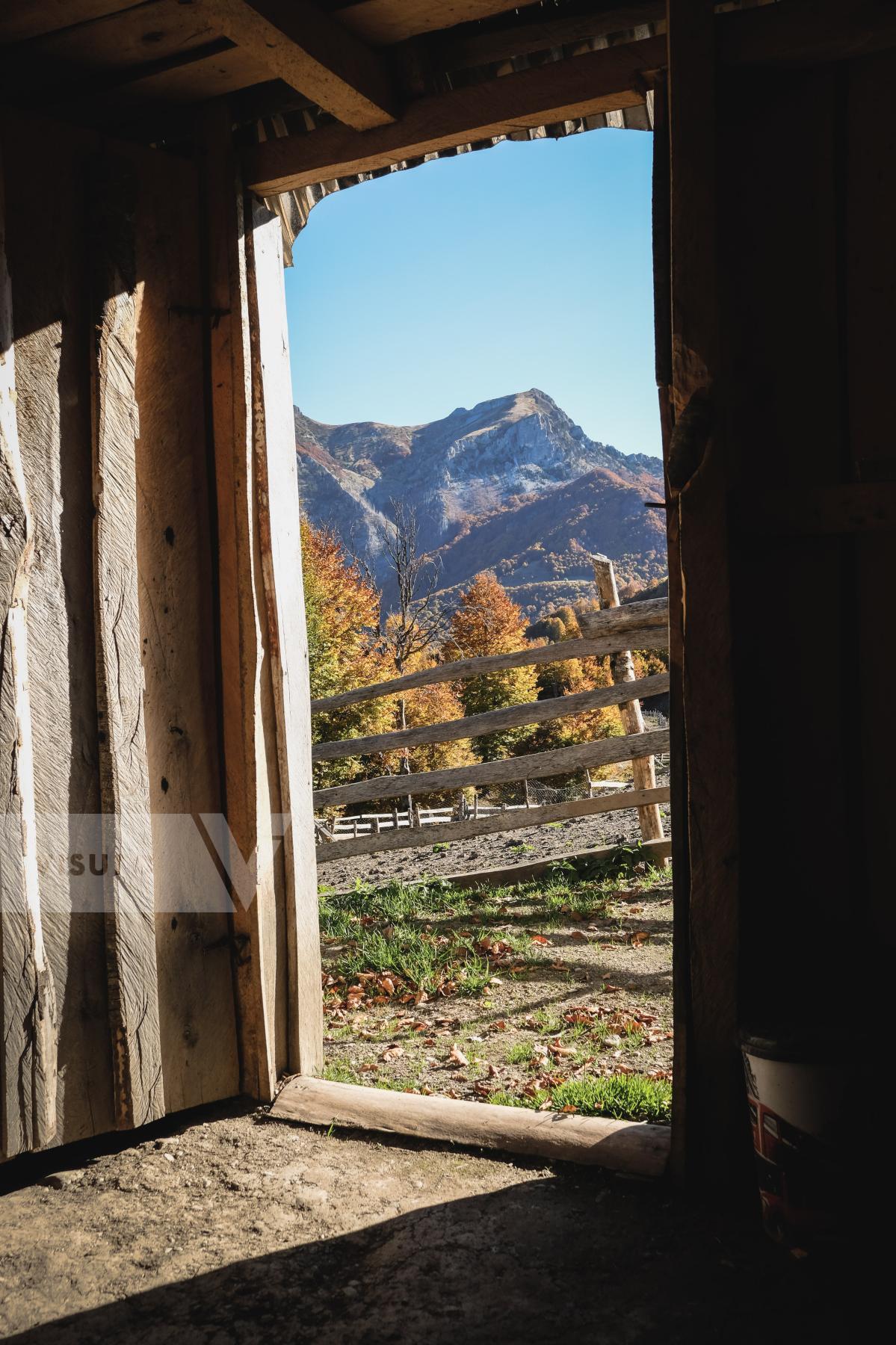
View from the Bikaj family's stan, the temporary shelter where shepherds live while grazing sheep in the high mountains of northern Albania.
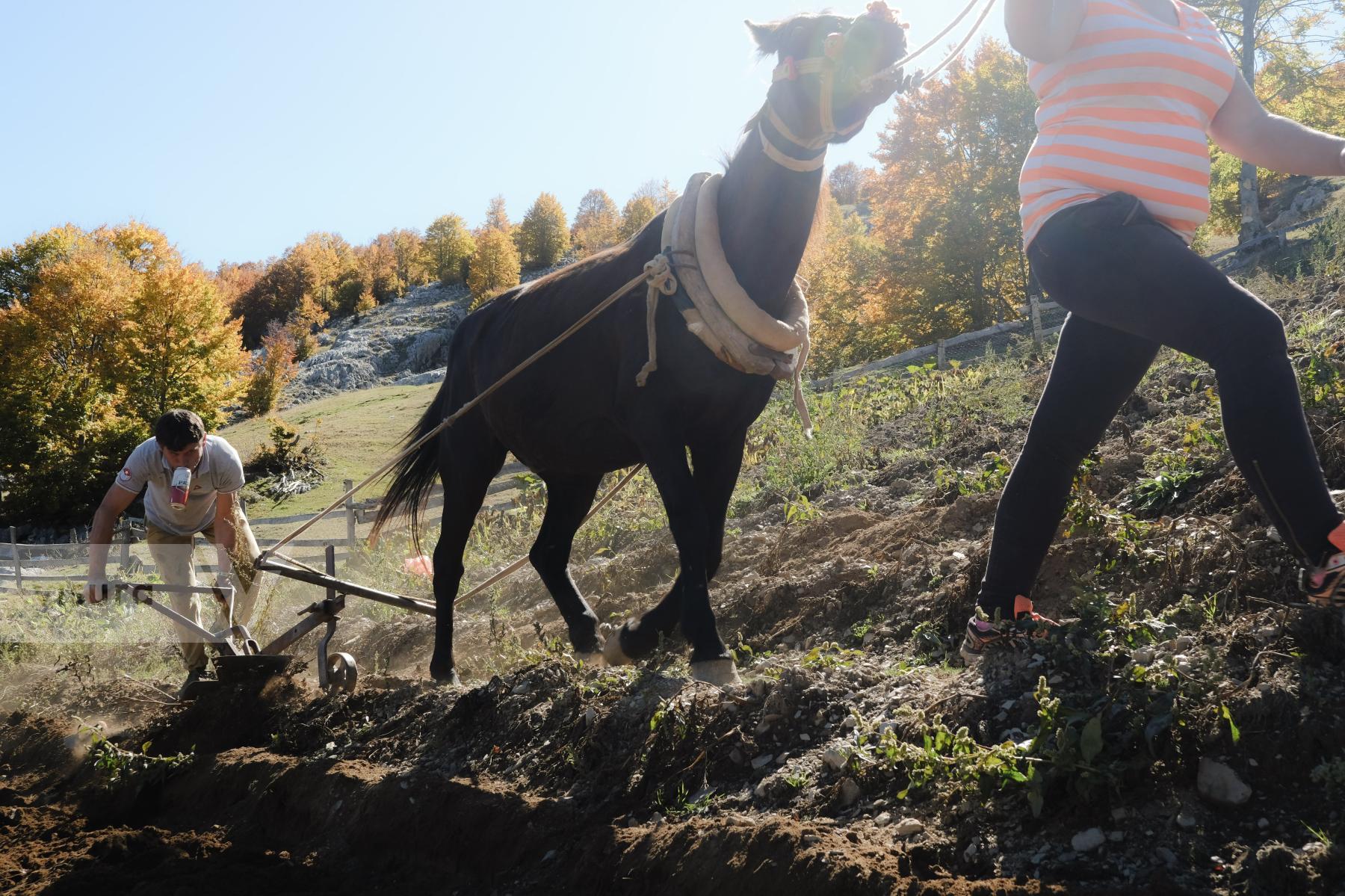
Gazmend Bikaj and a family member till a field of potatoes at their encampment near Lepushë, Kelmend region, Albania. Shepherds leave their camps in the high mountains at the start of Autumn, returning in spring when snow levels drop.
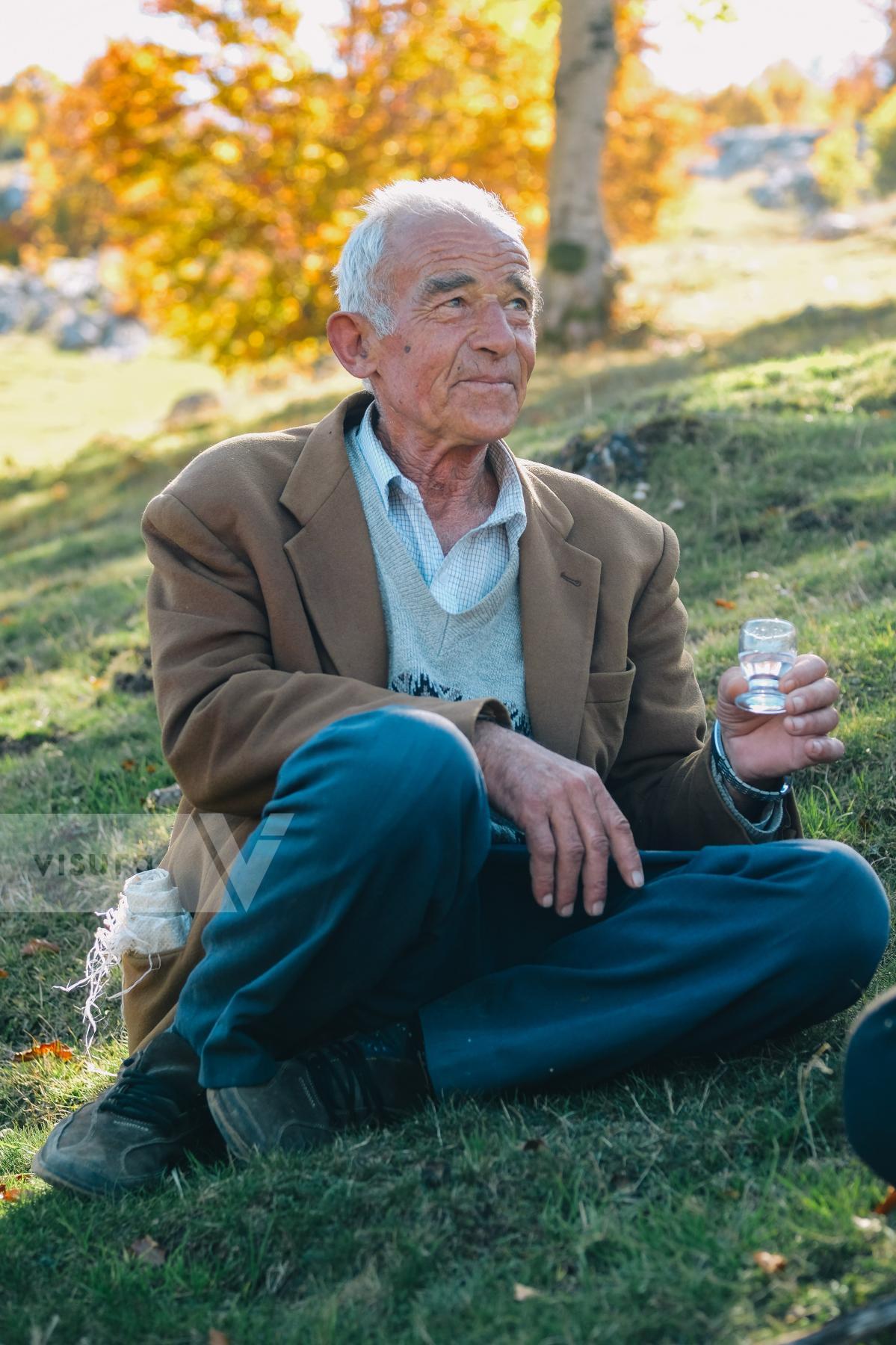
Rrok, a shepherd from the village of Nikç who travels to the high pastures in Koprisht to keep his flock of sheep in the summer months, Kelmend region, Albania.
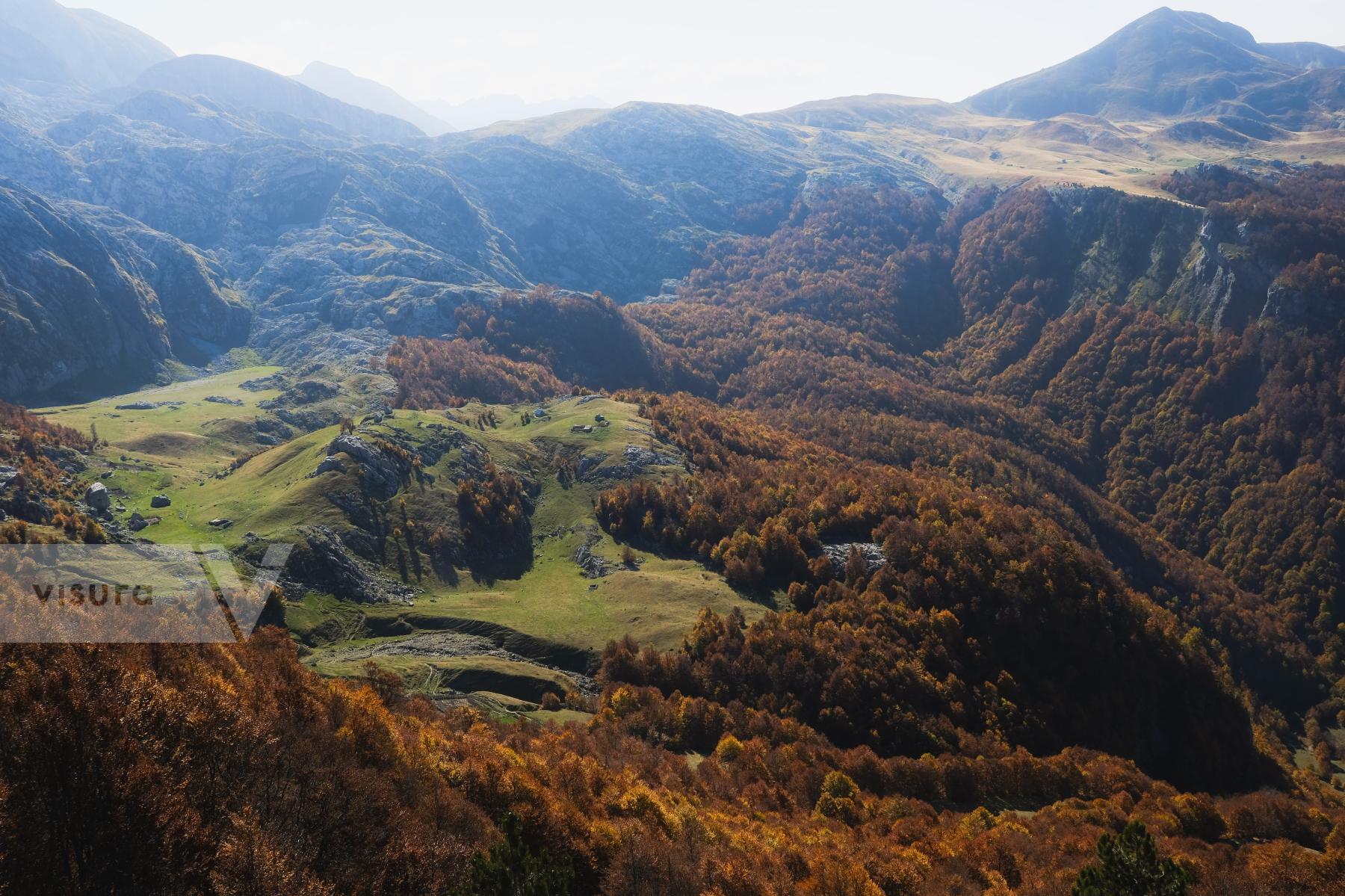
High pastures above the treeline near Lepushë, where several shepherds have their summer encampments. Historically the Albanian Alps have also been known as Bjeshkët e Nemuna (the Accursed Mountains), owing to their isolation and difficult terrain. This has left the area largely untouched until recent plans to construct hydropower dams on several of the region's rivers.
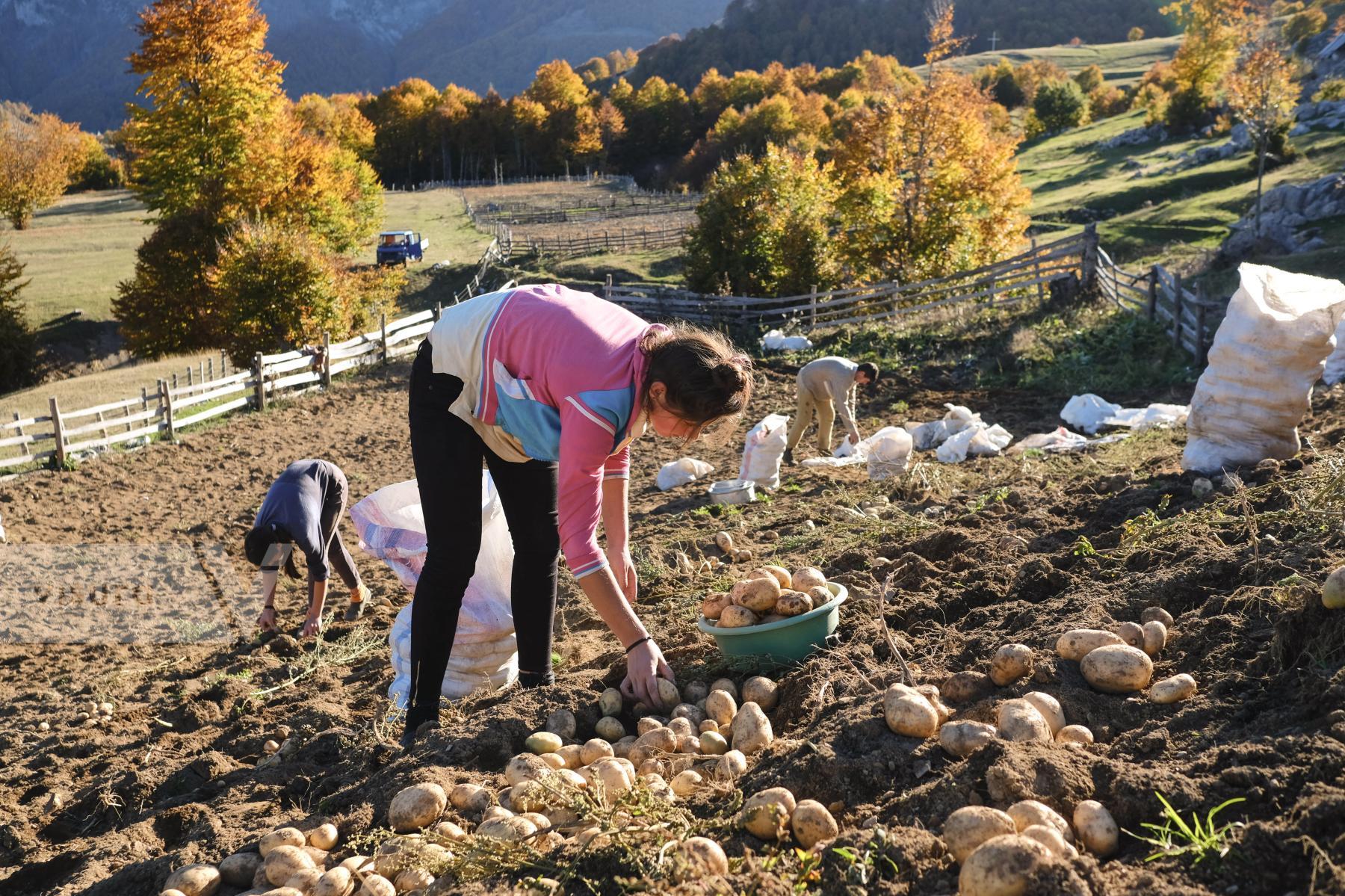
The Bikaj family harvests a field of potatoes in the mountain pastures above the village of Lepushë, Kelmend region, Albania. The family will return to their more permanent winter home after spending most of the summer in the high mountains farming and caring for a herd of sheep.
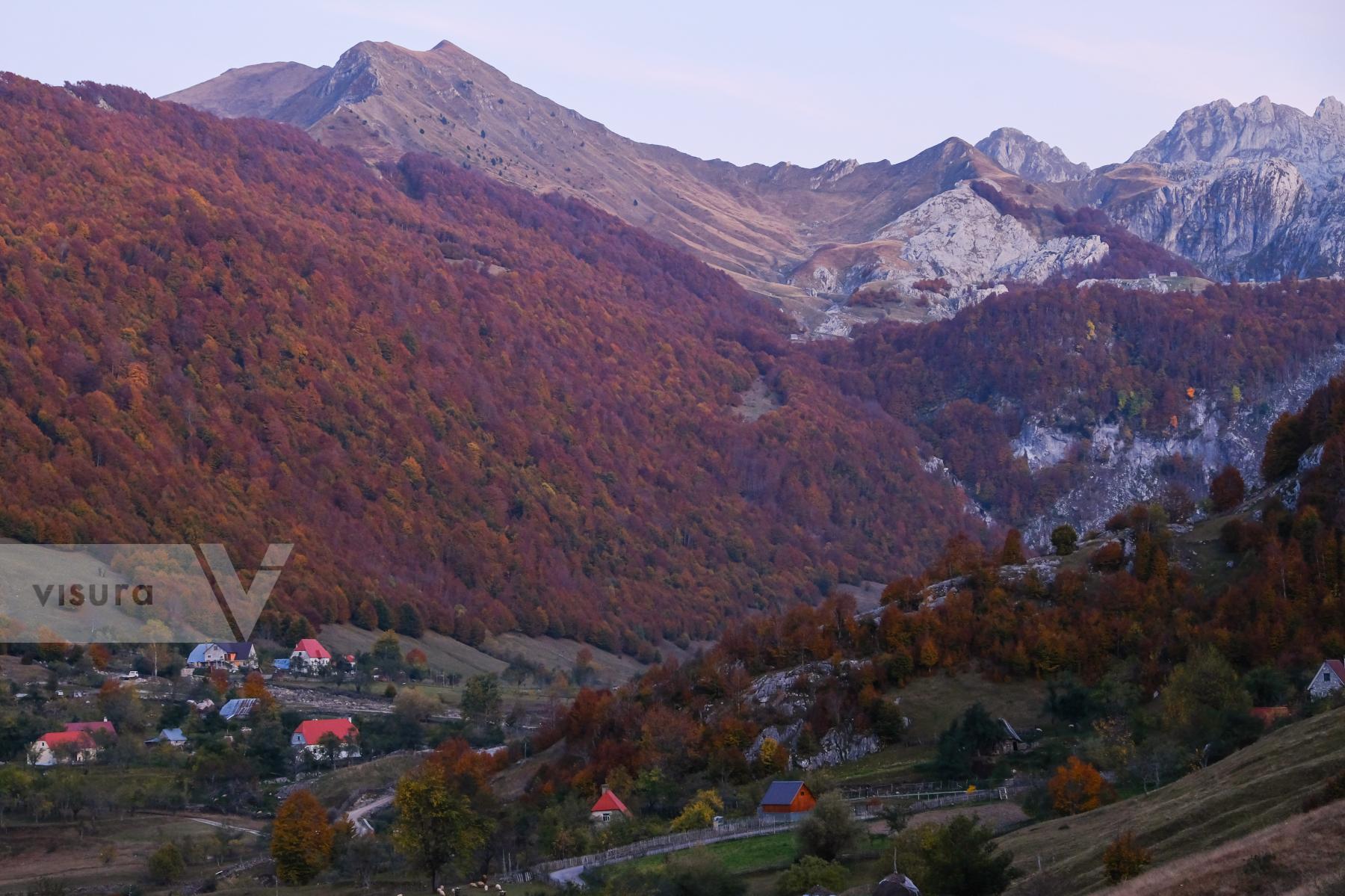
The village of Lepushë, close to the border with Montenegro. This was a heavily militarised area during Albania's communist regime, where arrests or killings of those trying to flee to Yugoslavia were common. Today many residents have converted their houses to bed and breakfasts, offering accommodation to hikers during the summer.
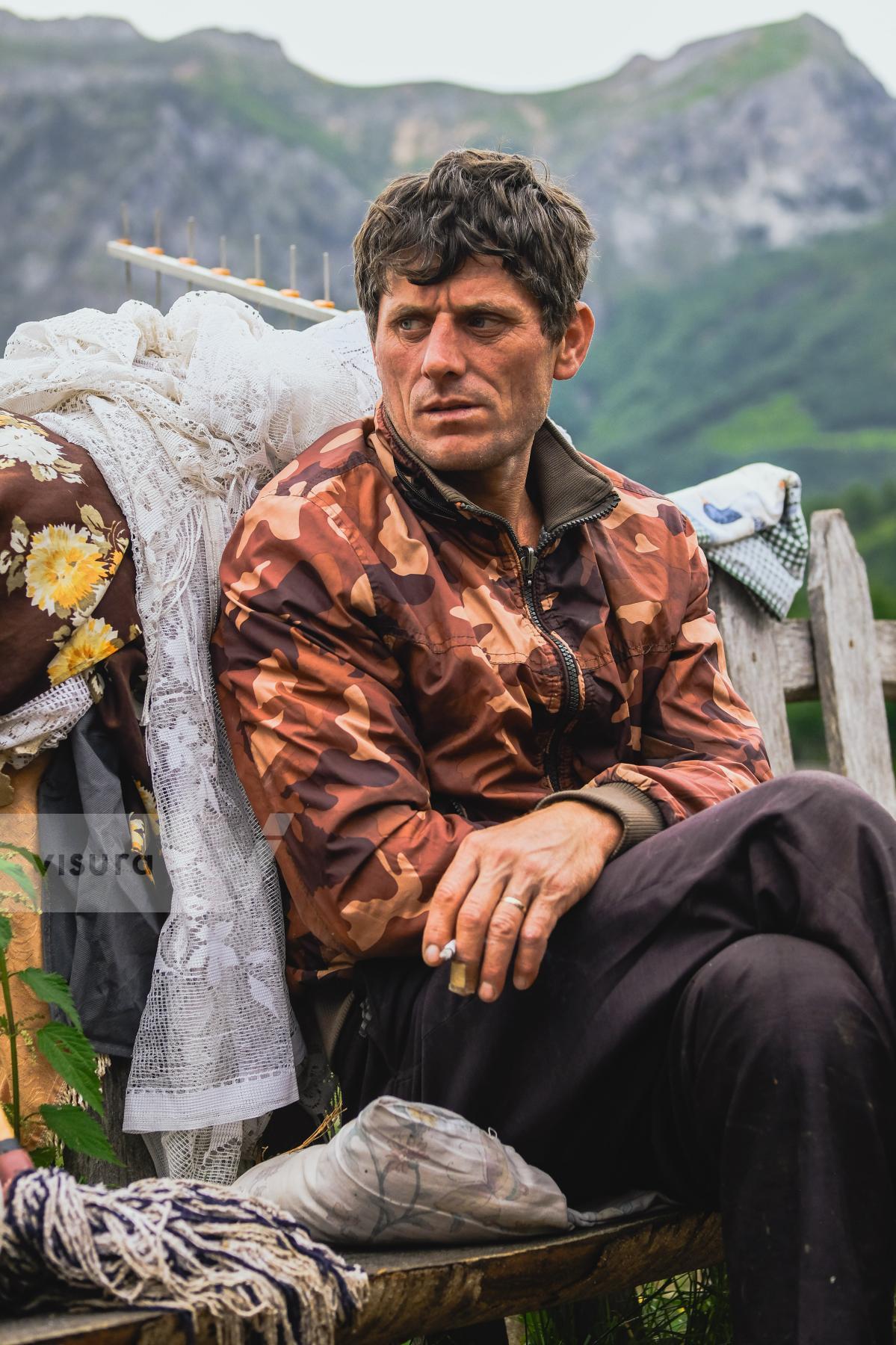
Gazmend Bikaj rests at his family's encampment in Koprisht, Kelmend region, Albania. During the summer he cares for a flock of sheep belonging to a farmer near the city of Shkoder, taking them to graze around pastures in the high alpine areas in Kelmend.








































